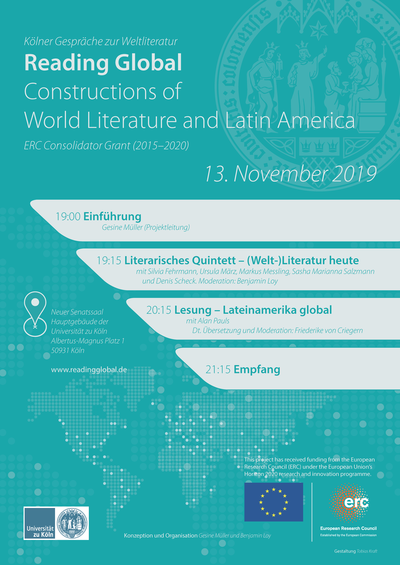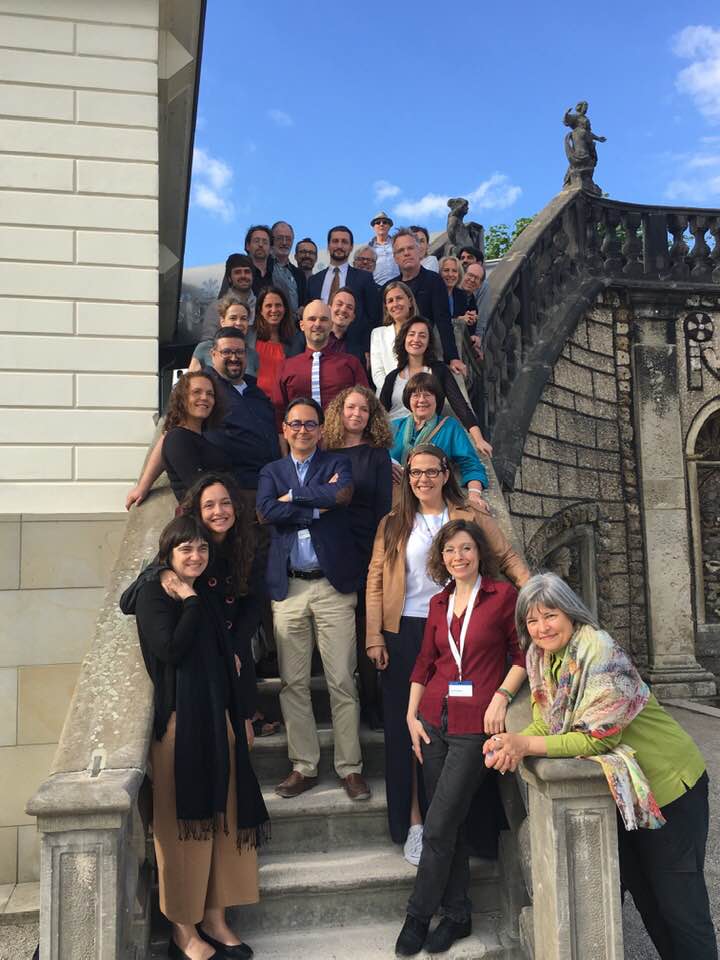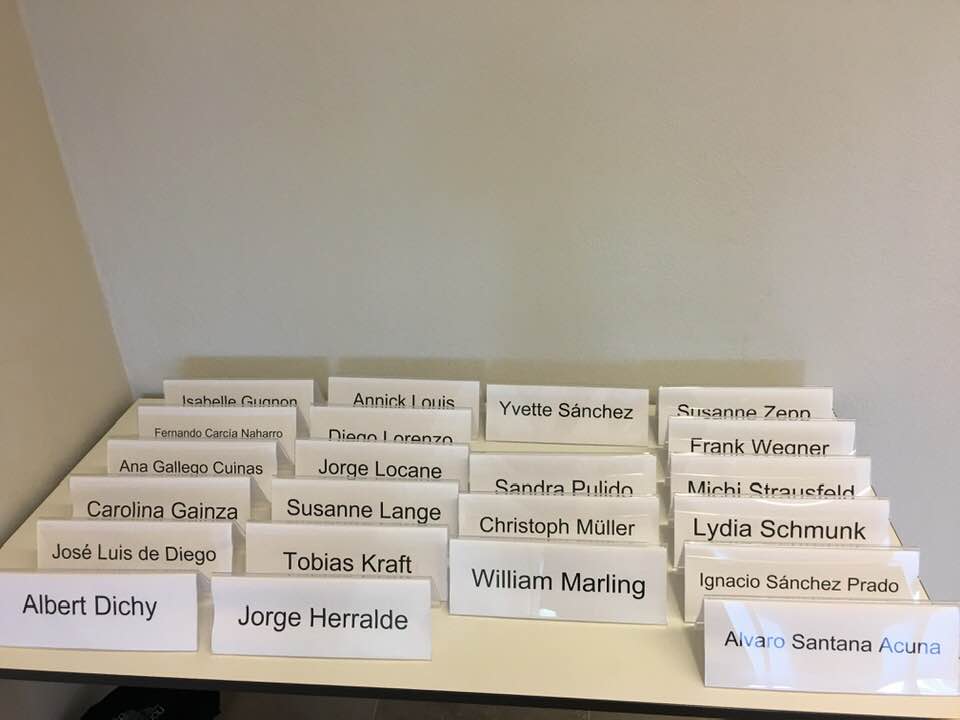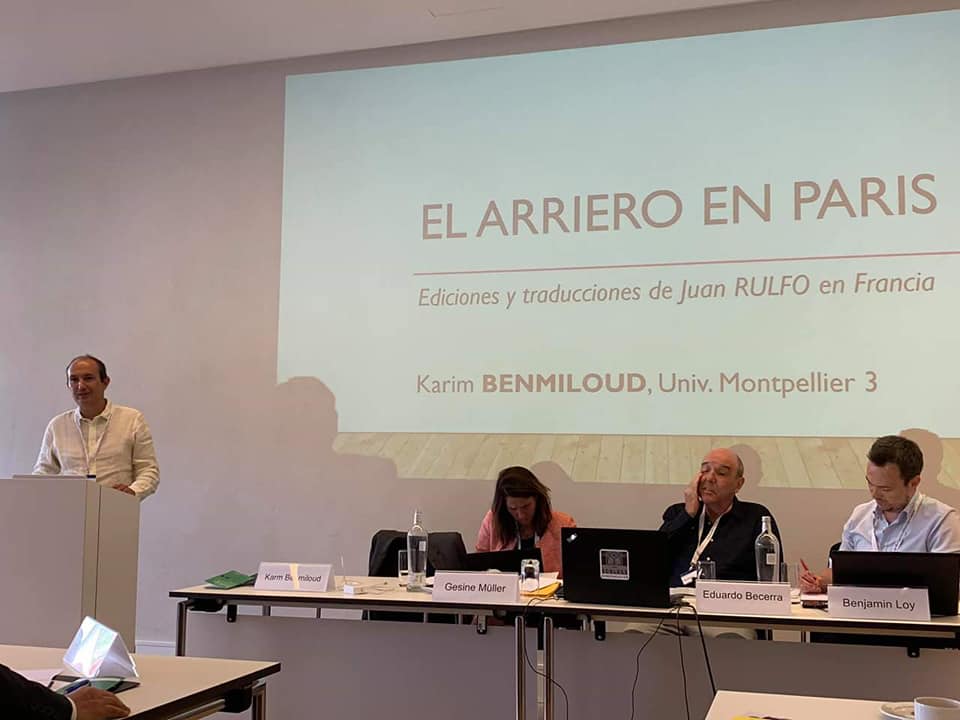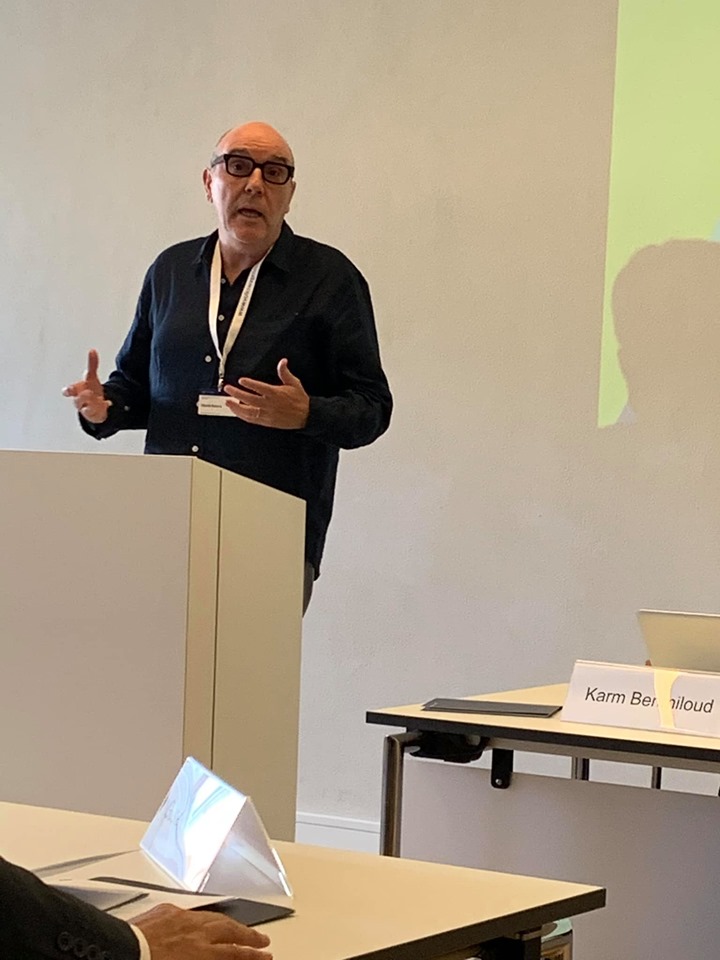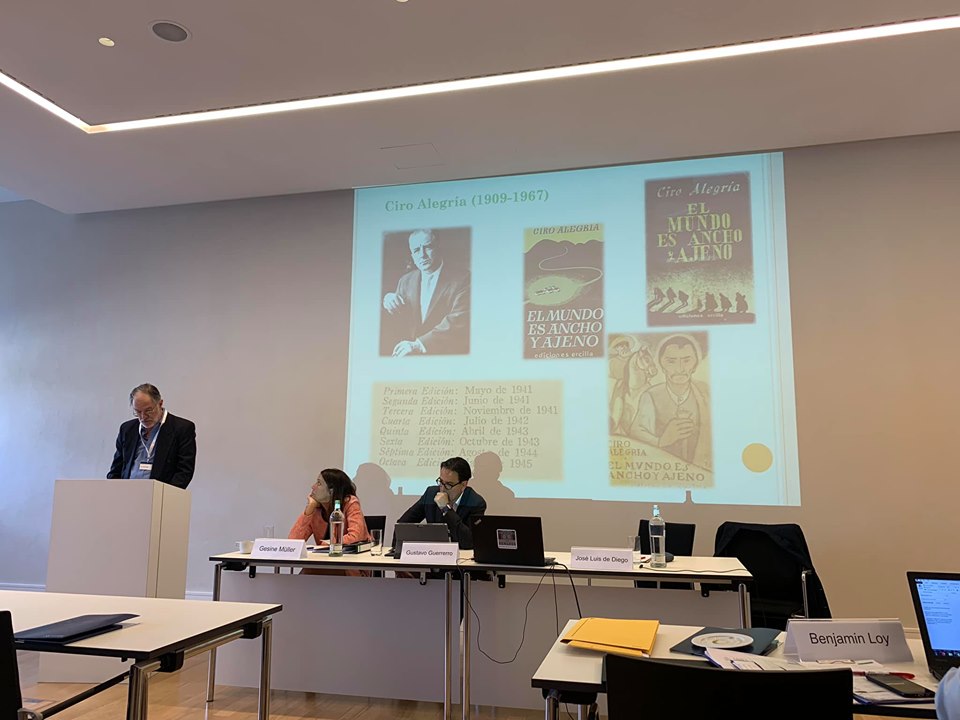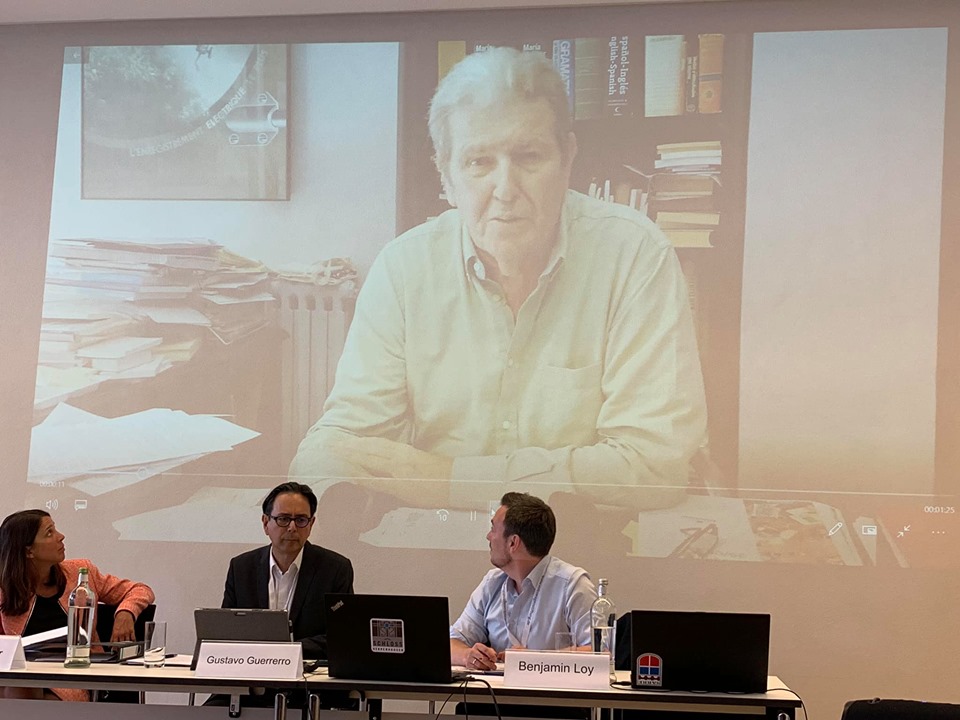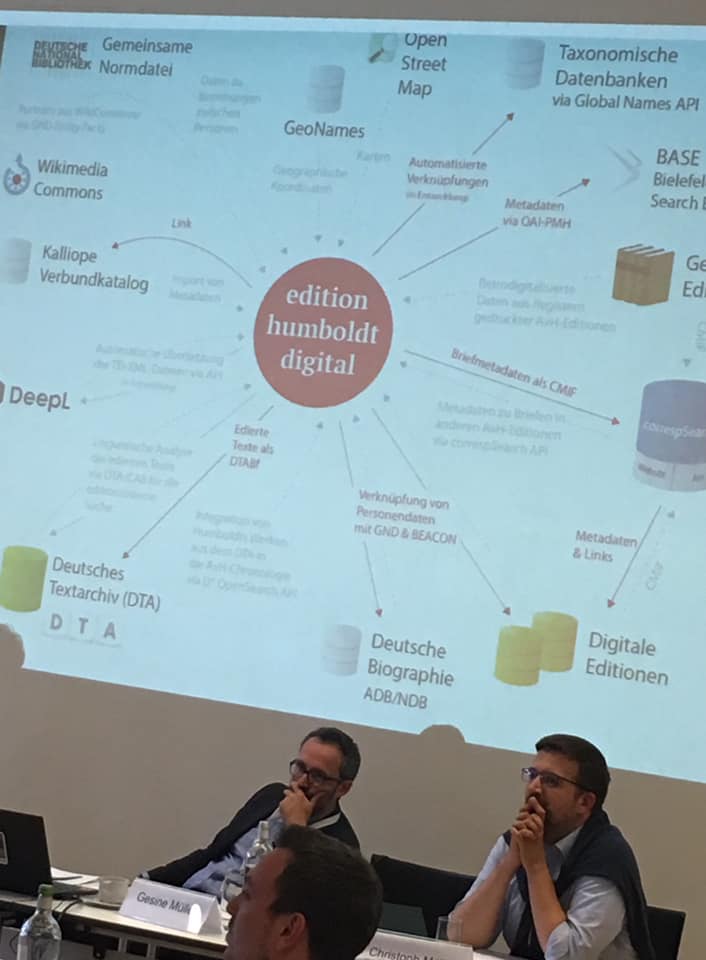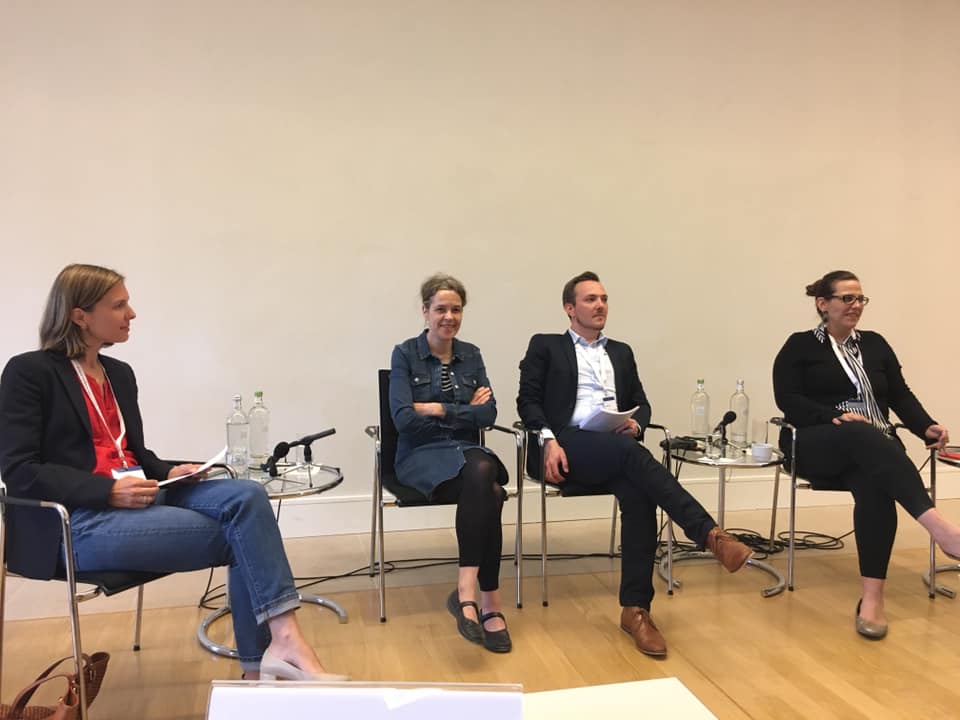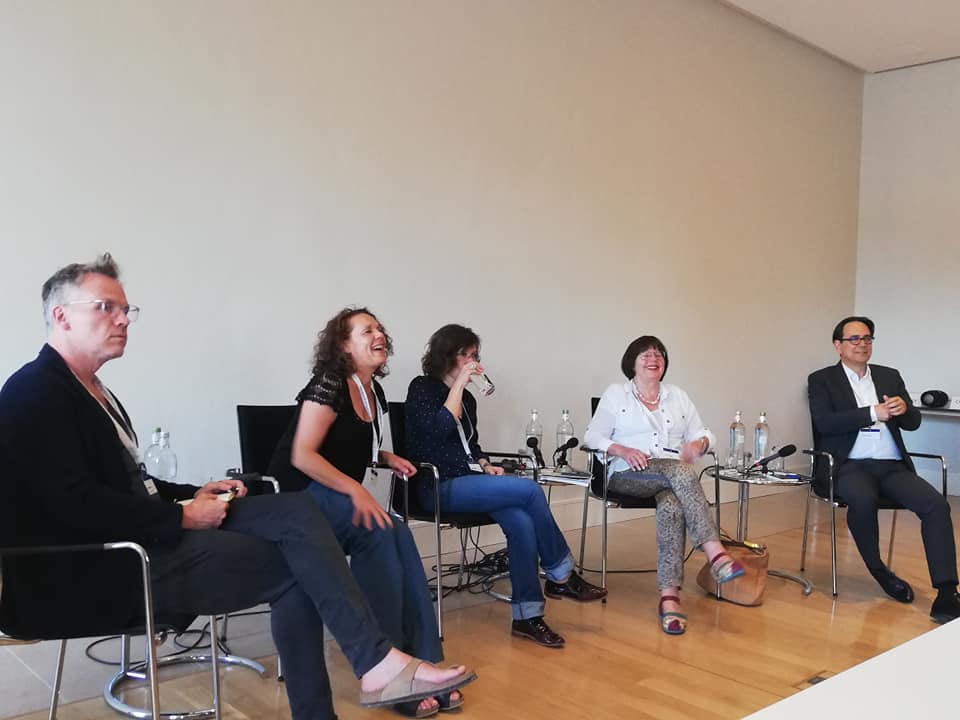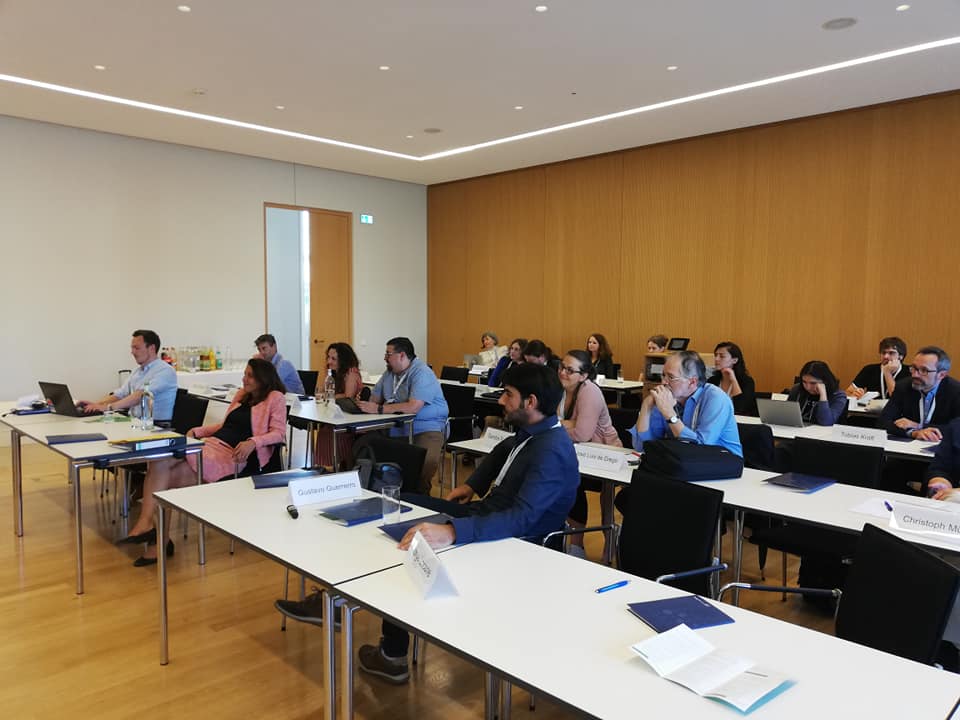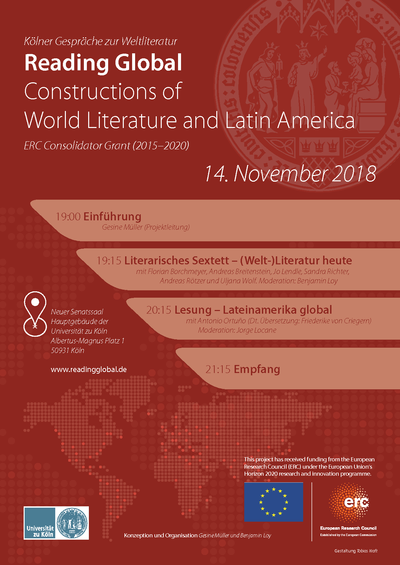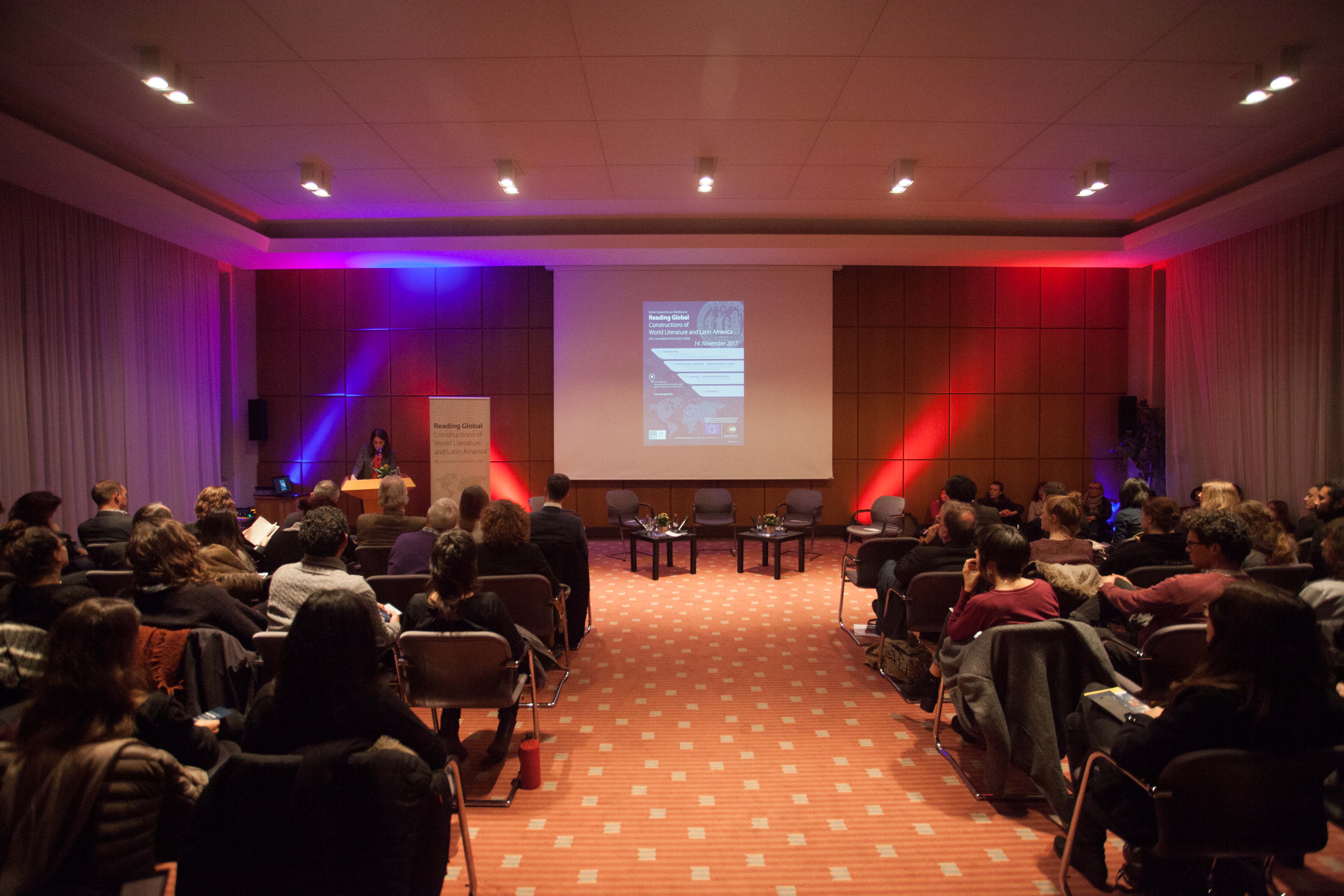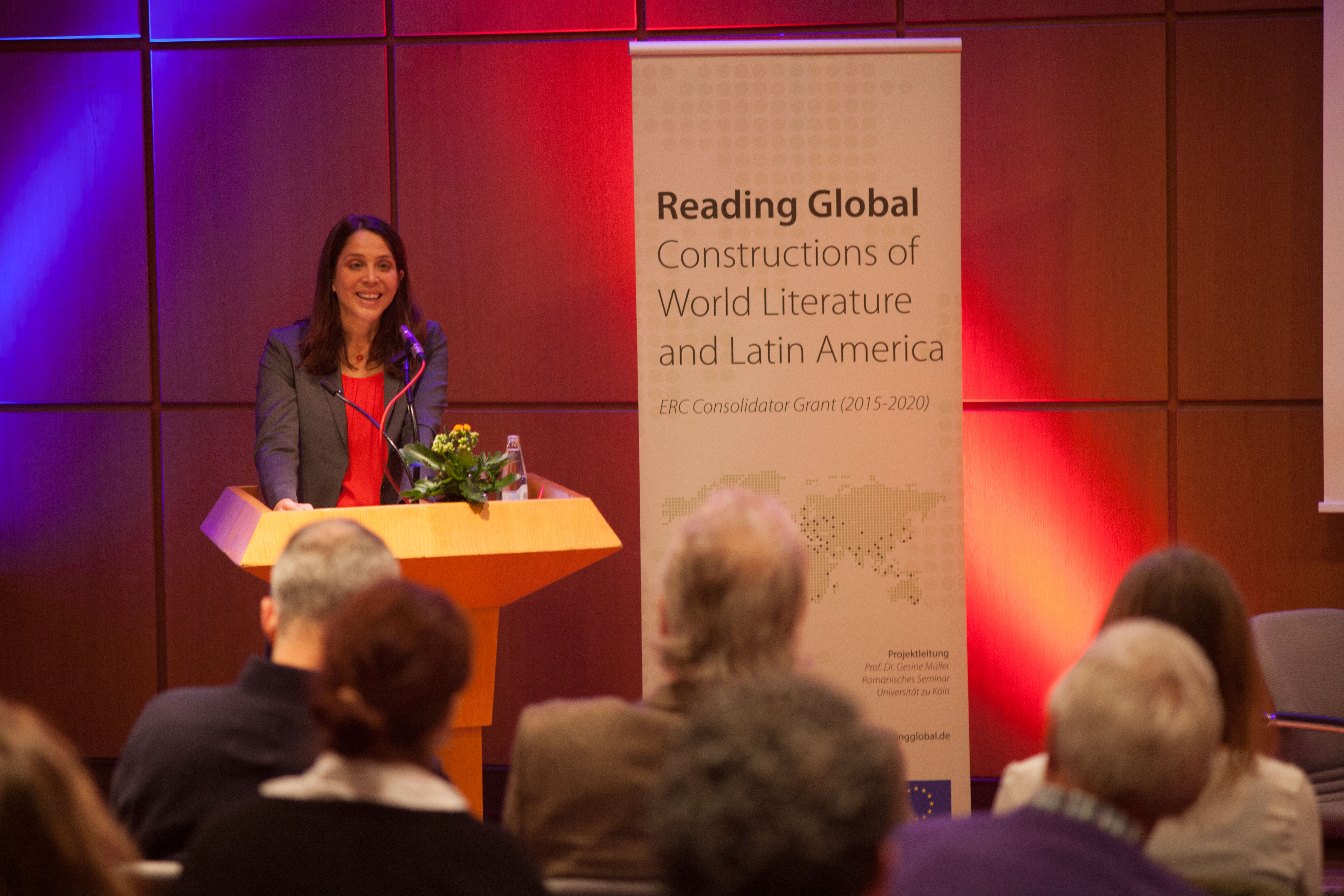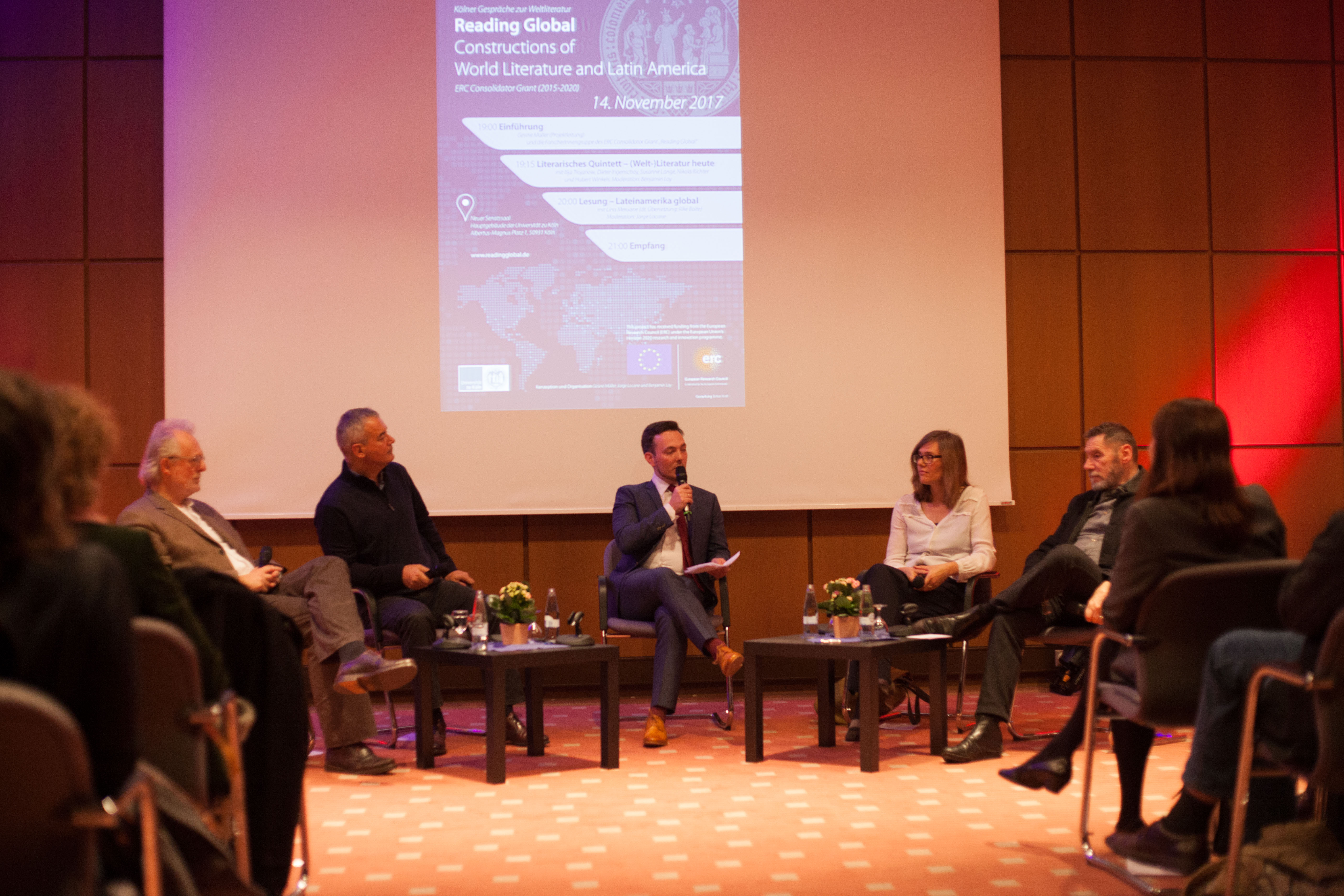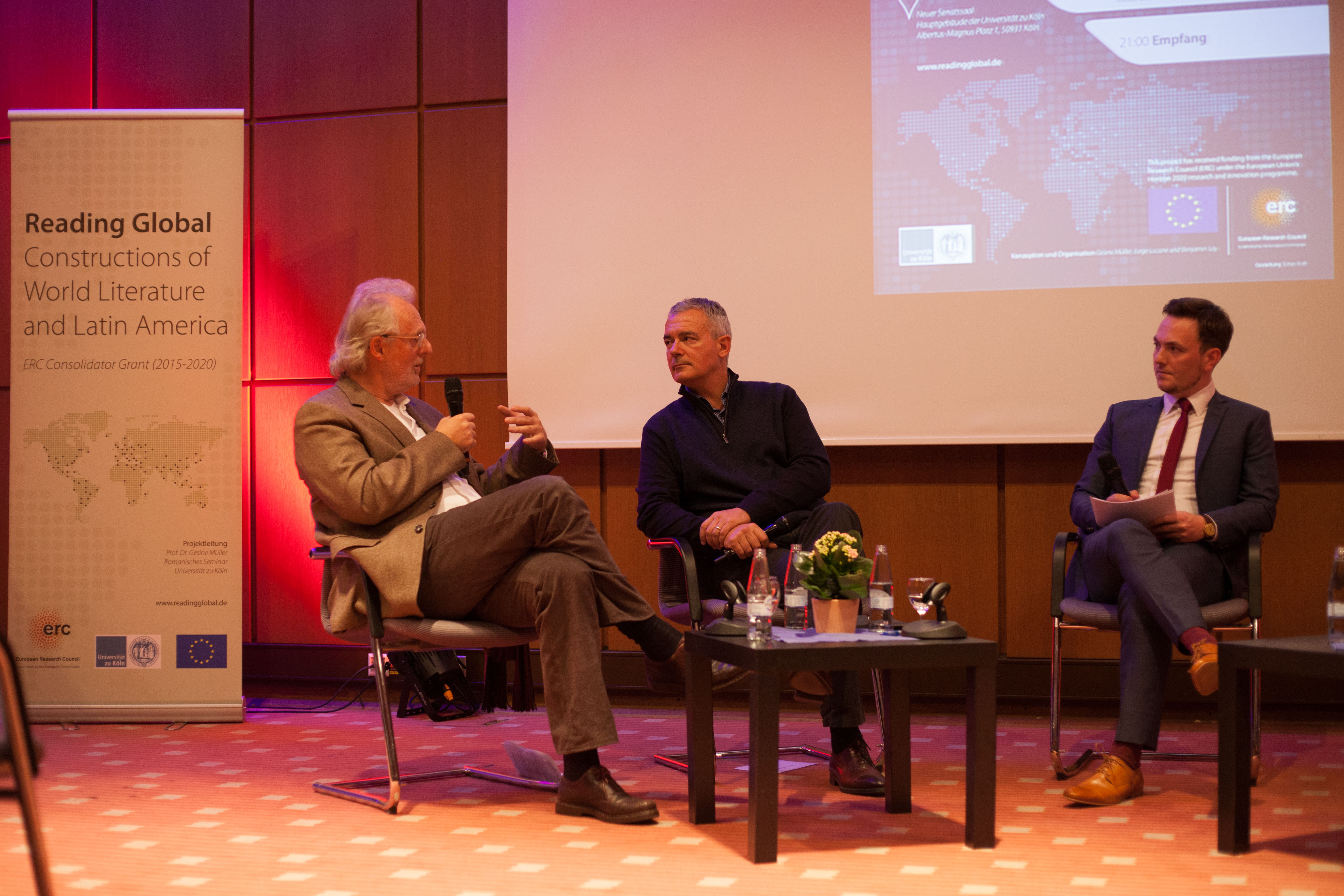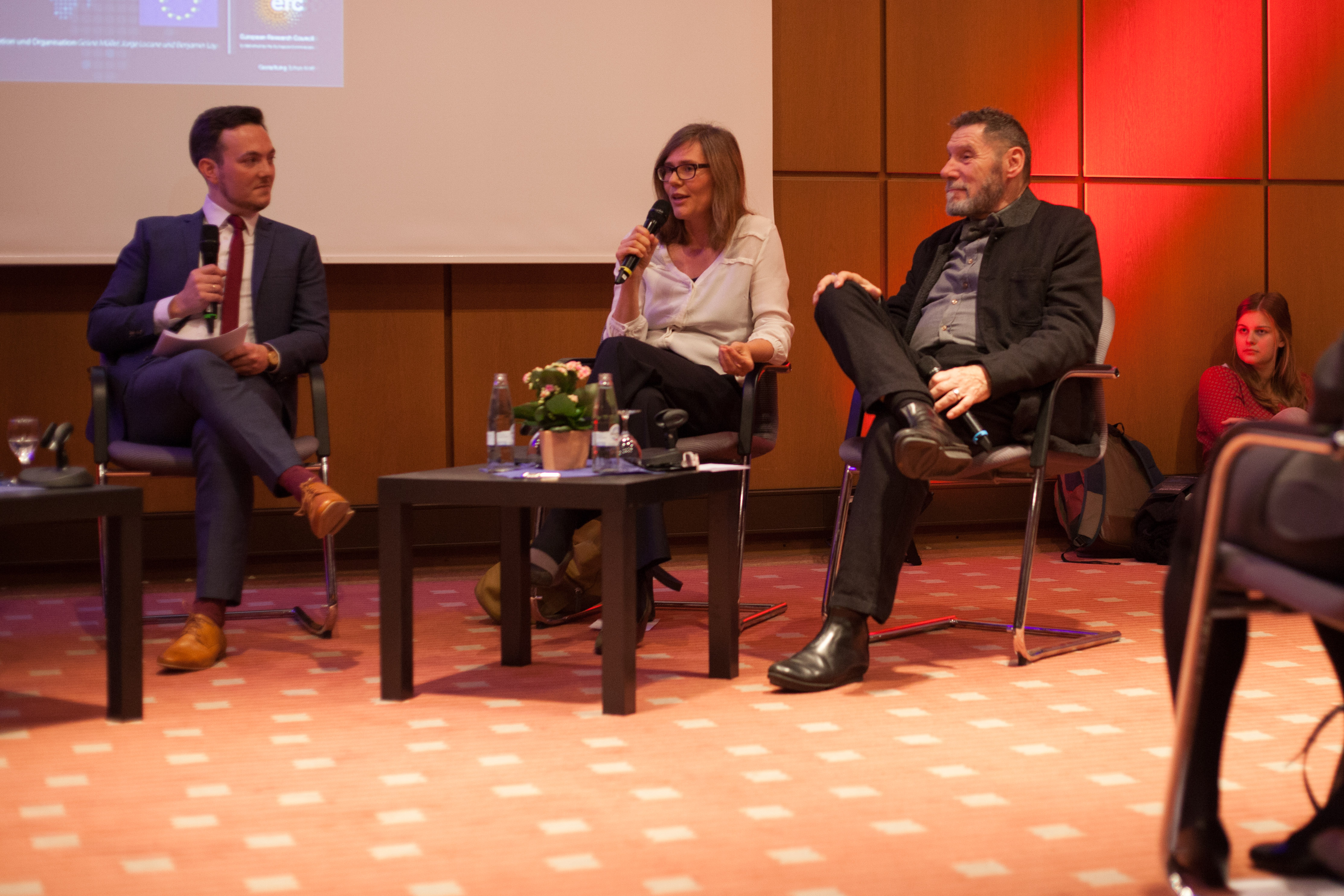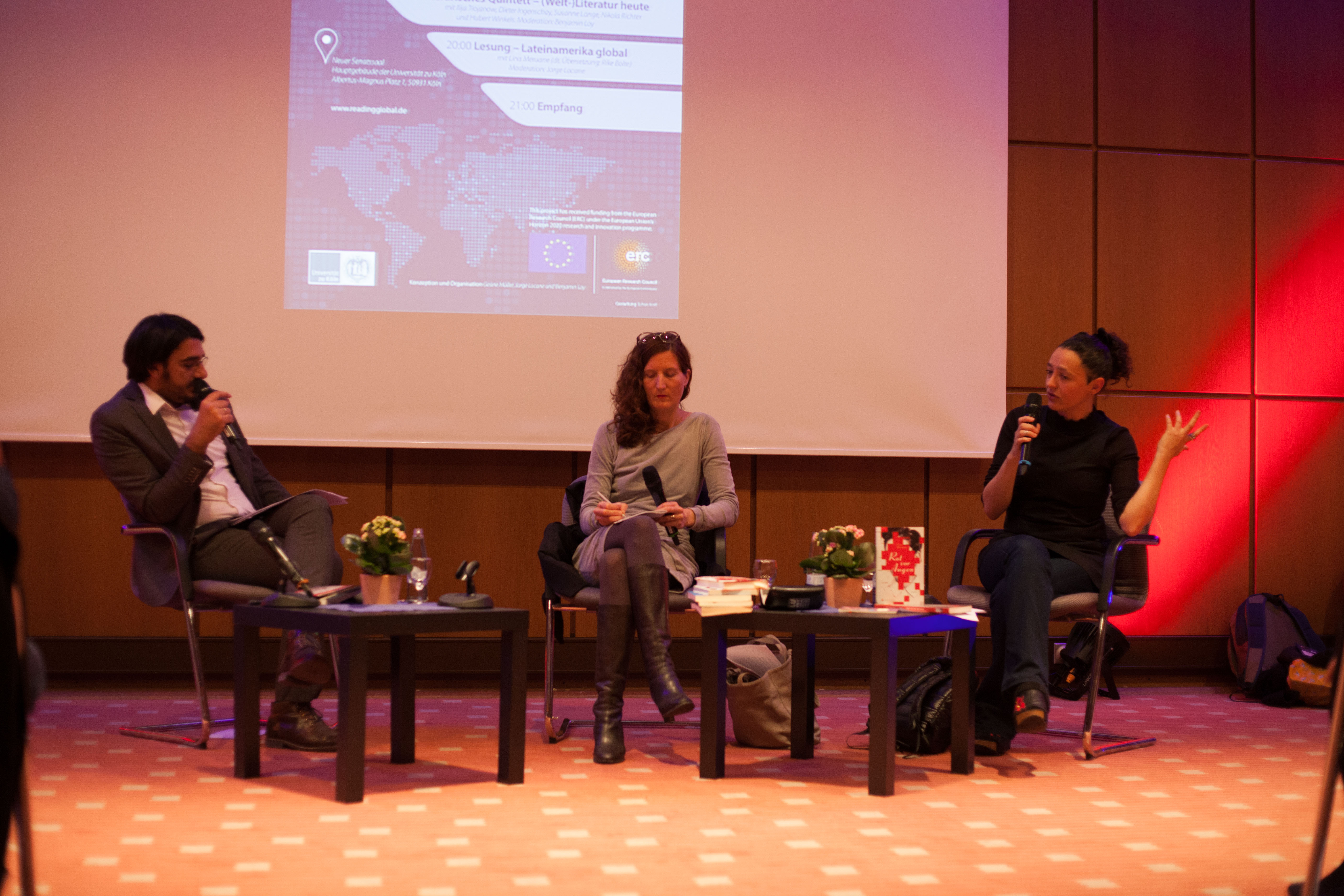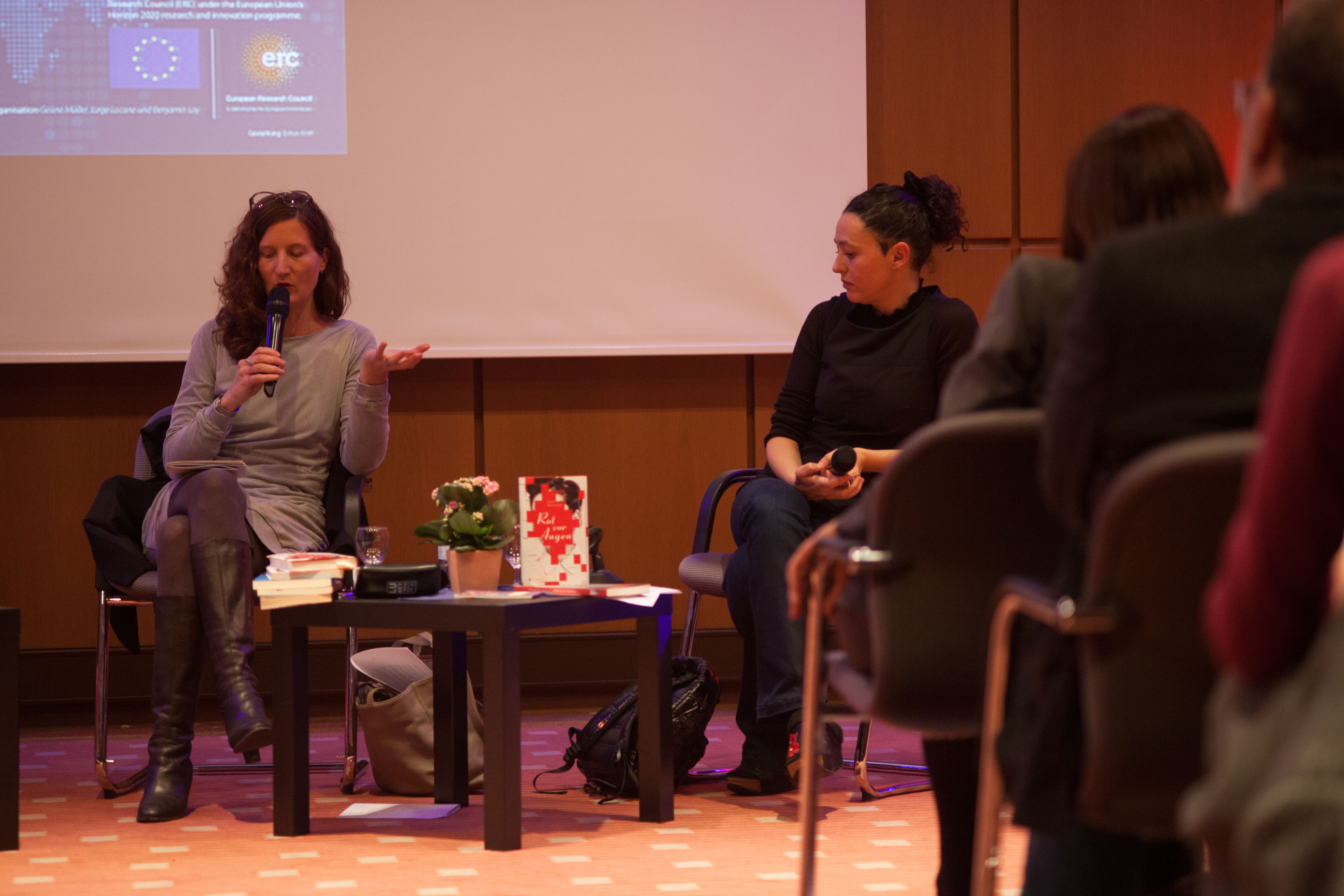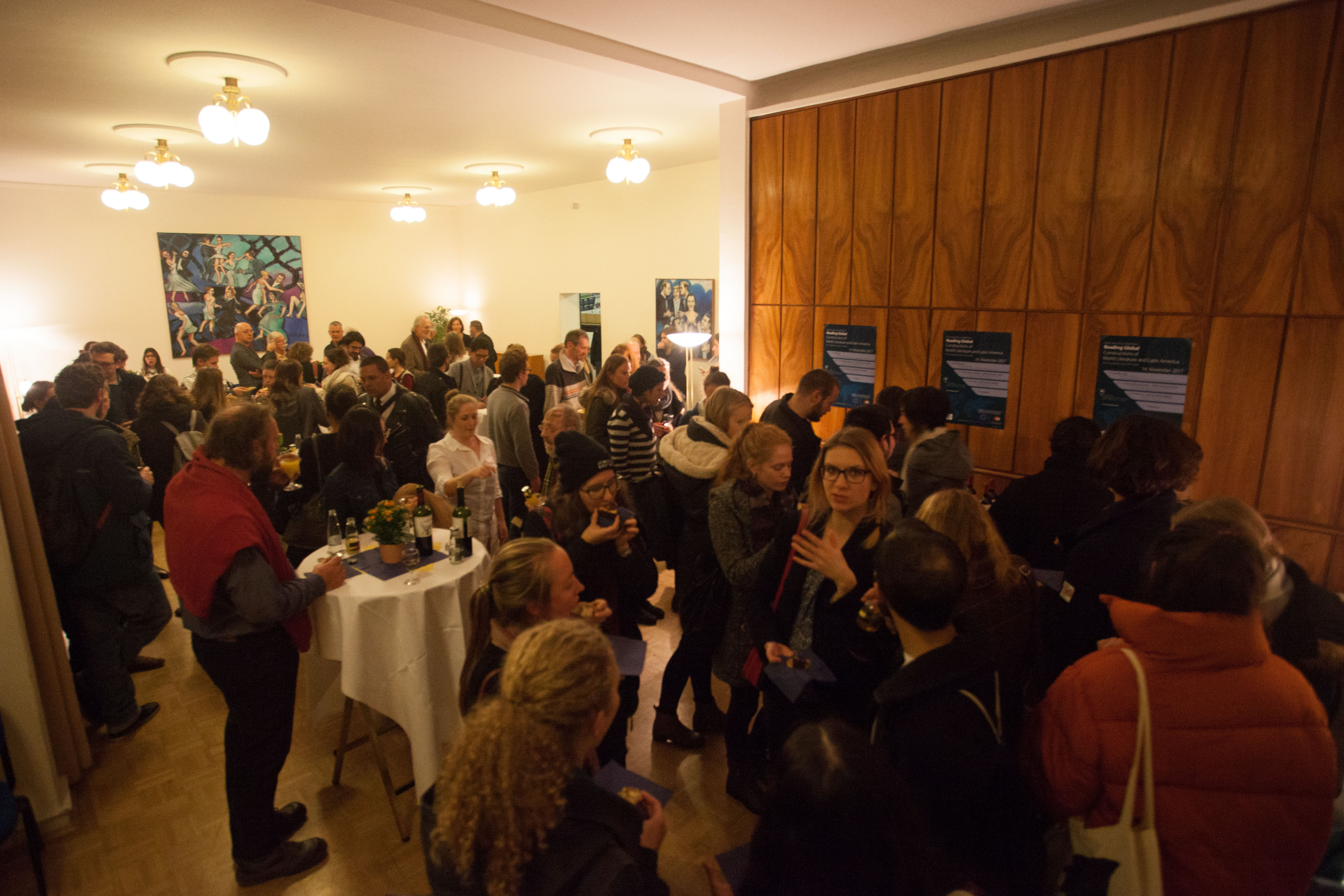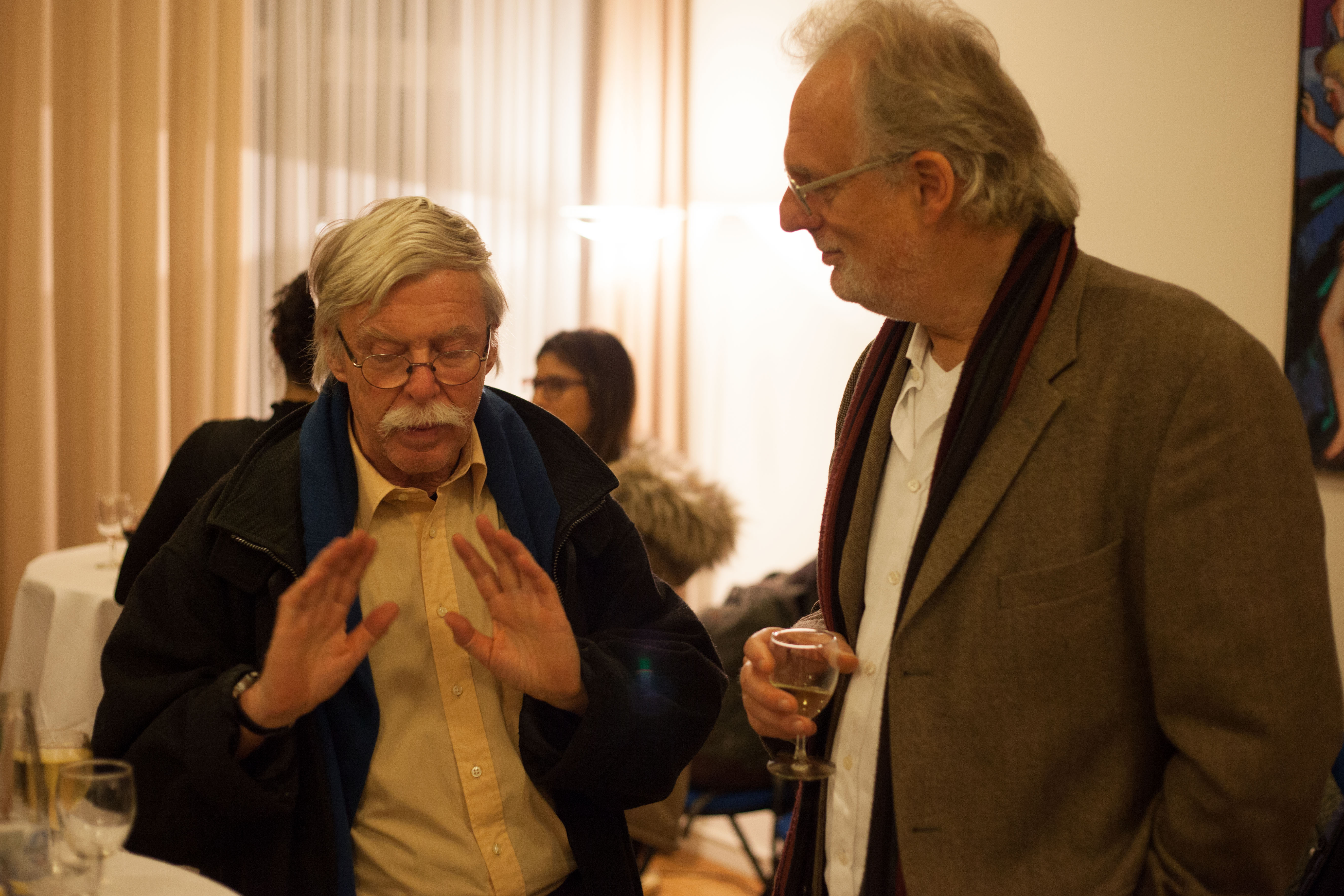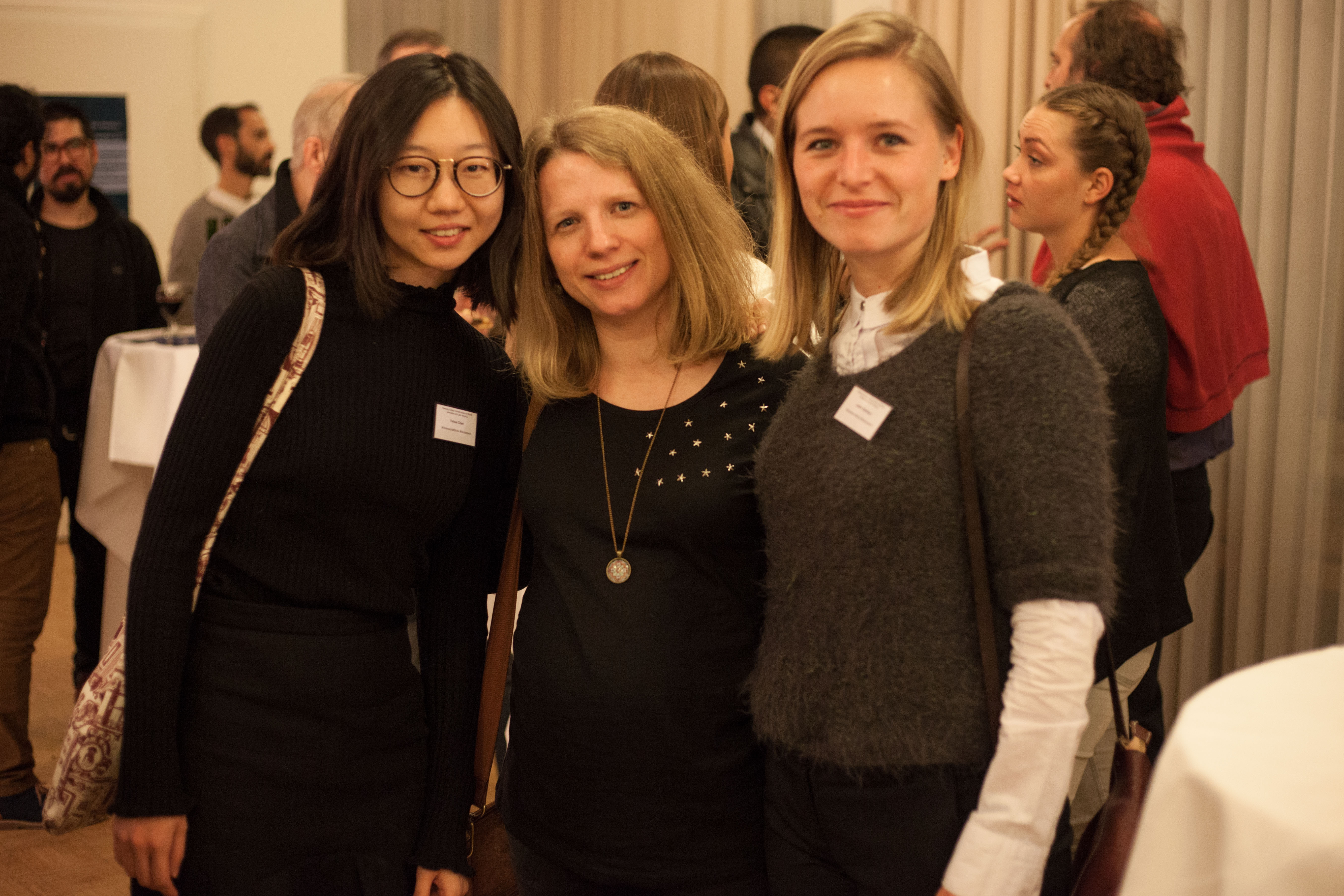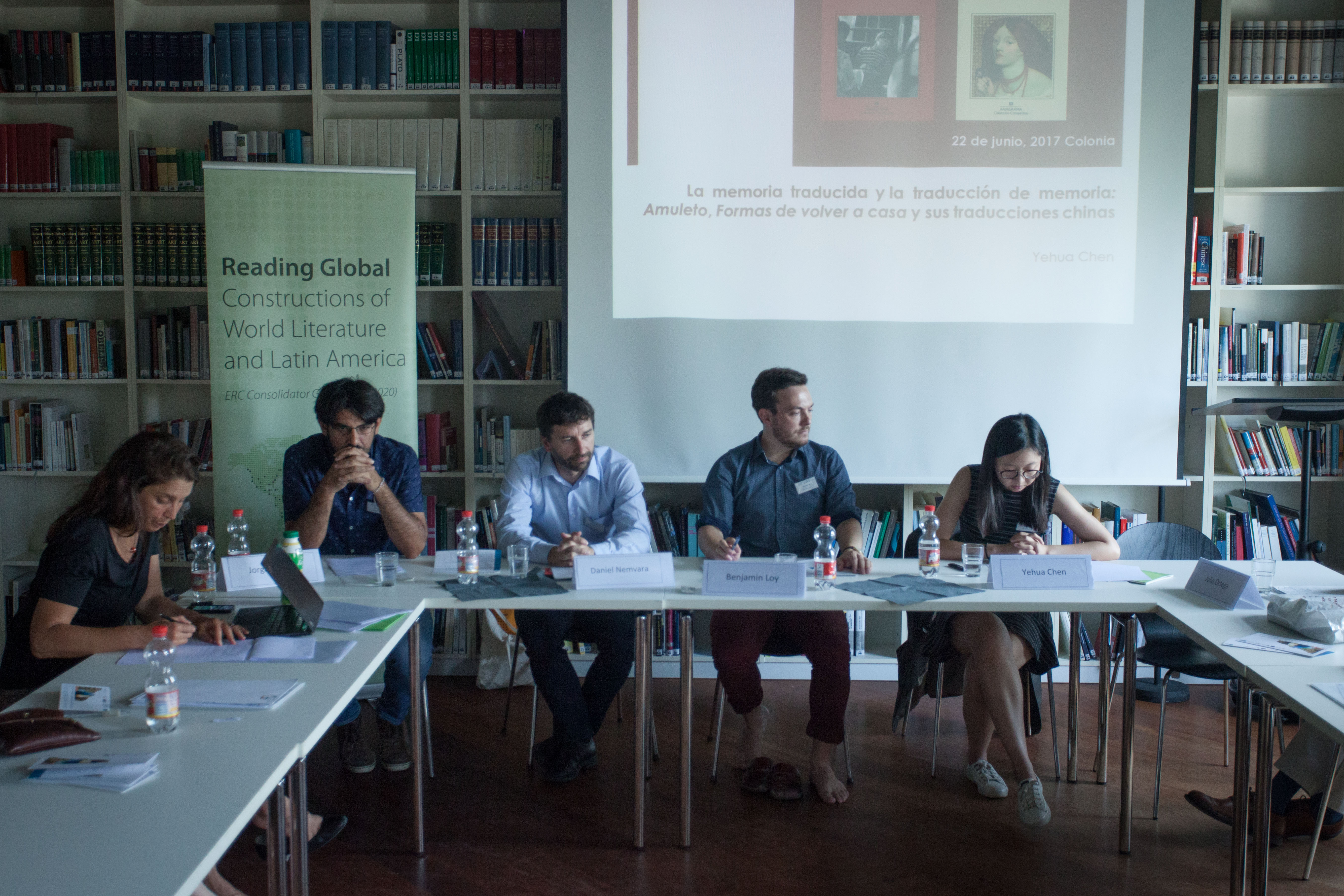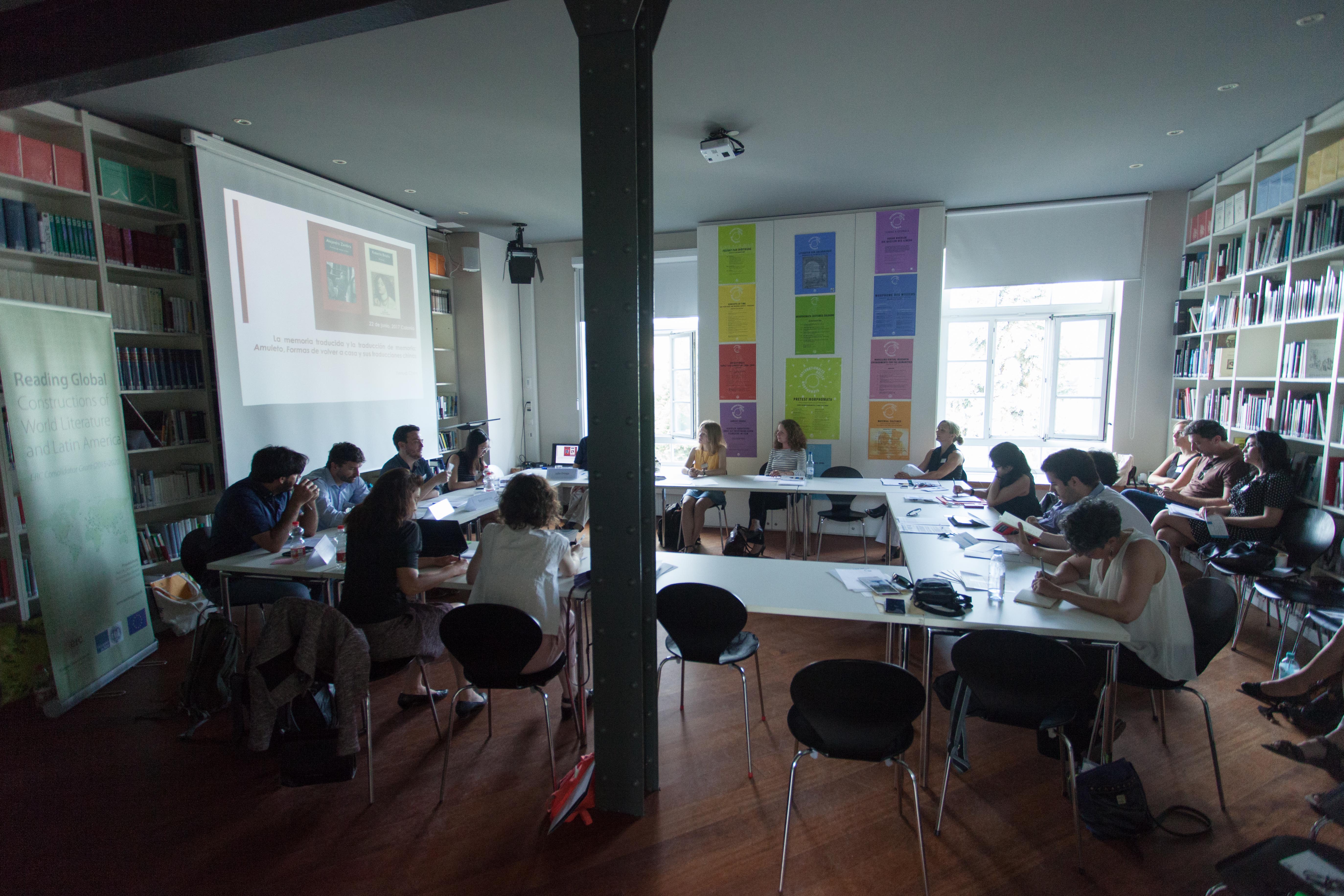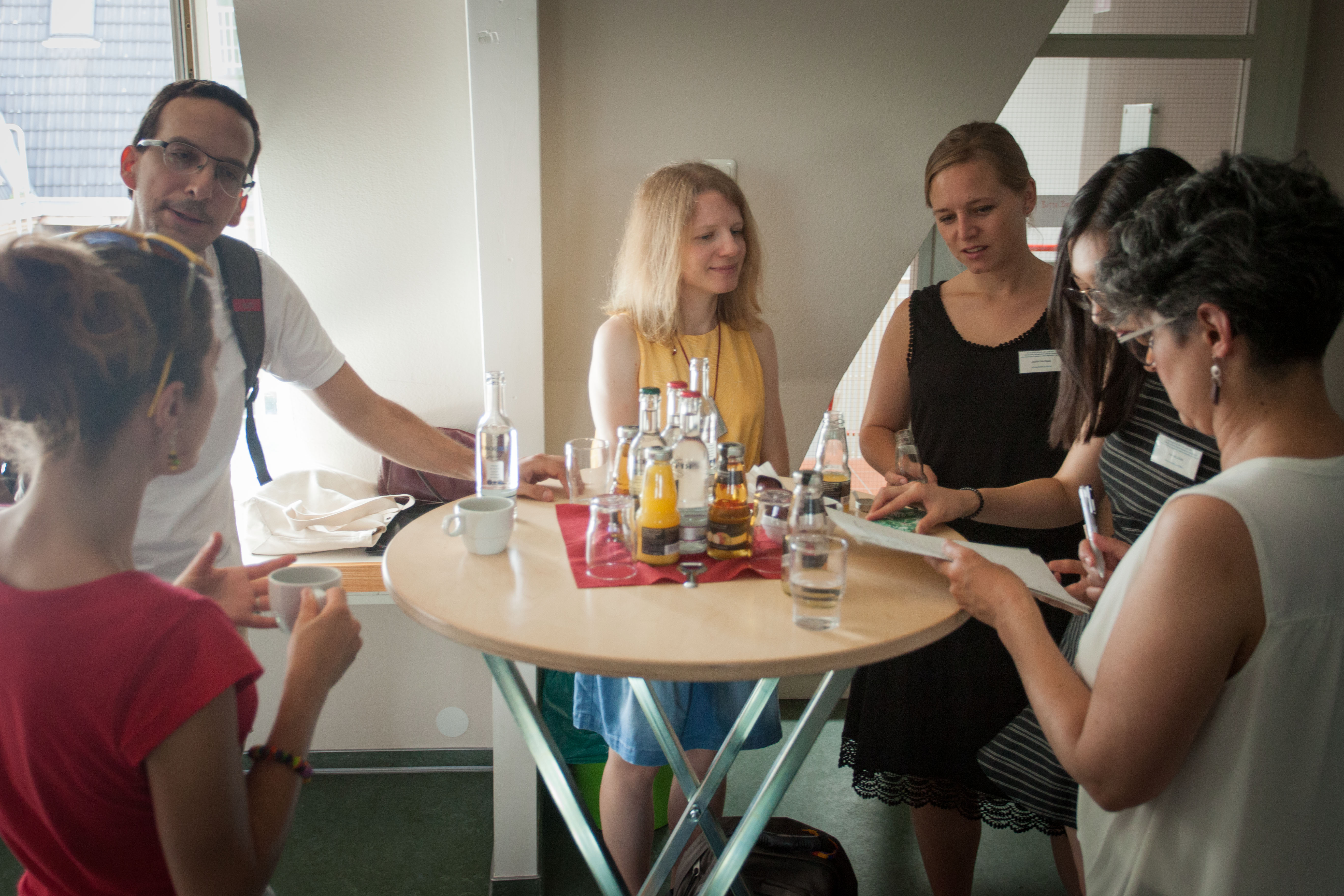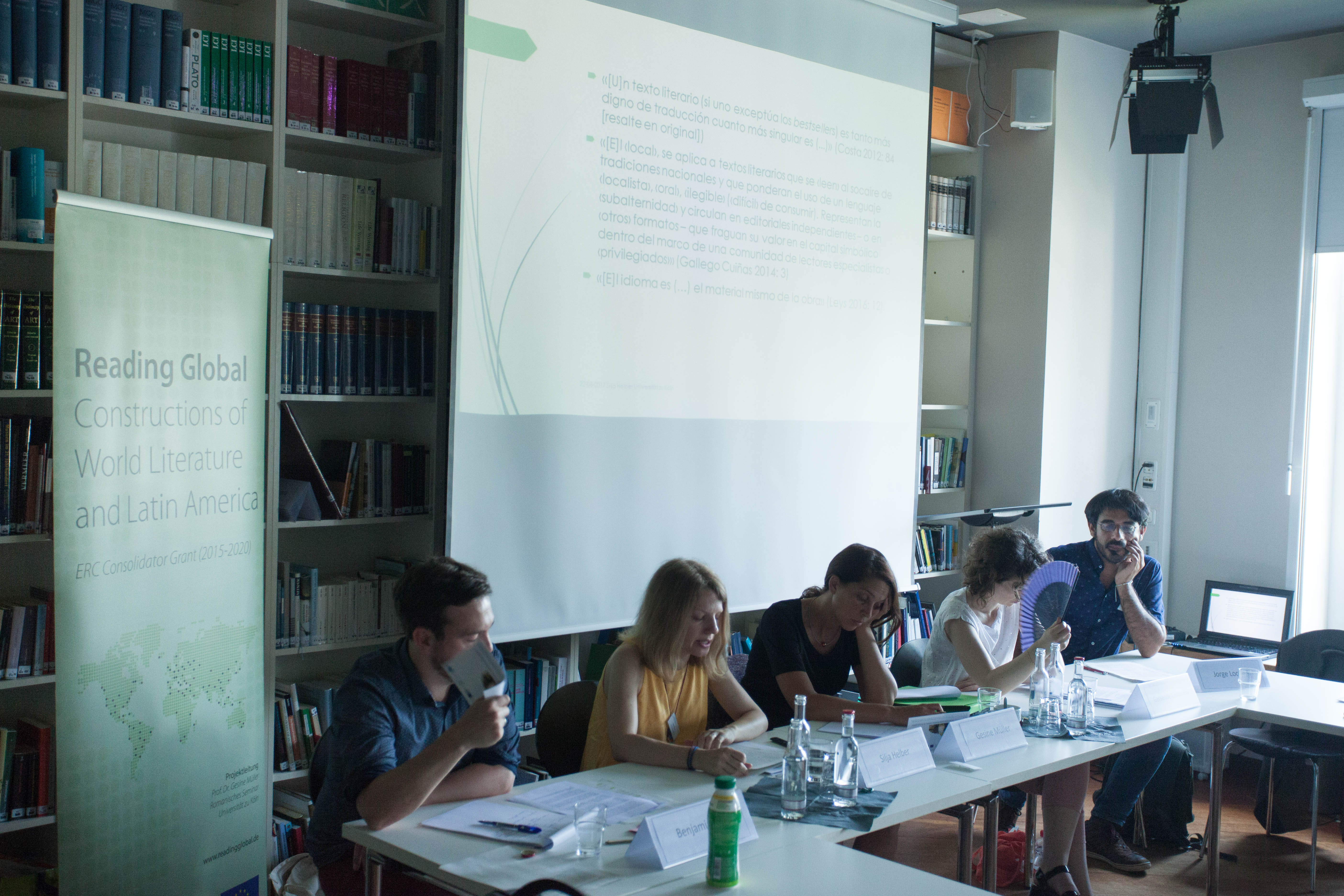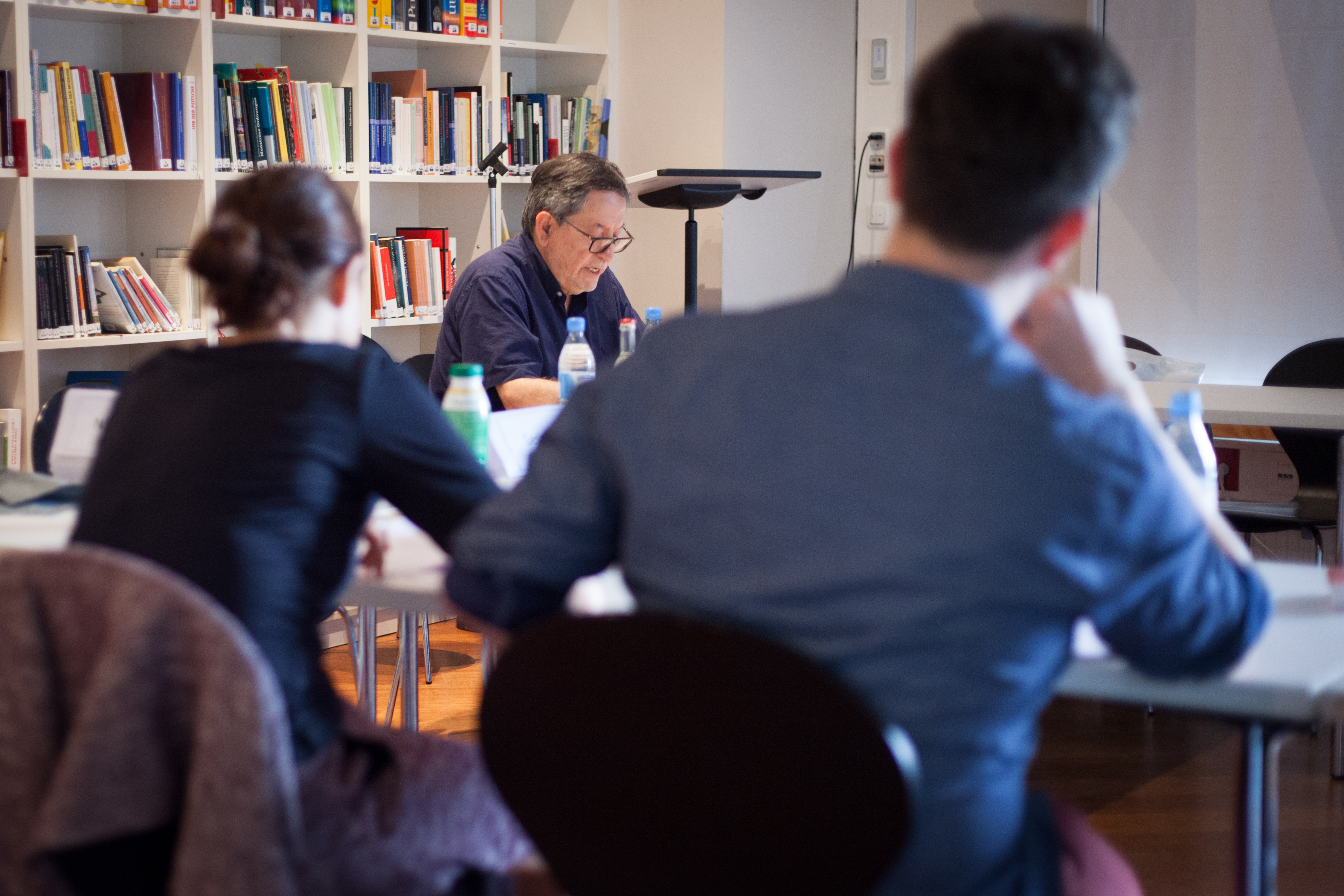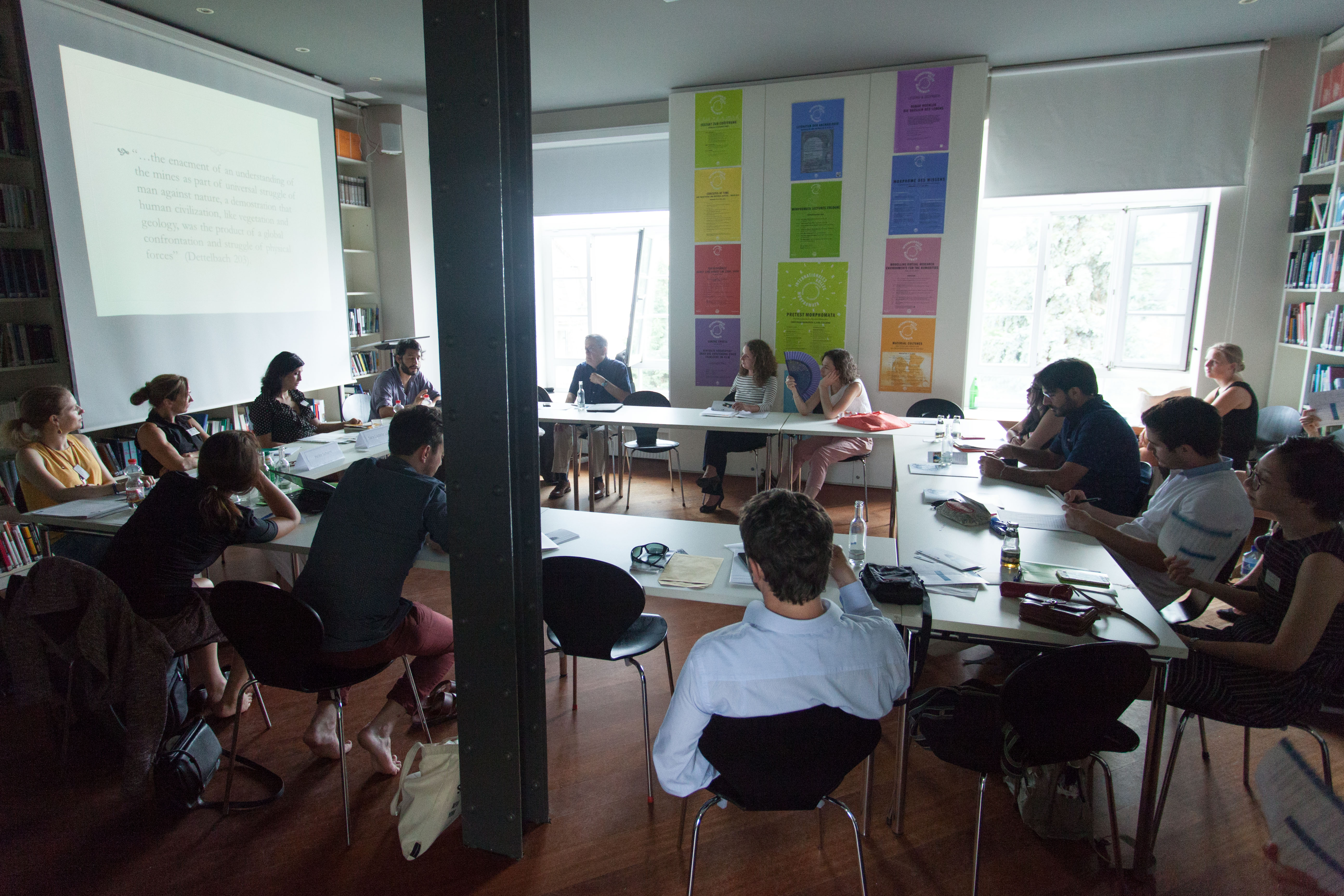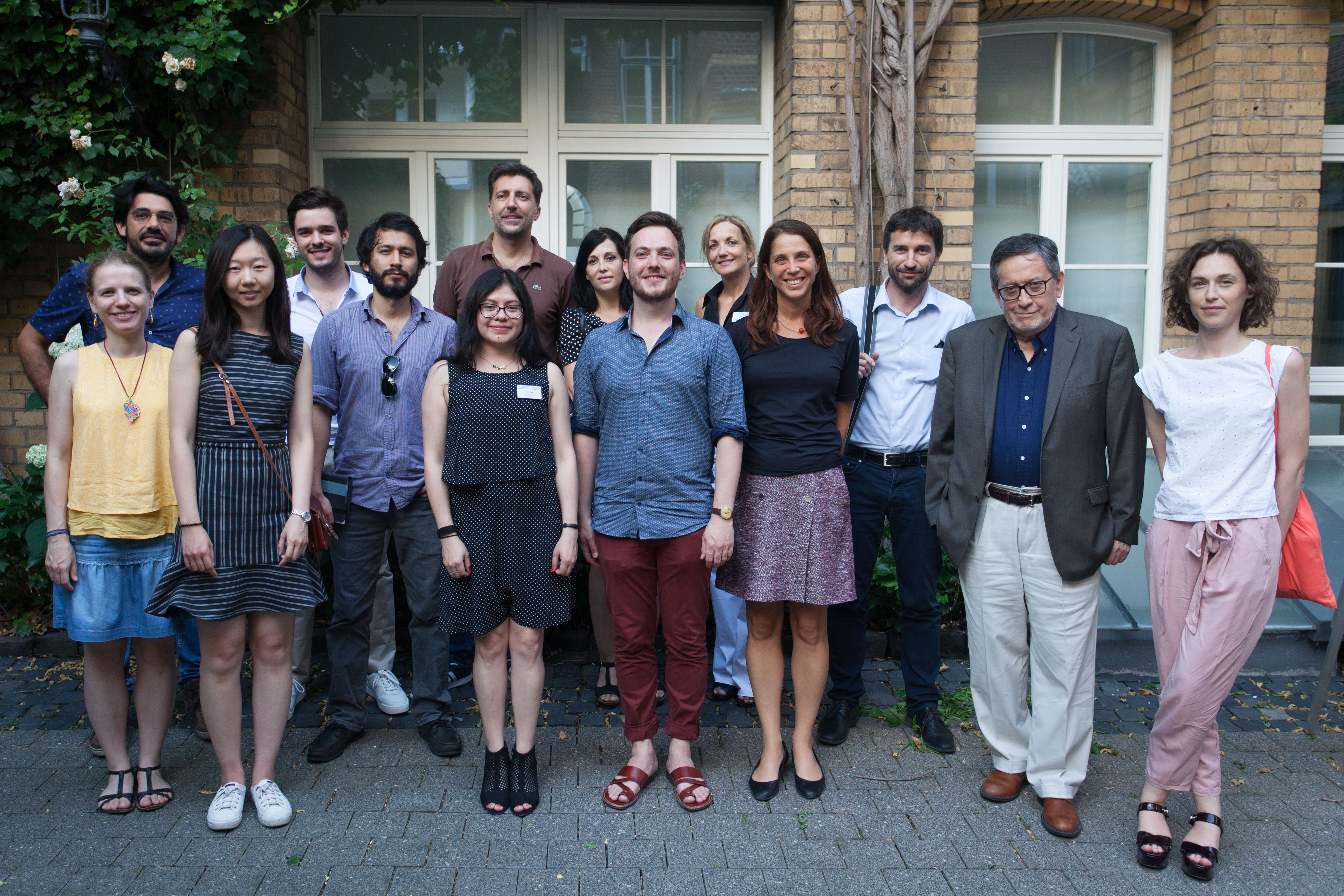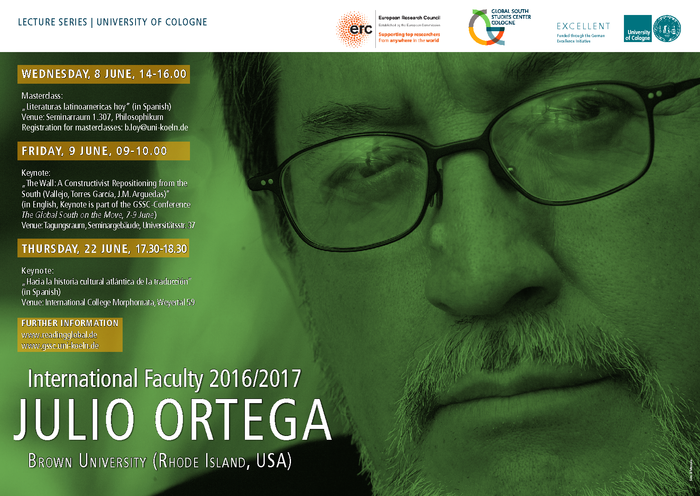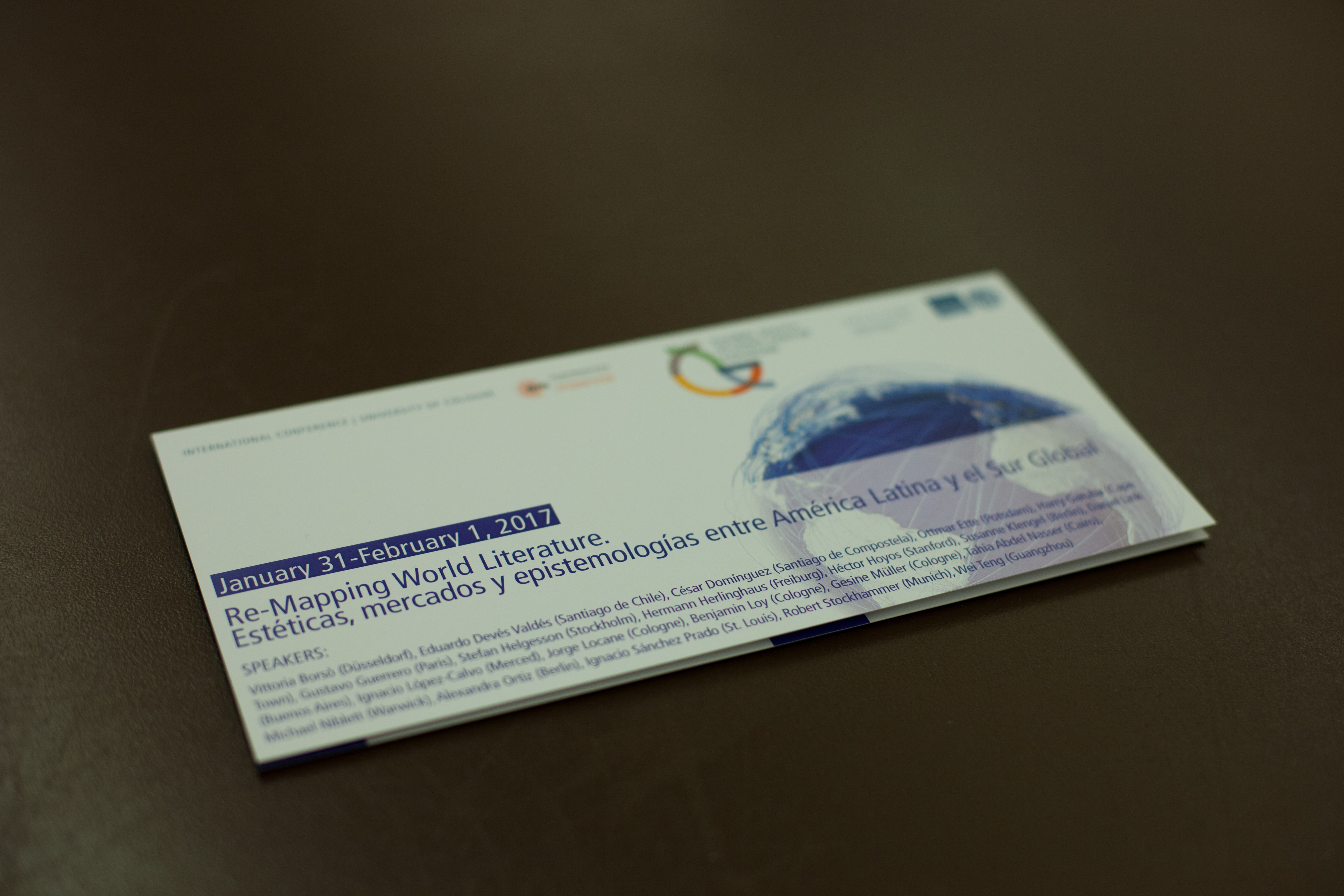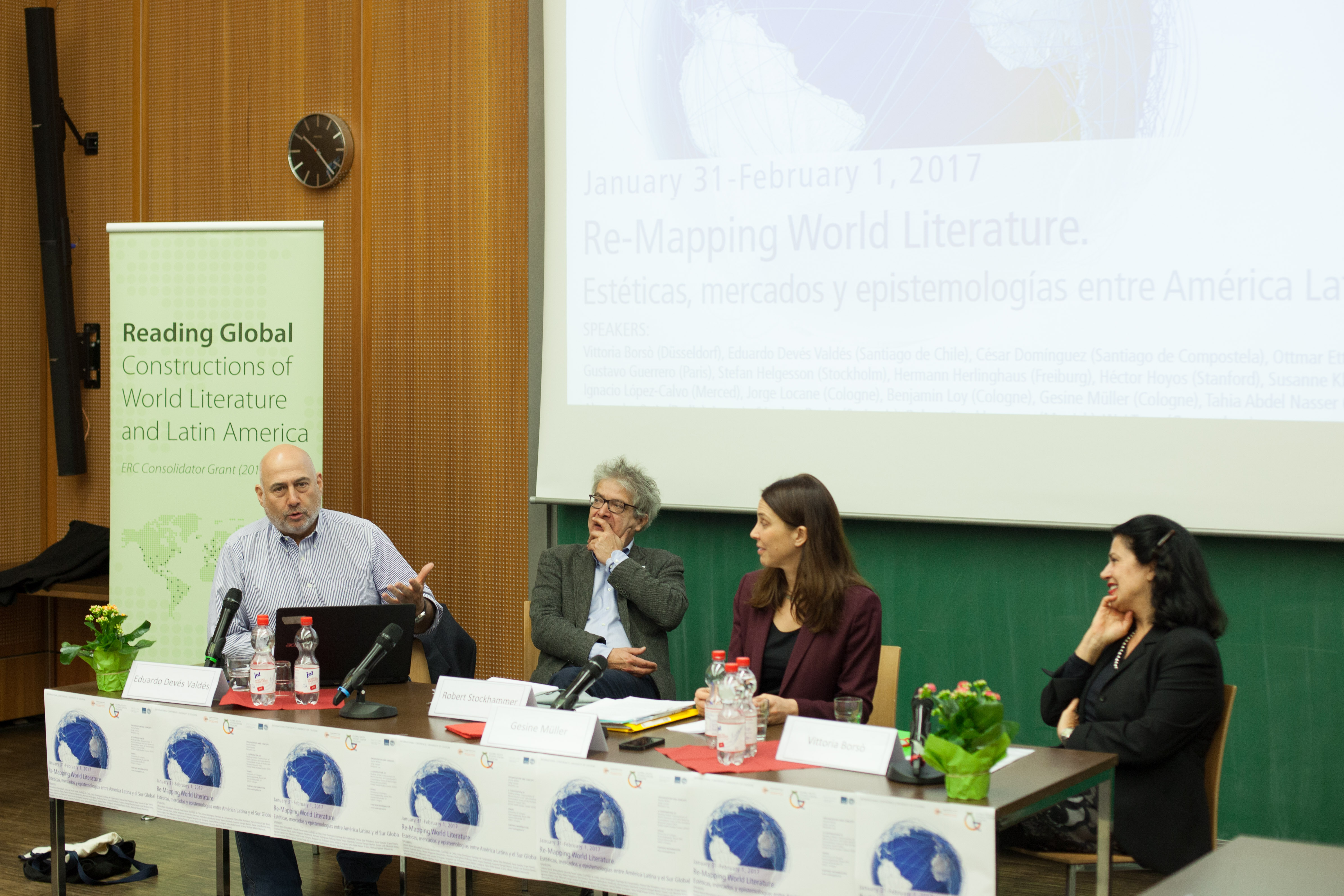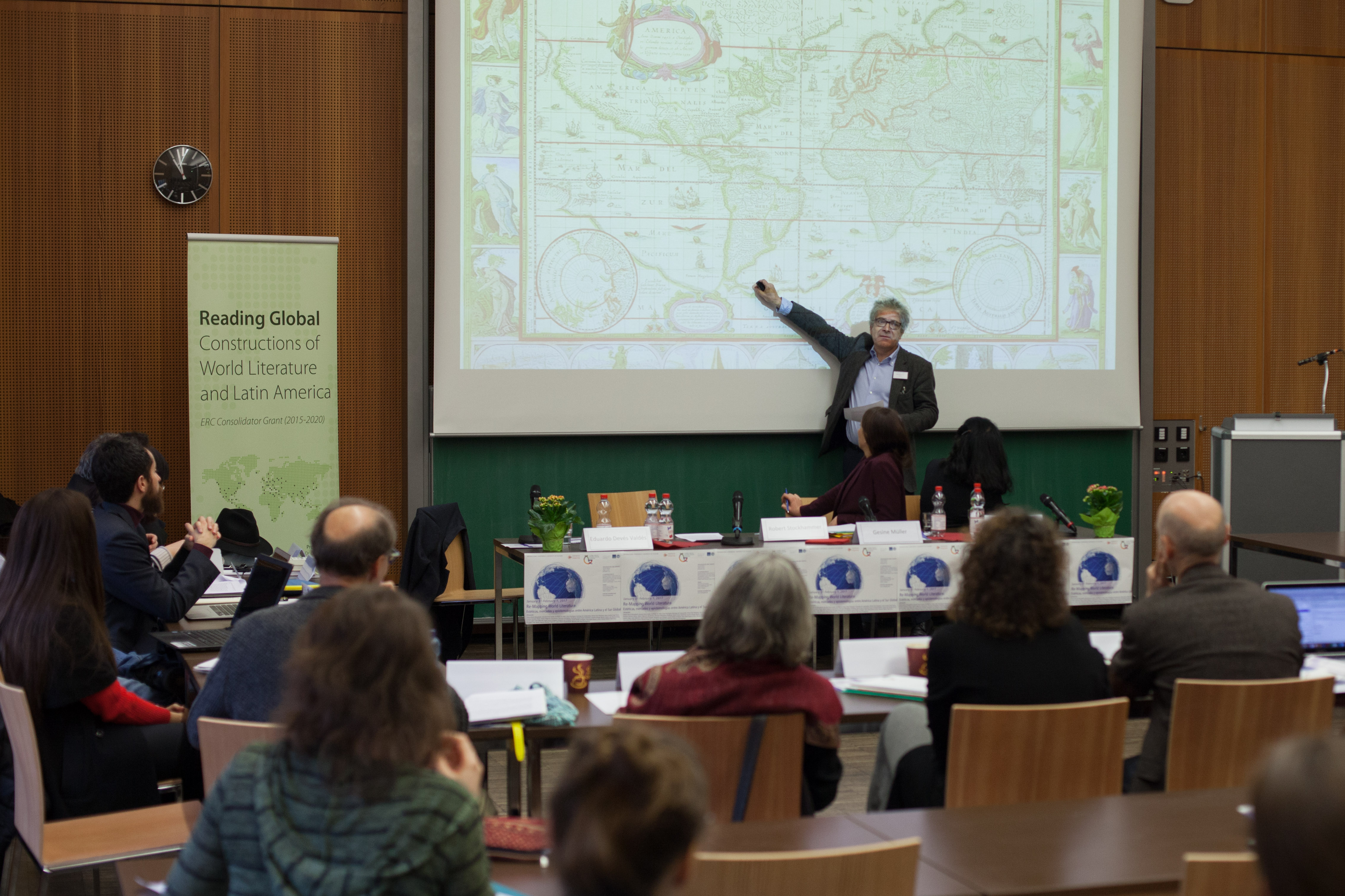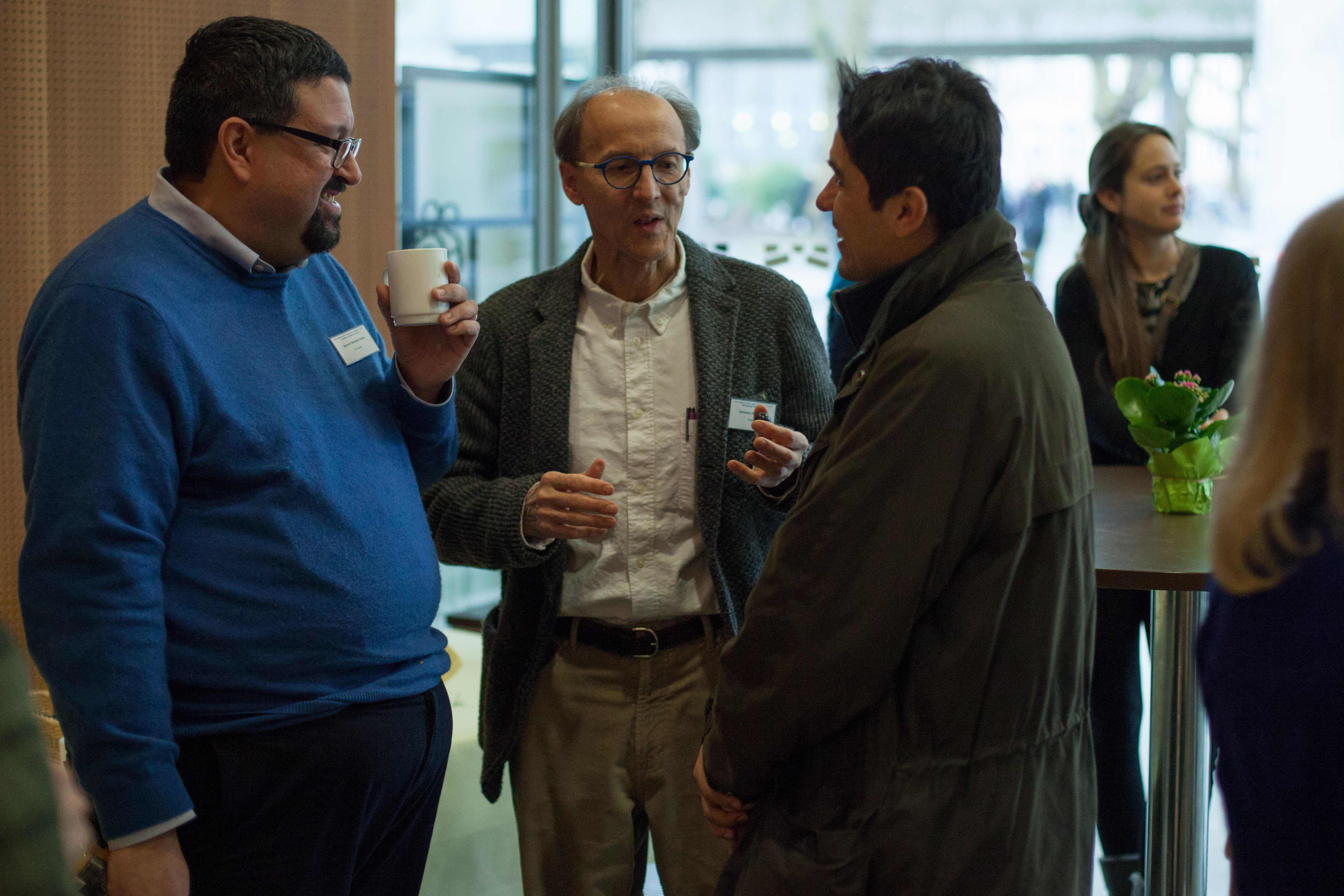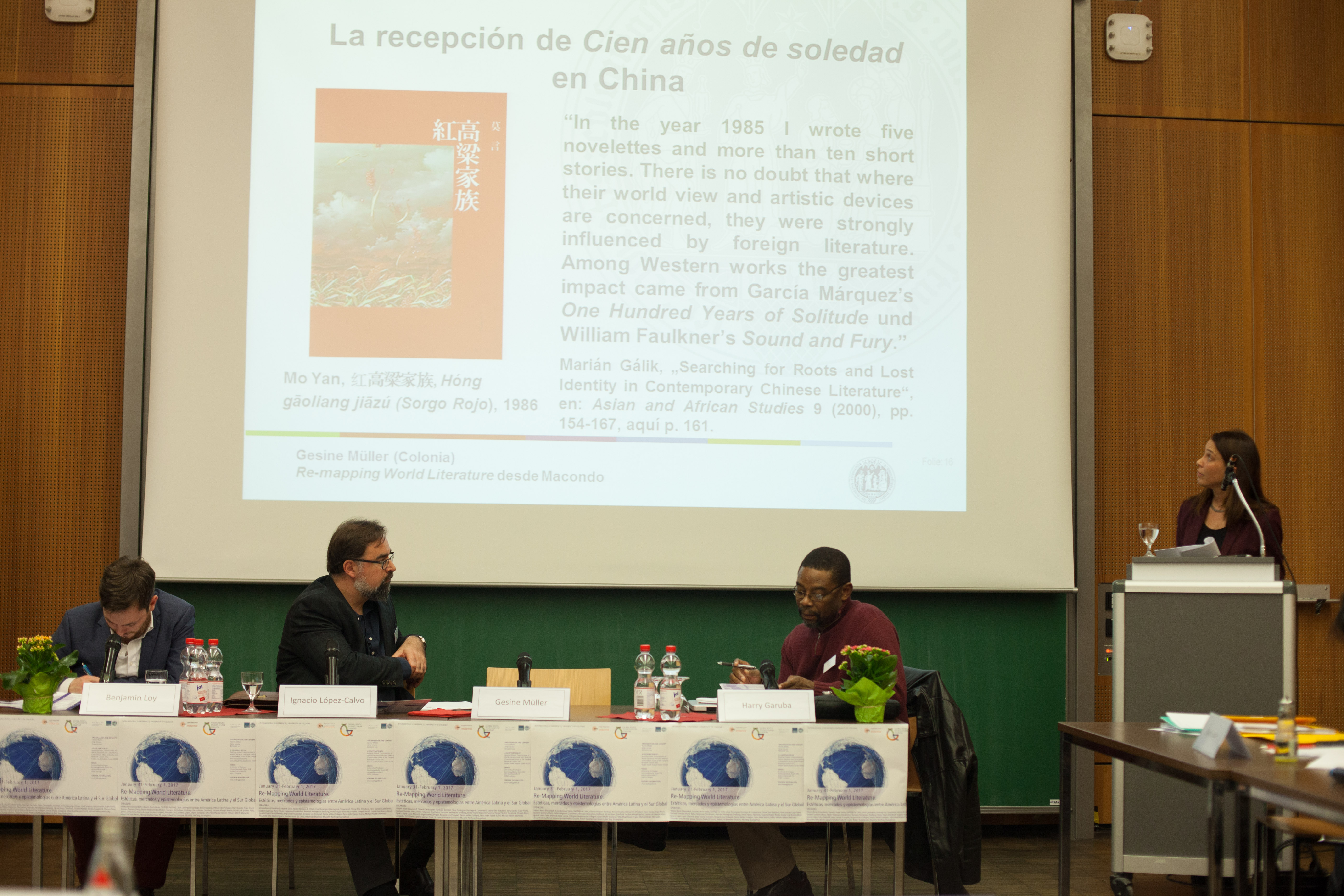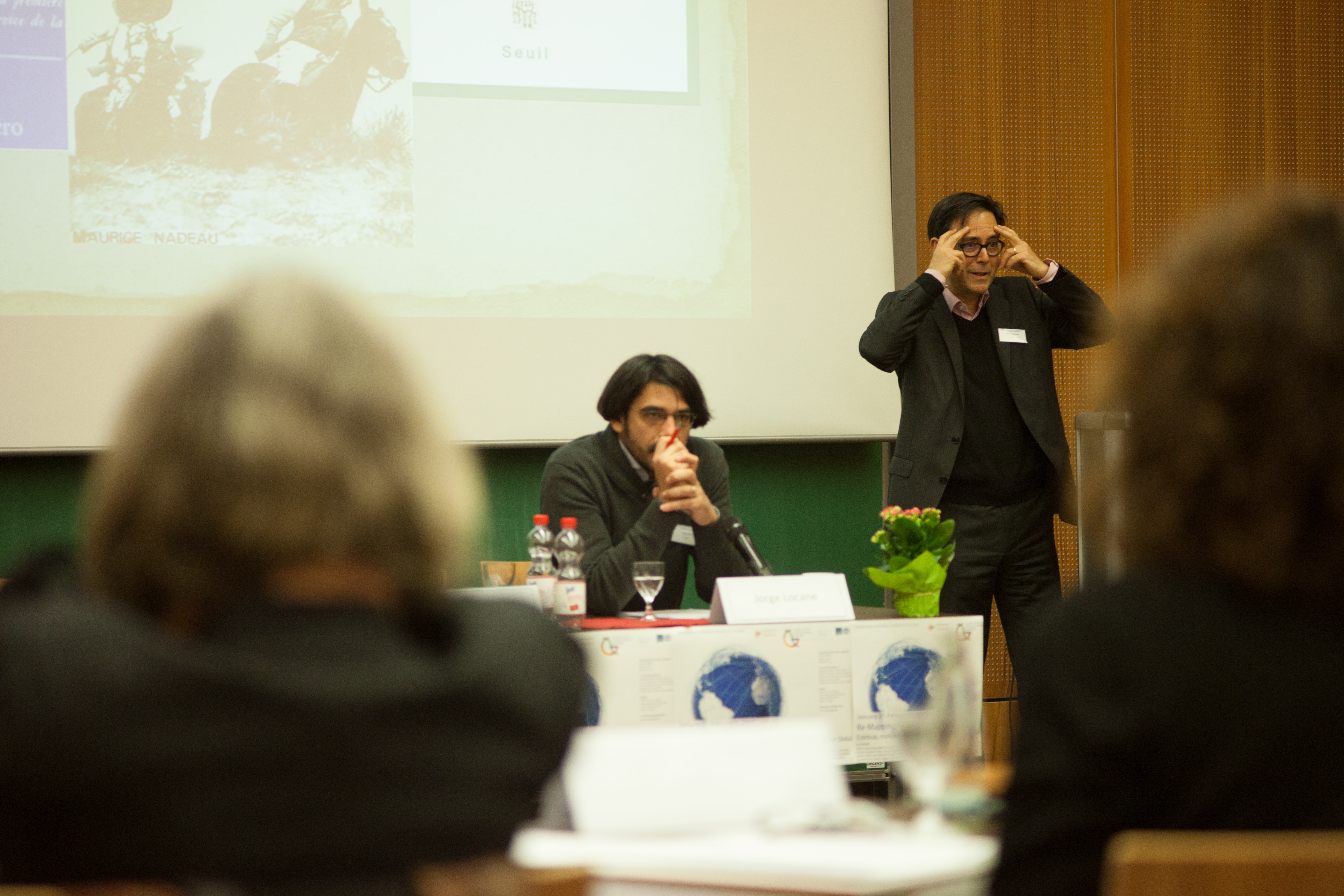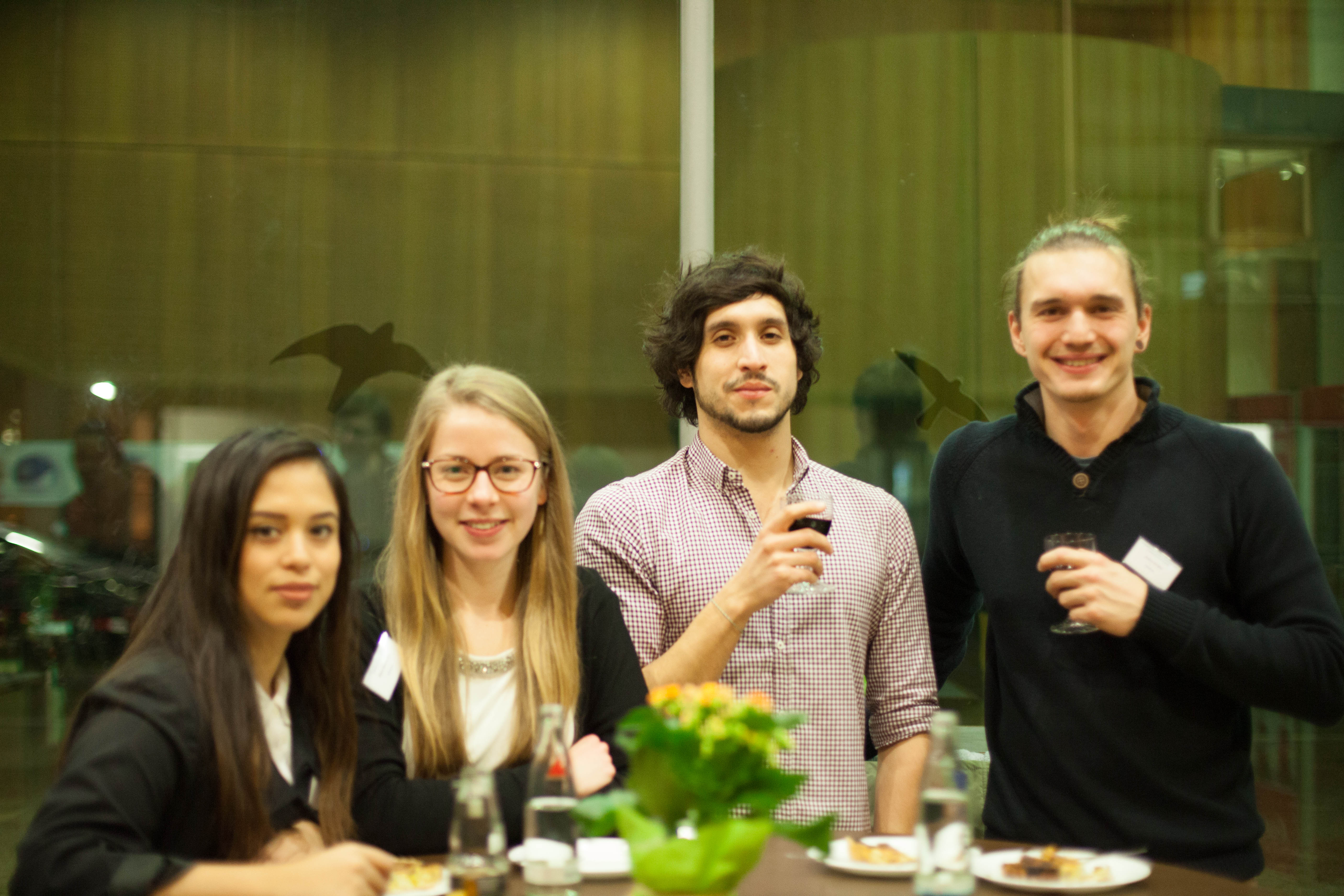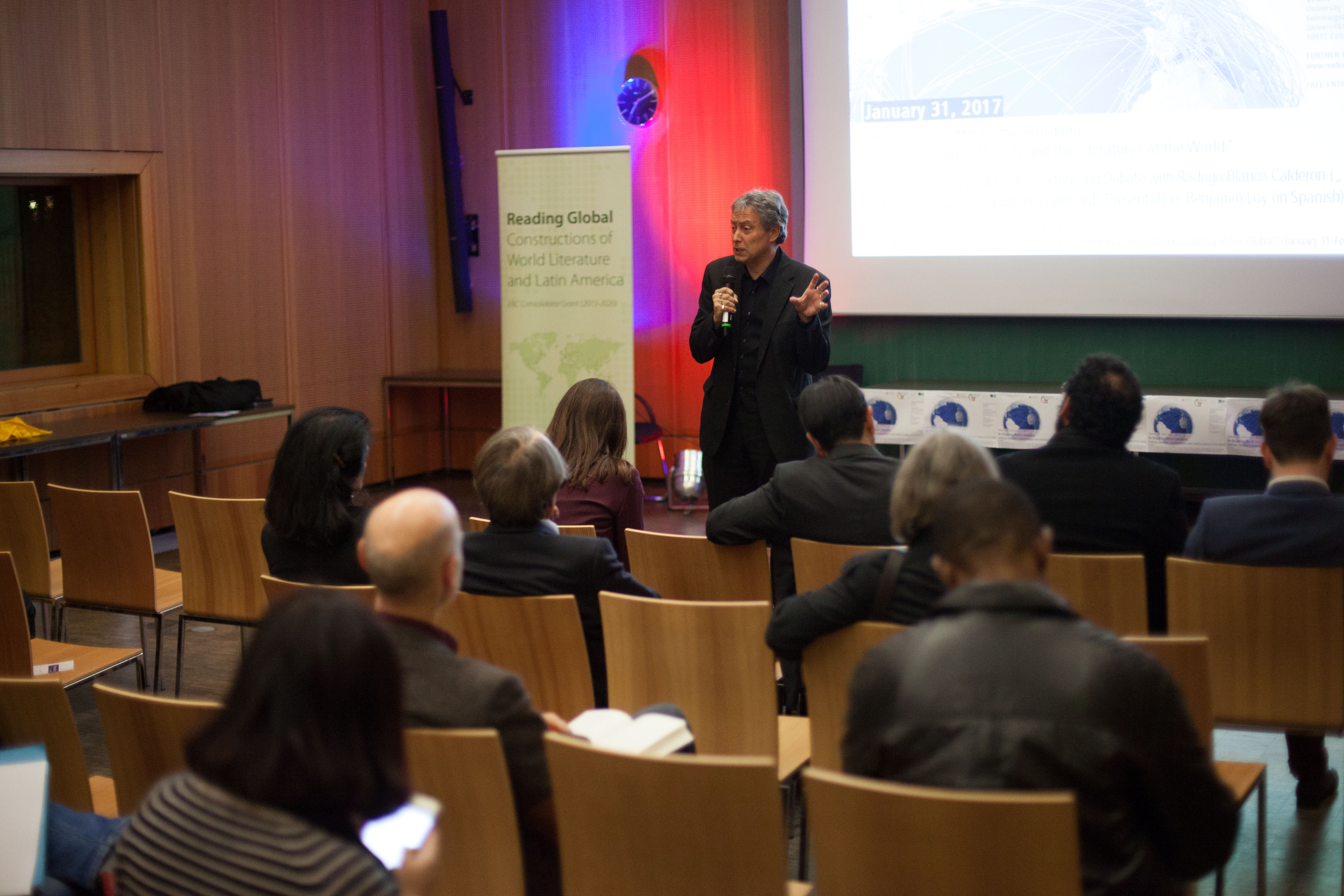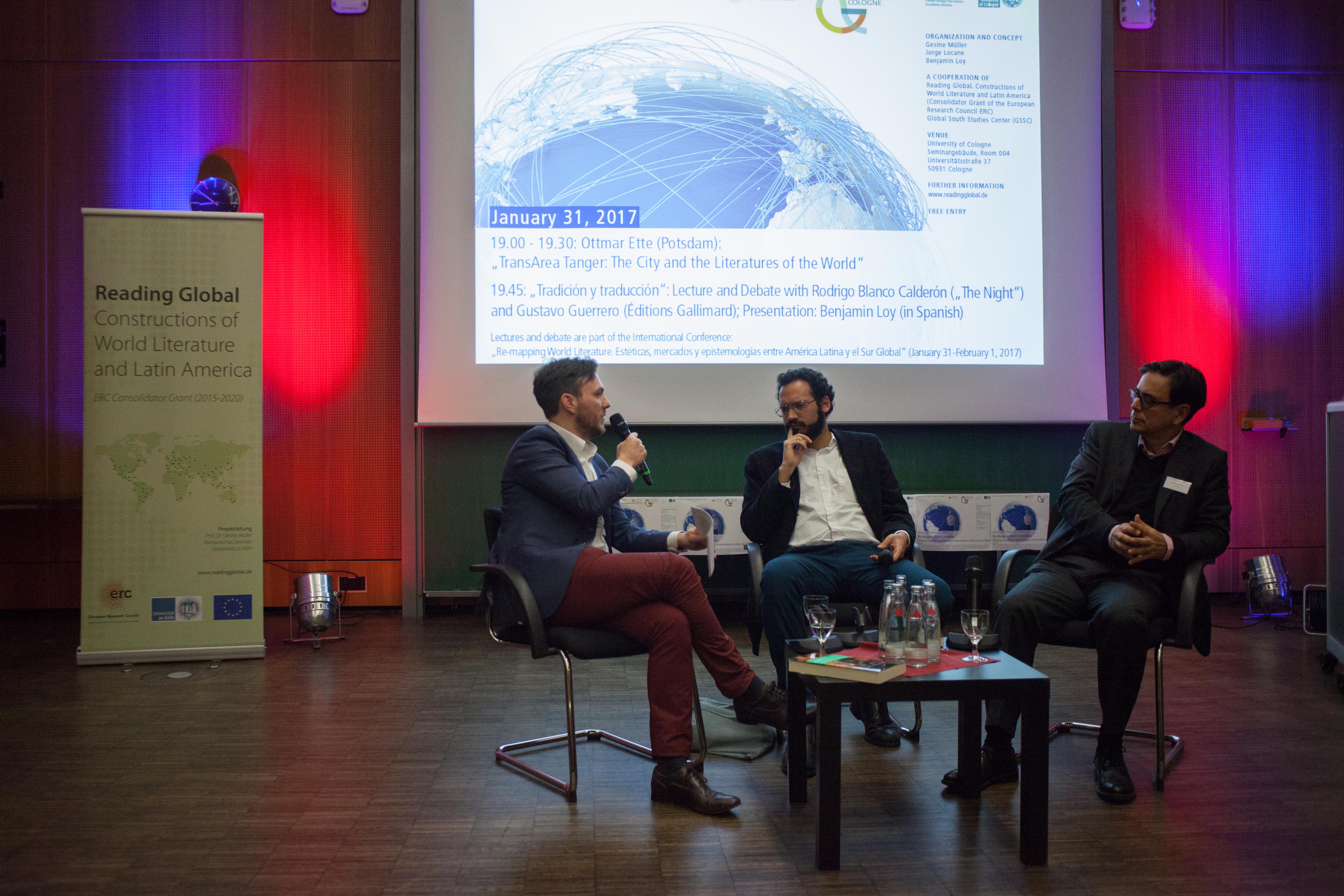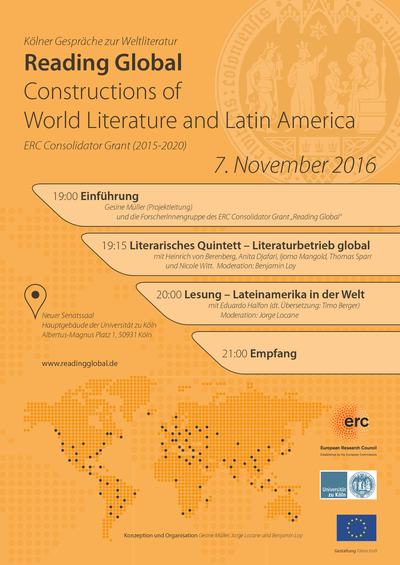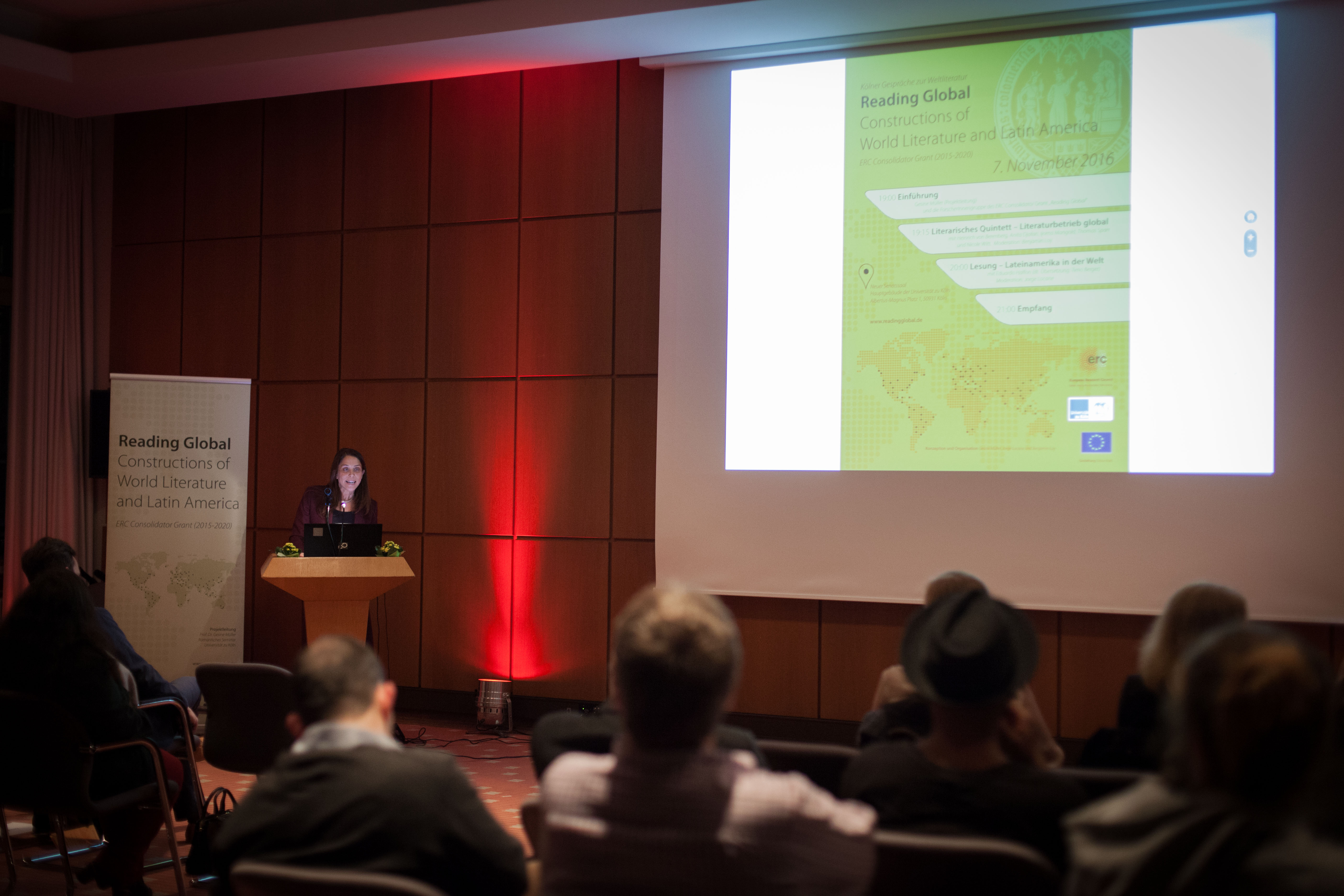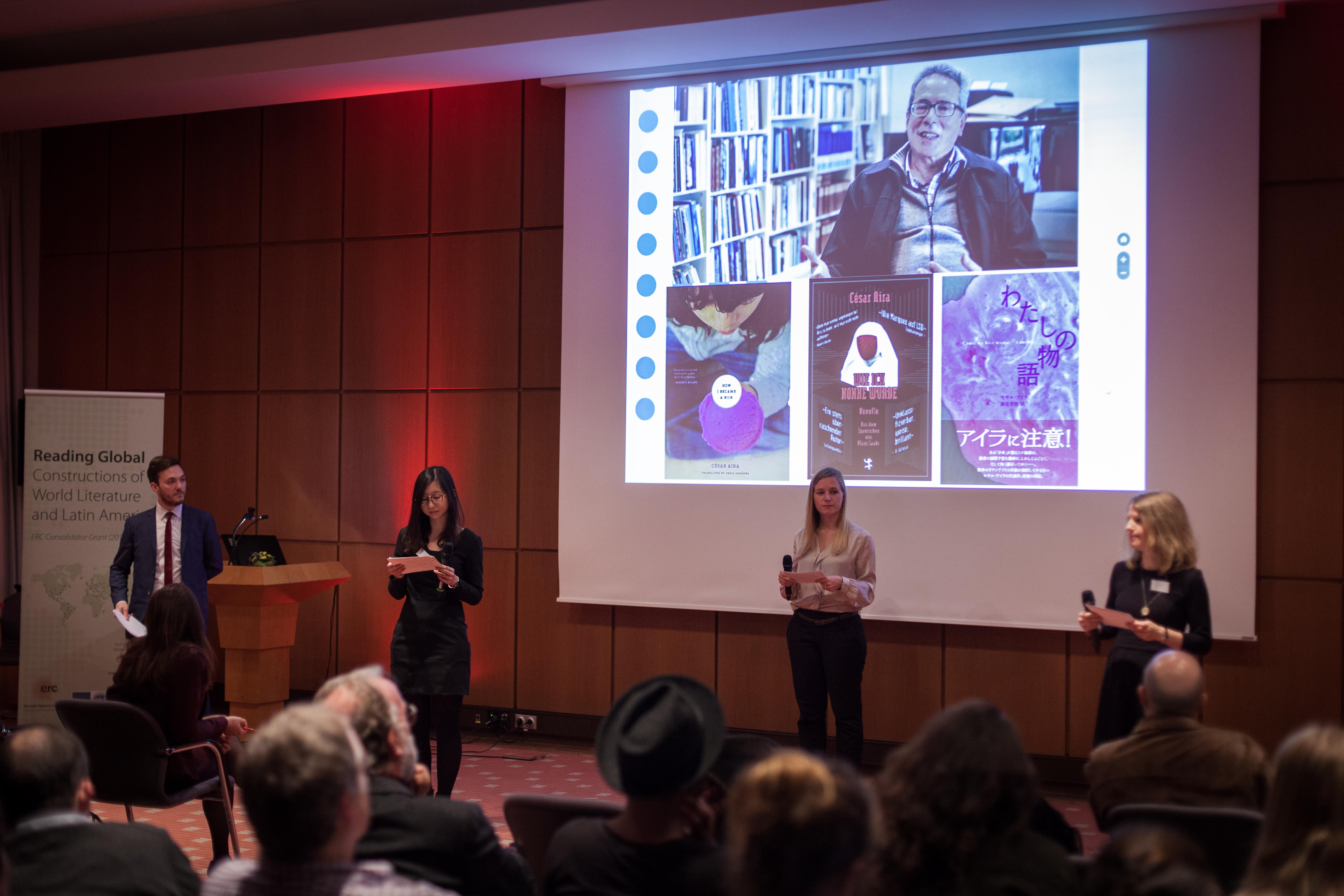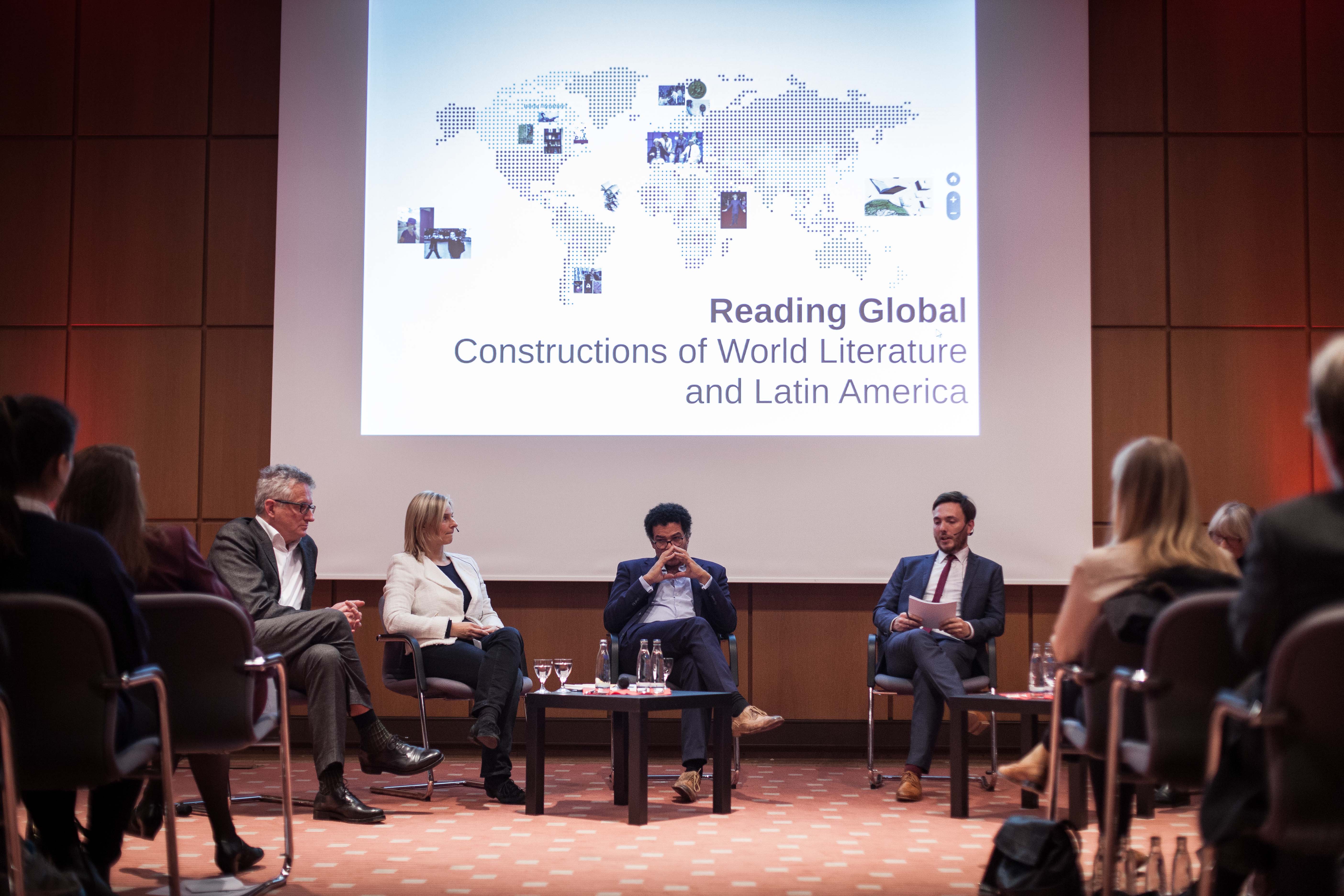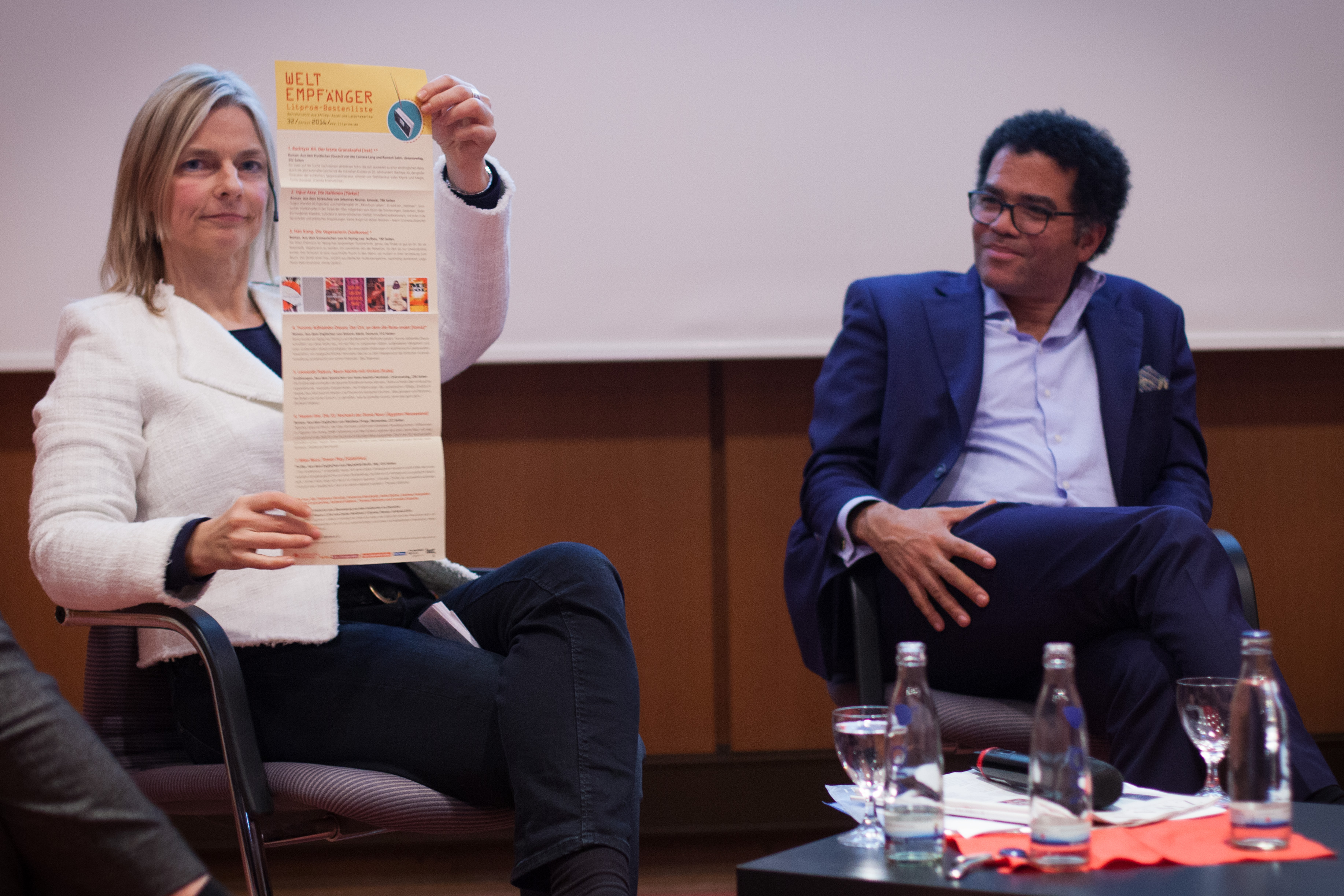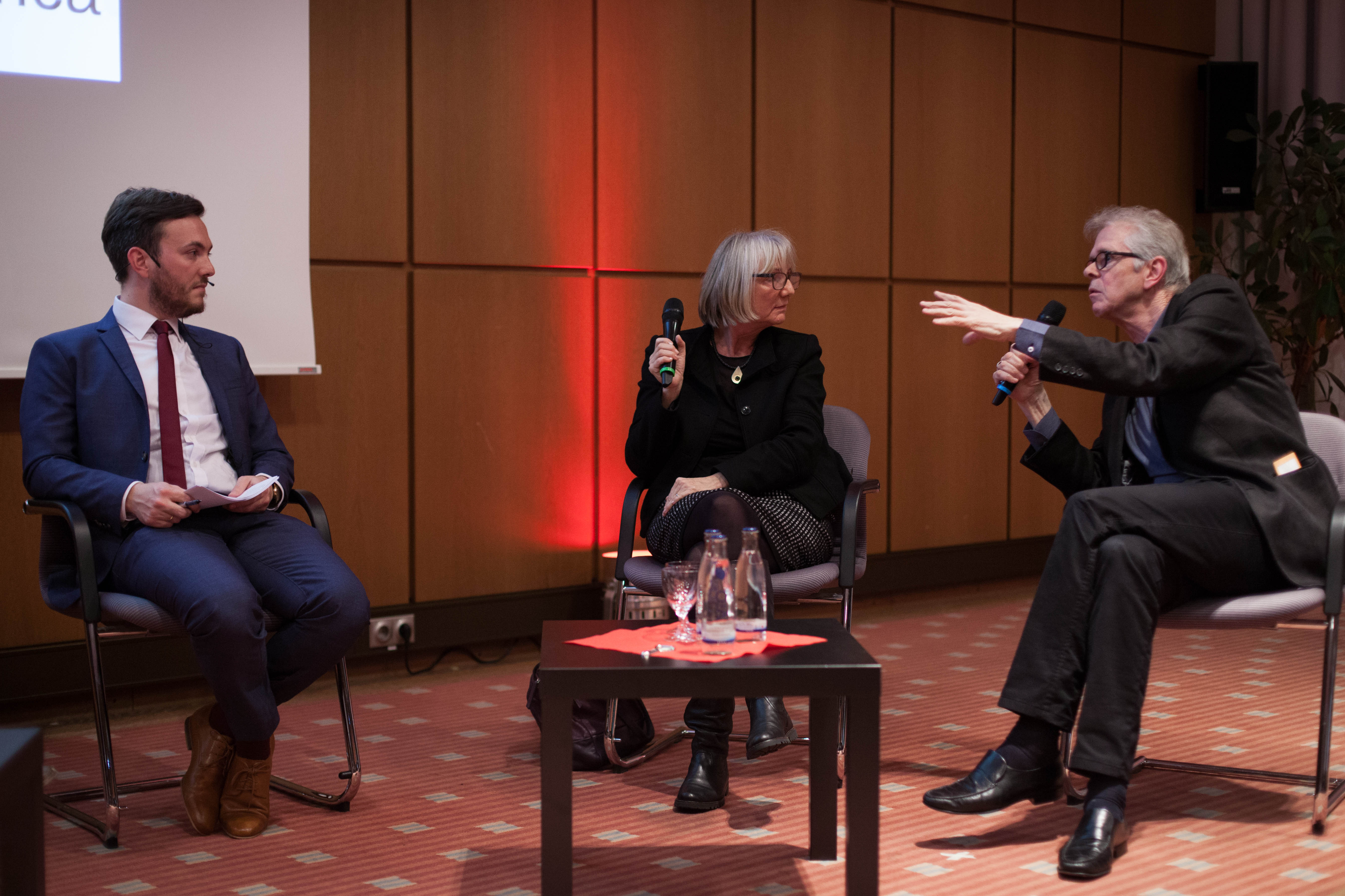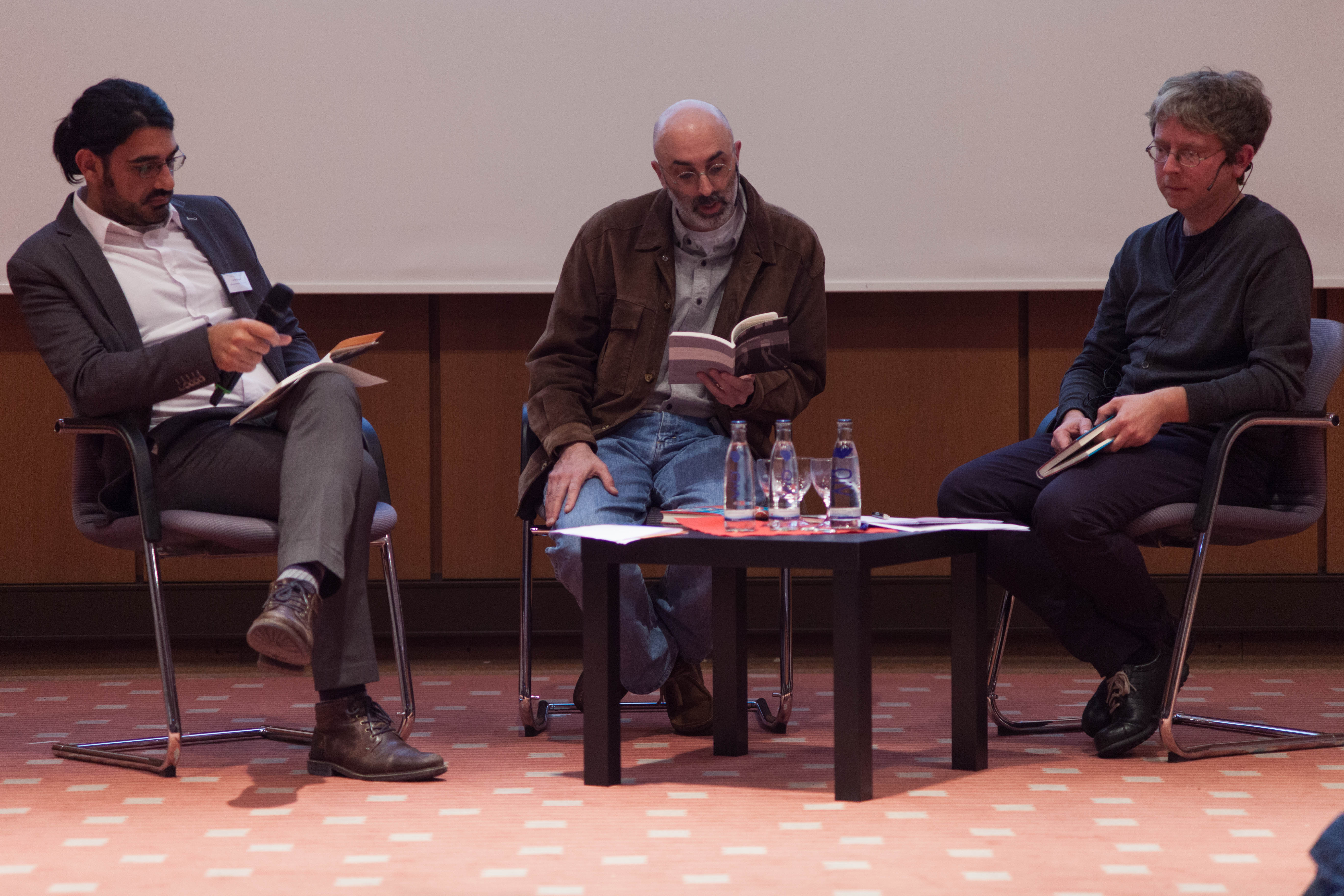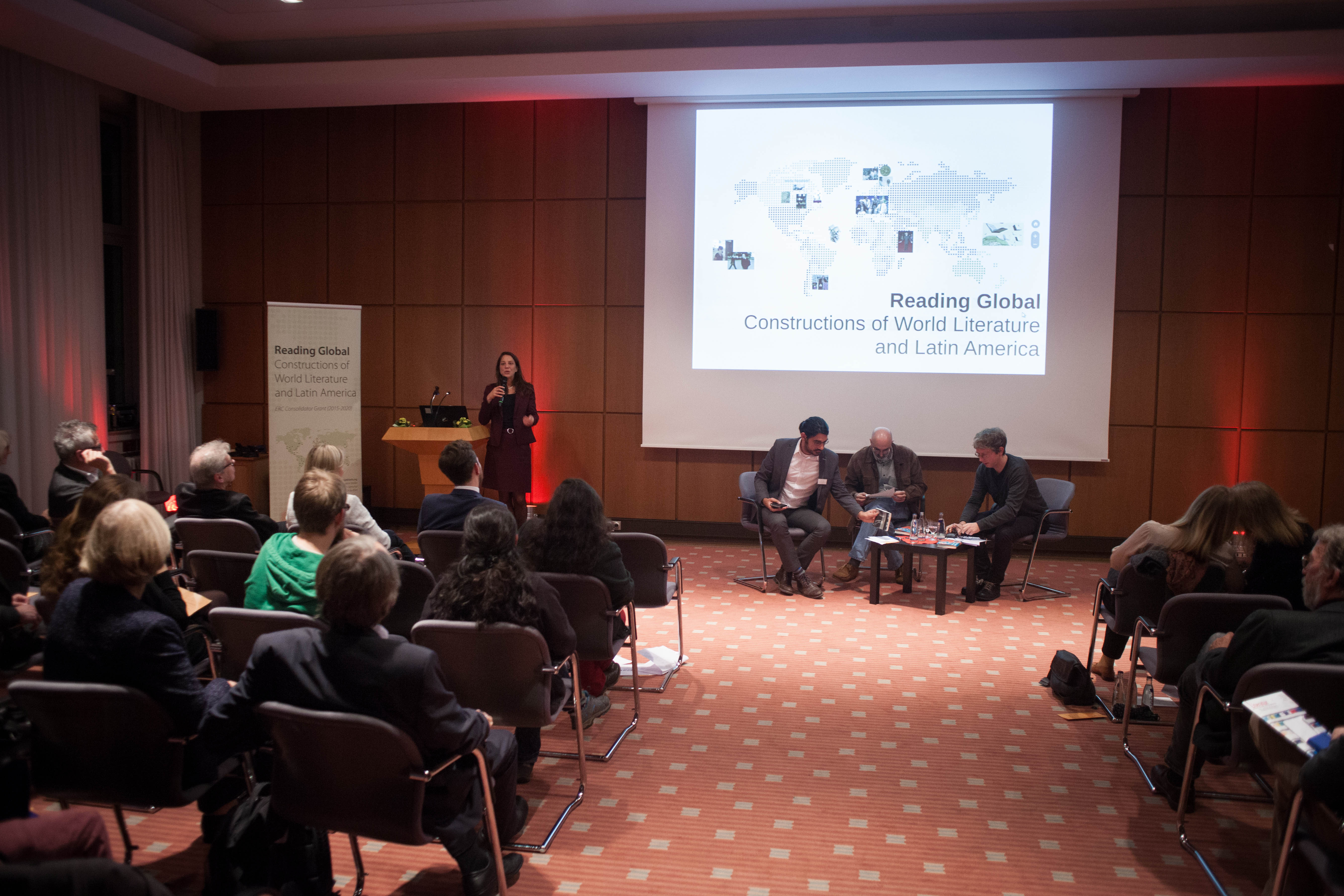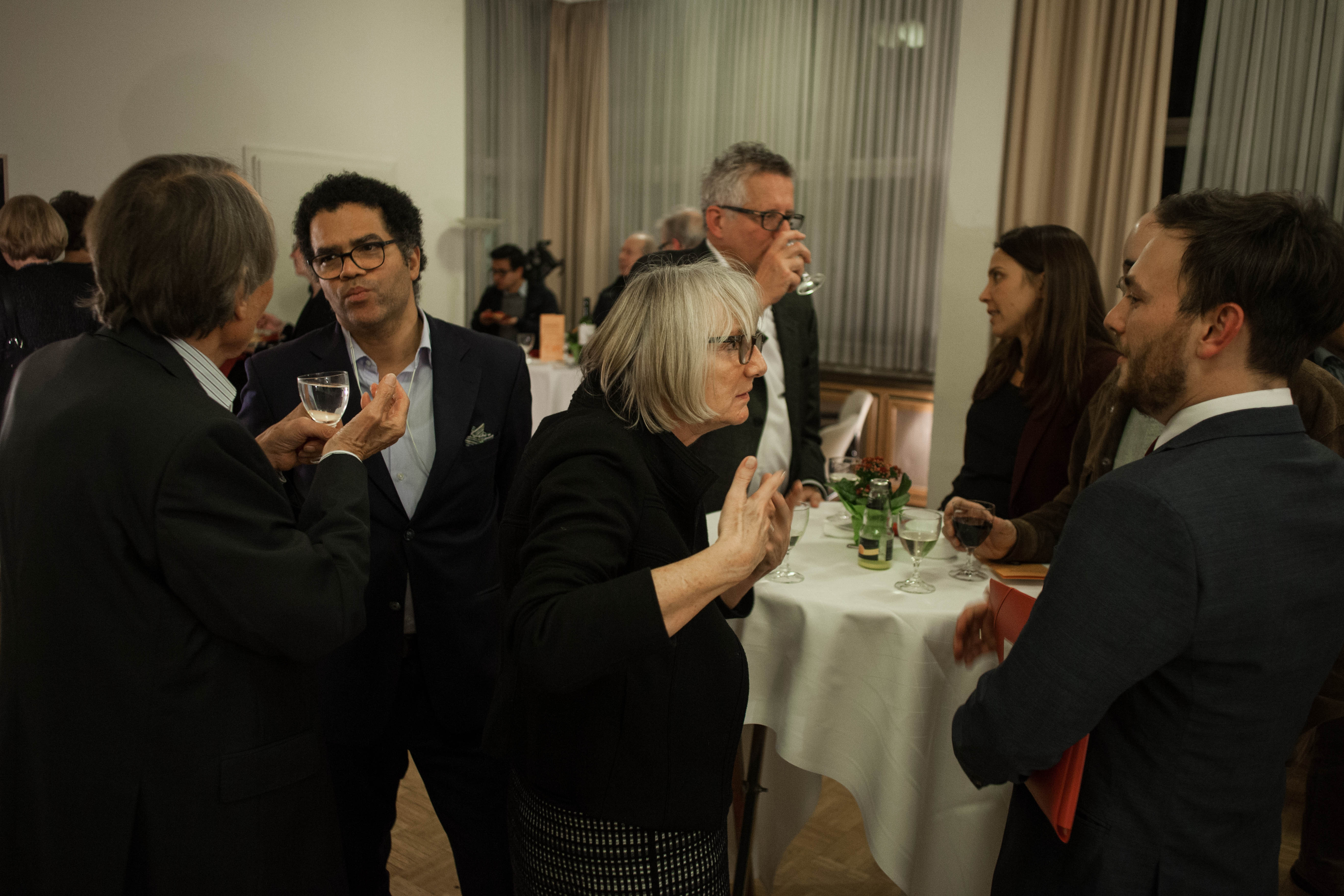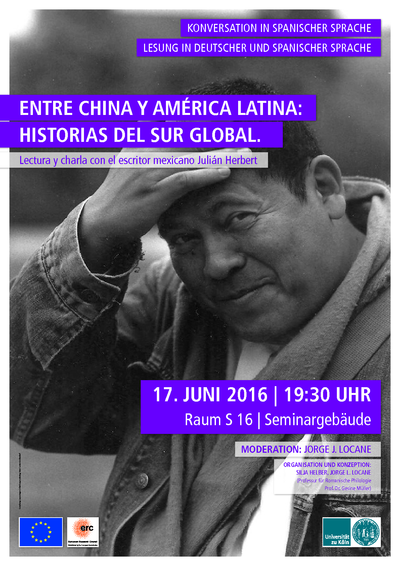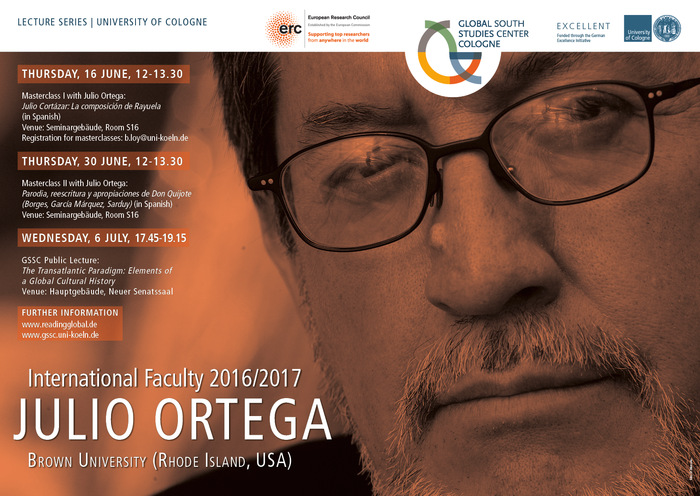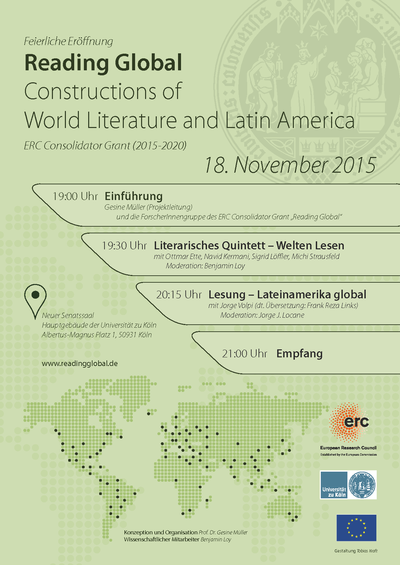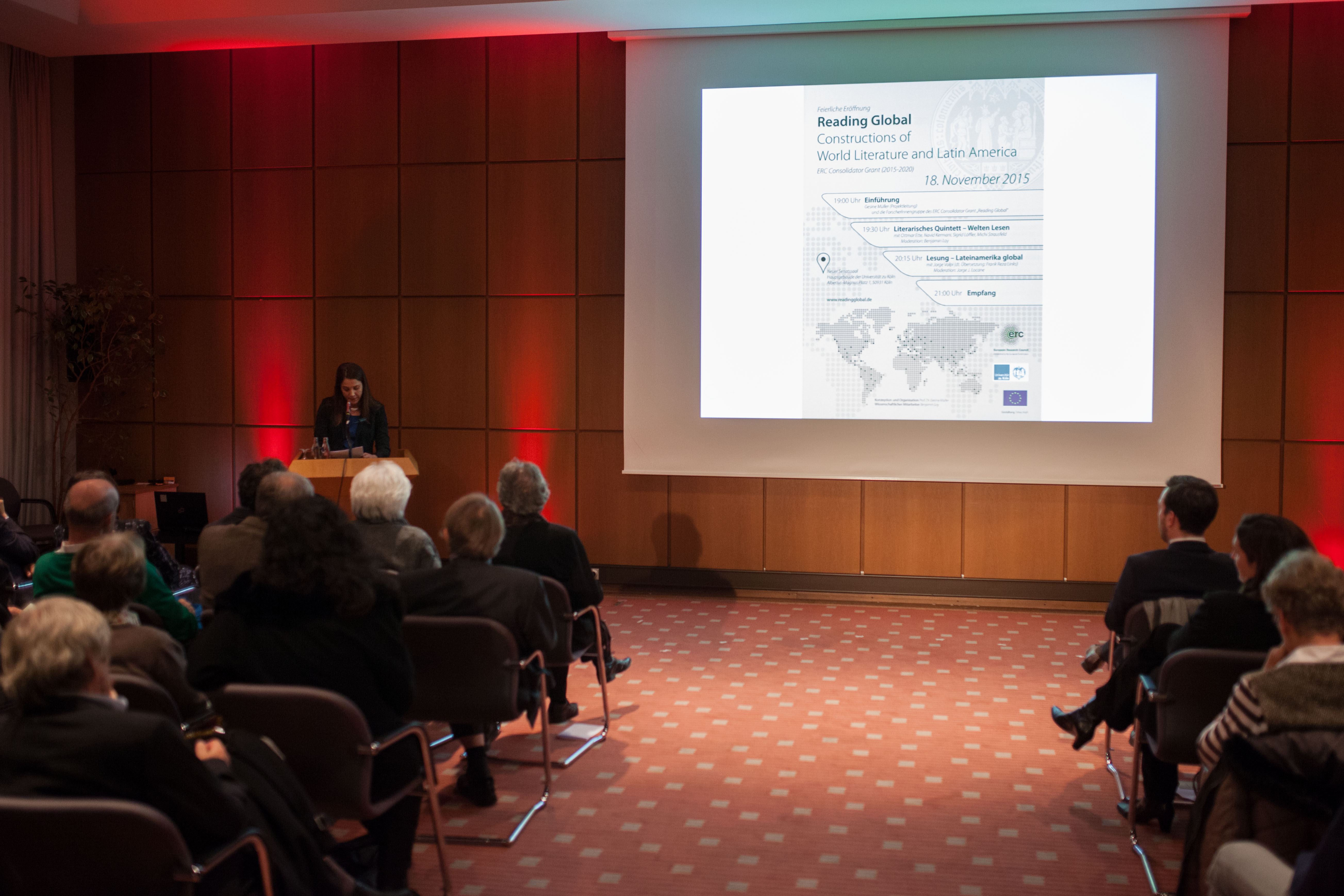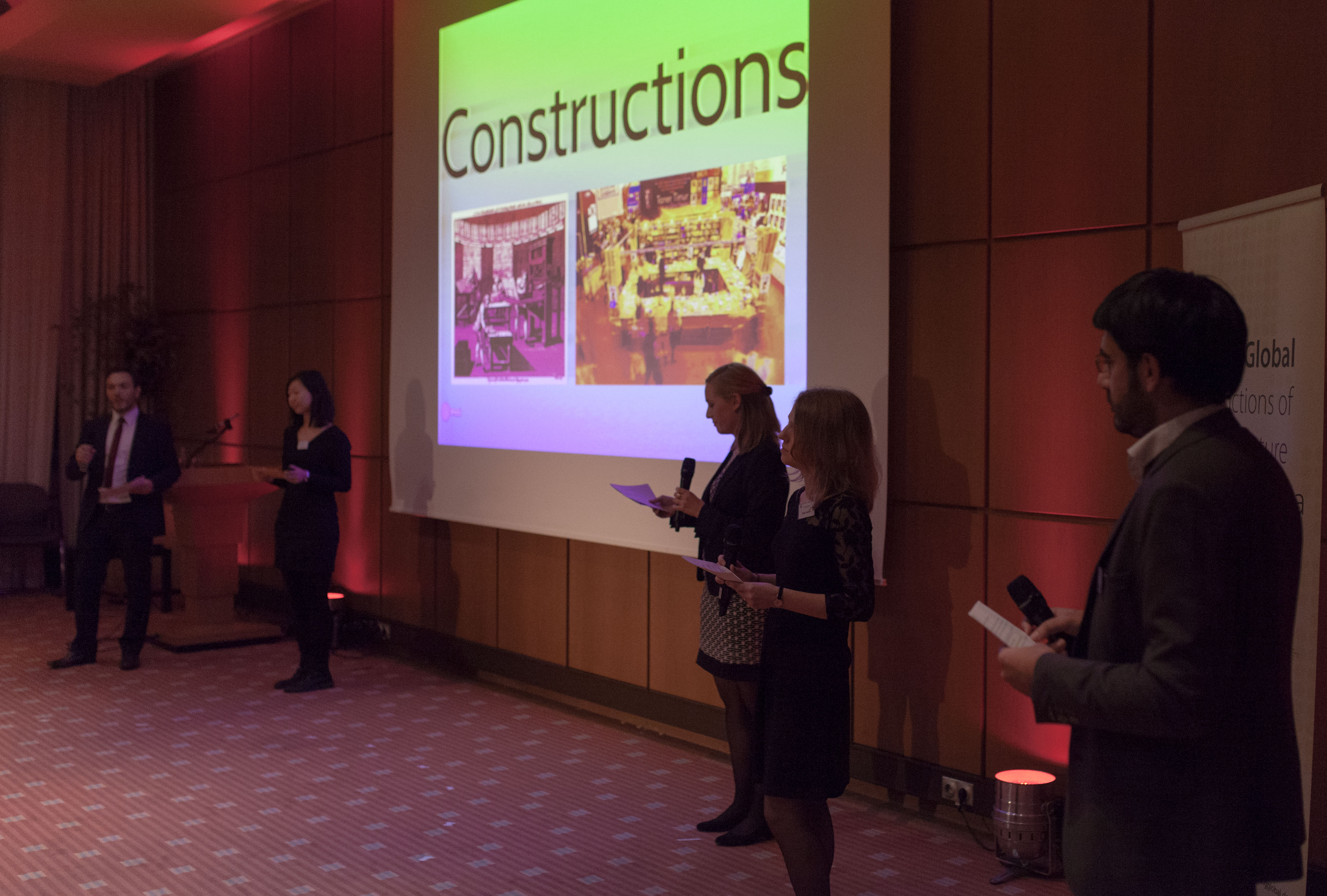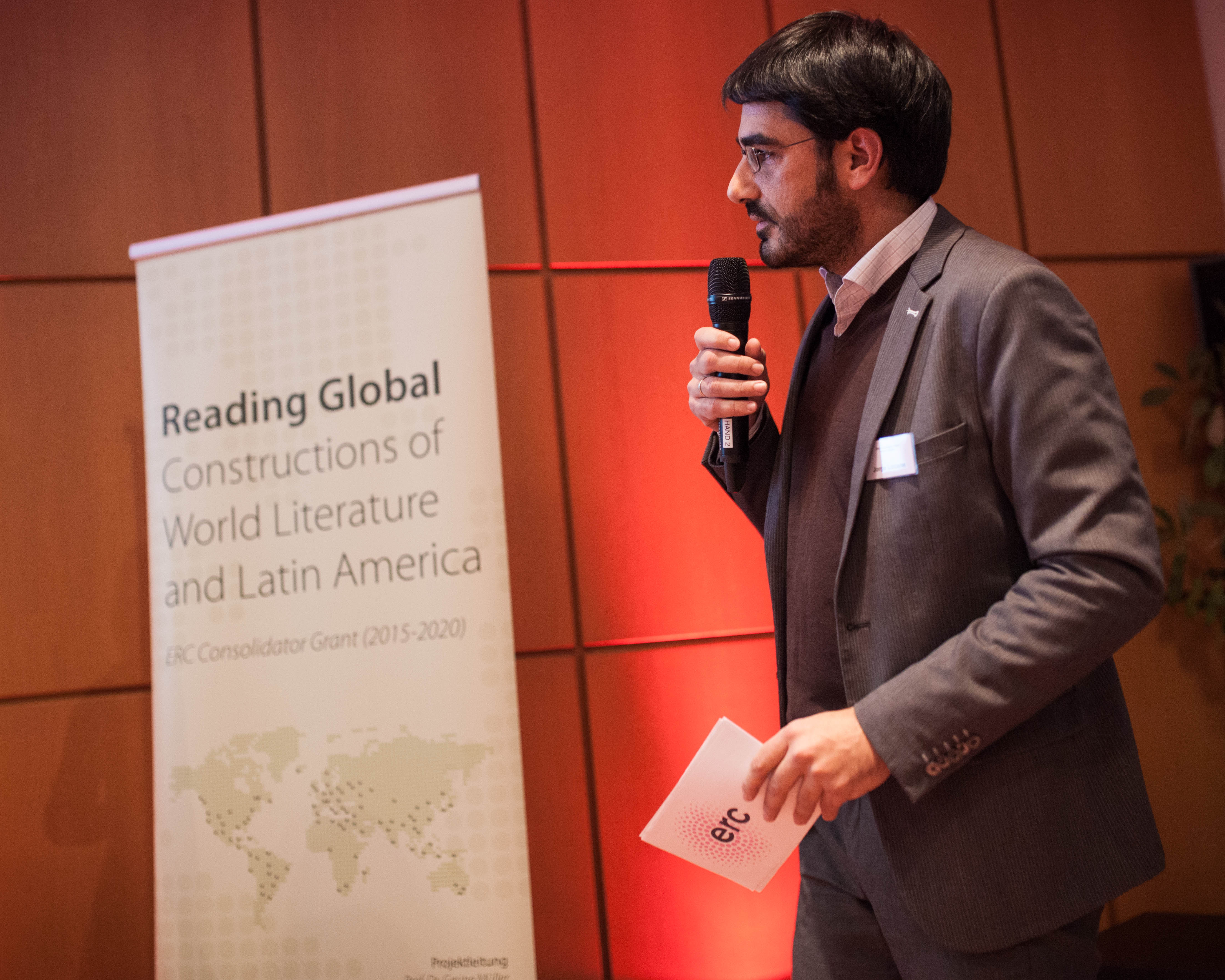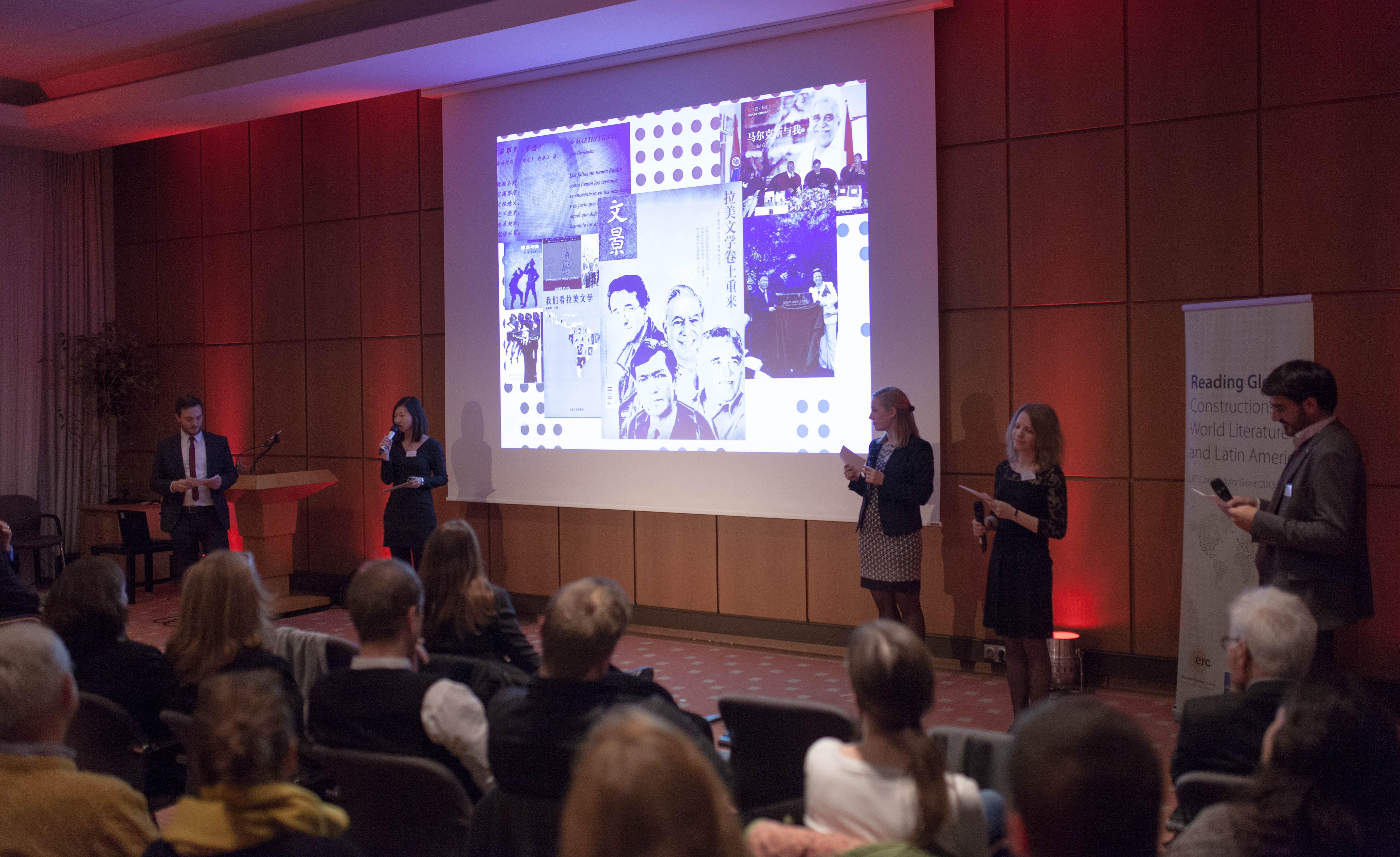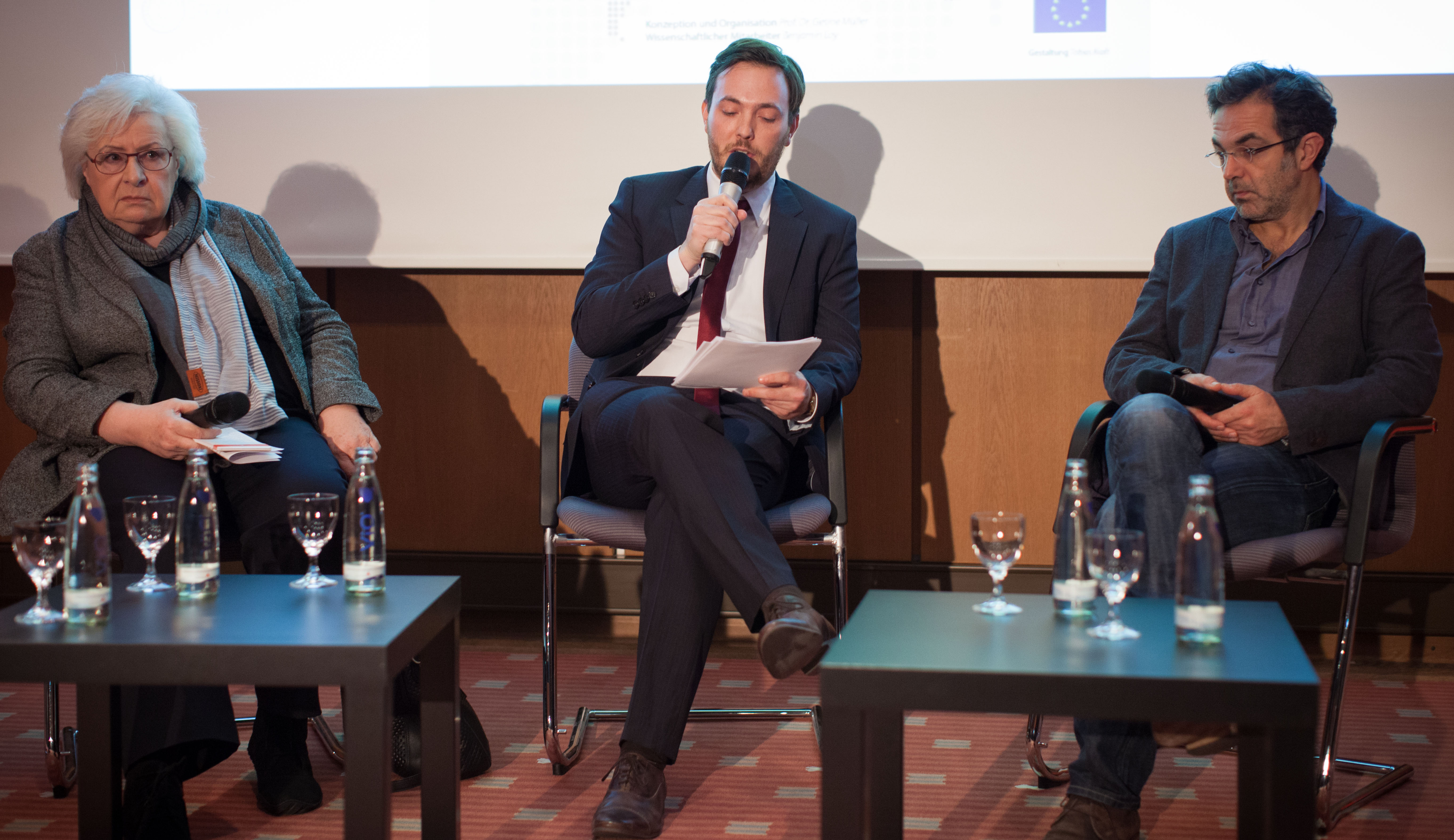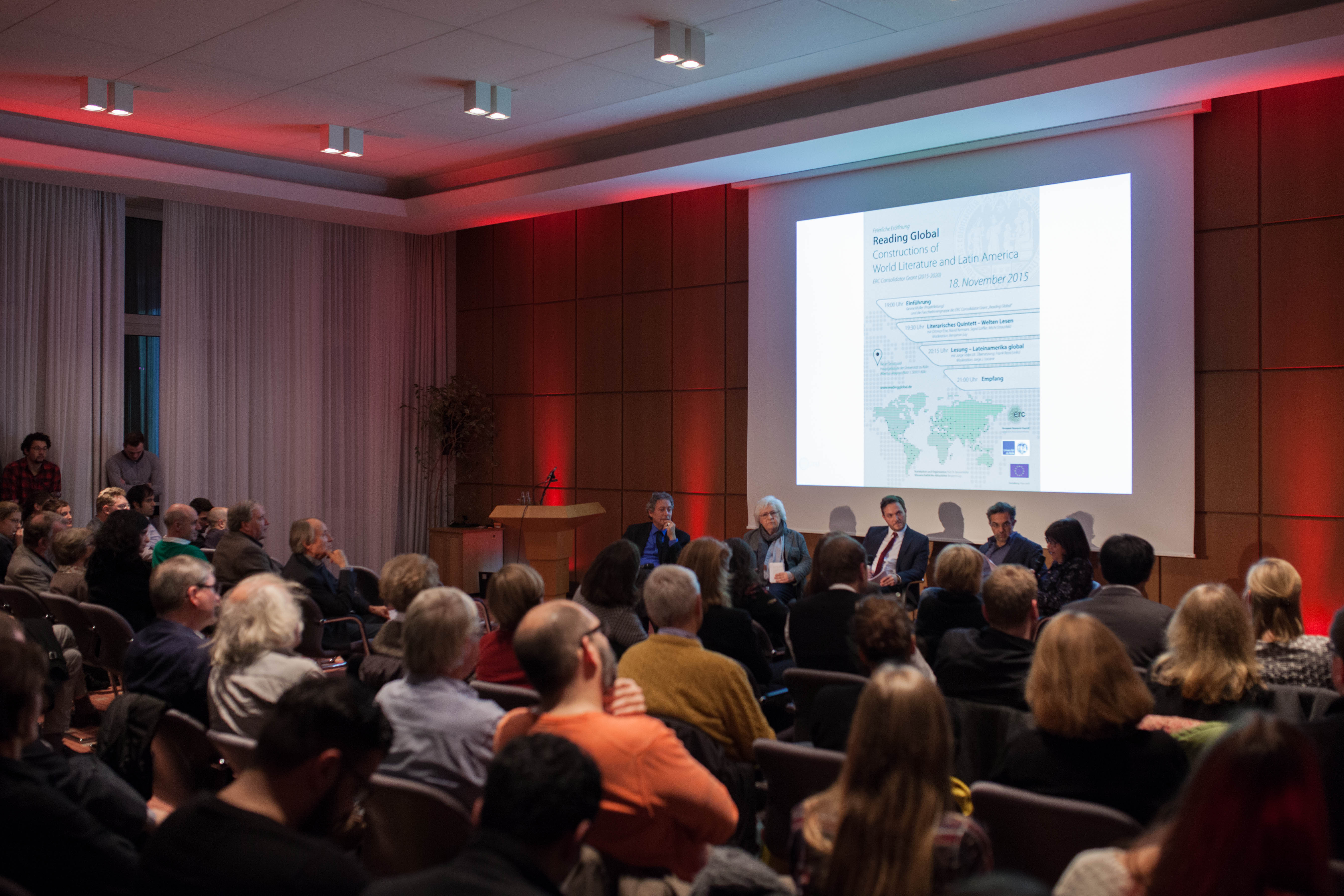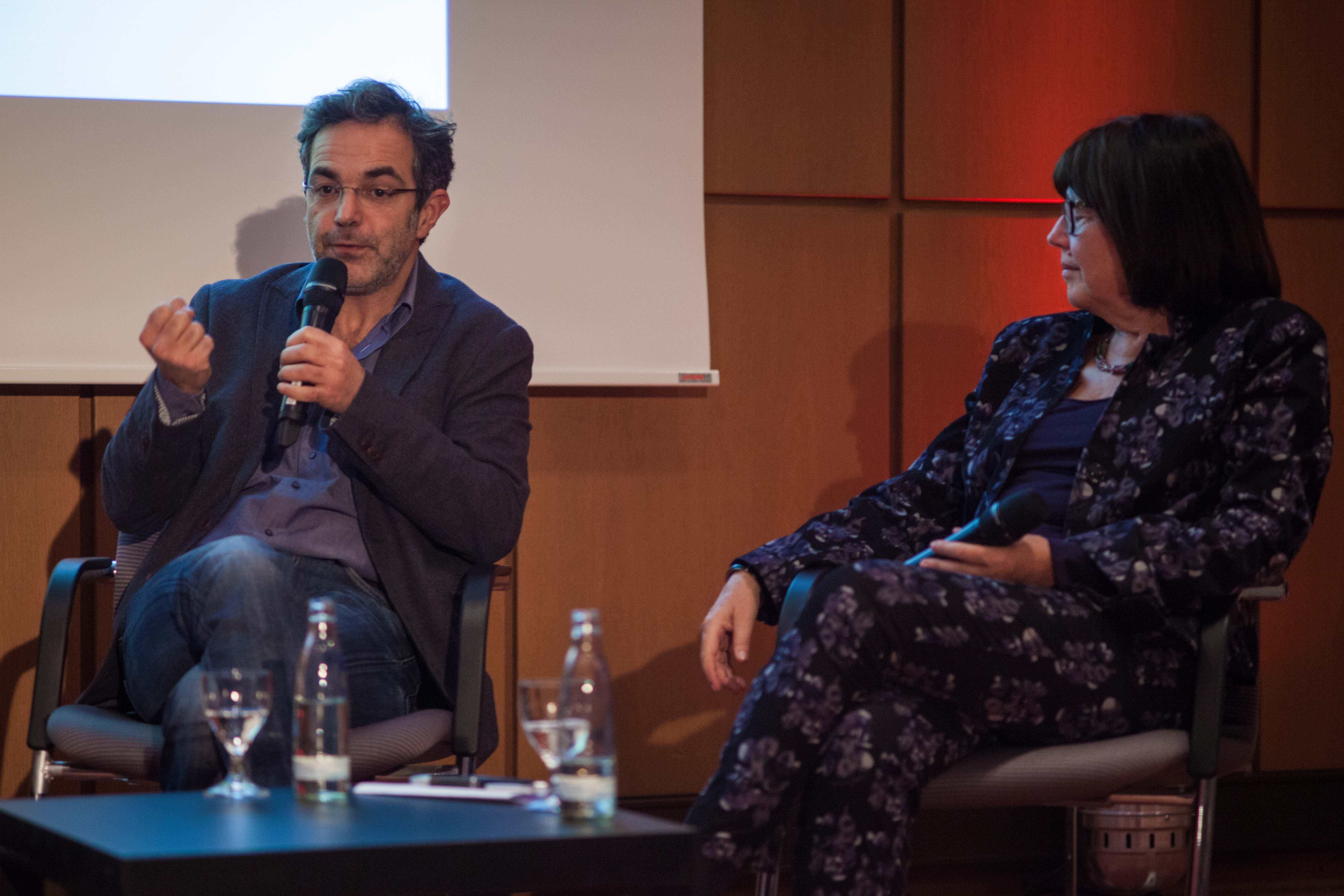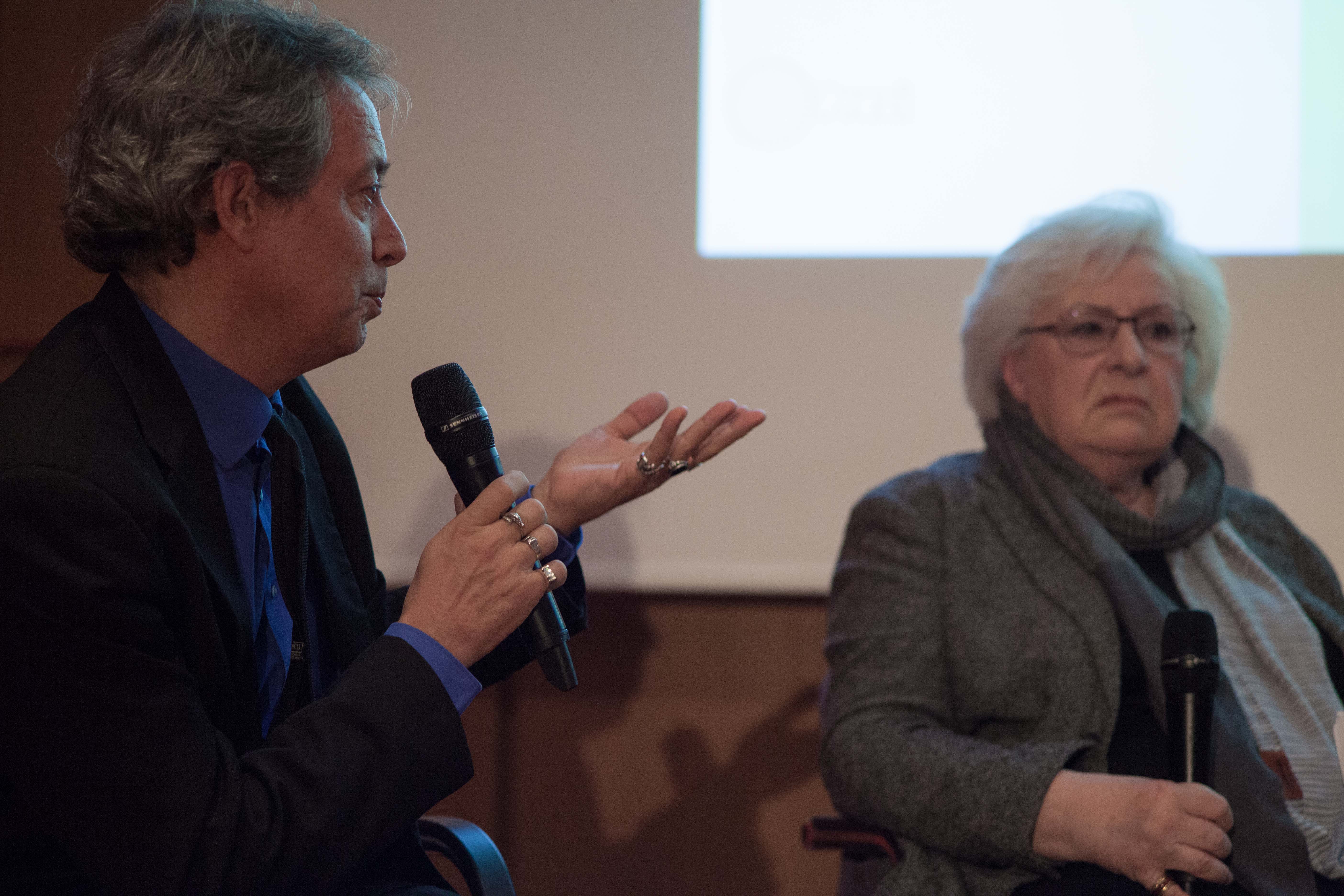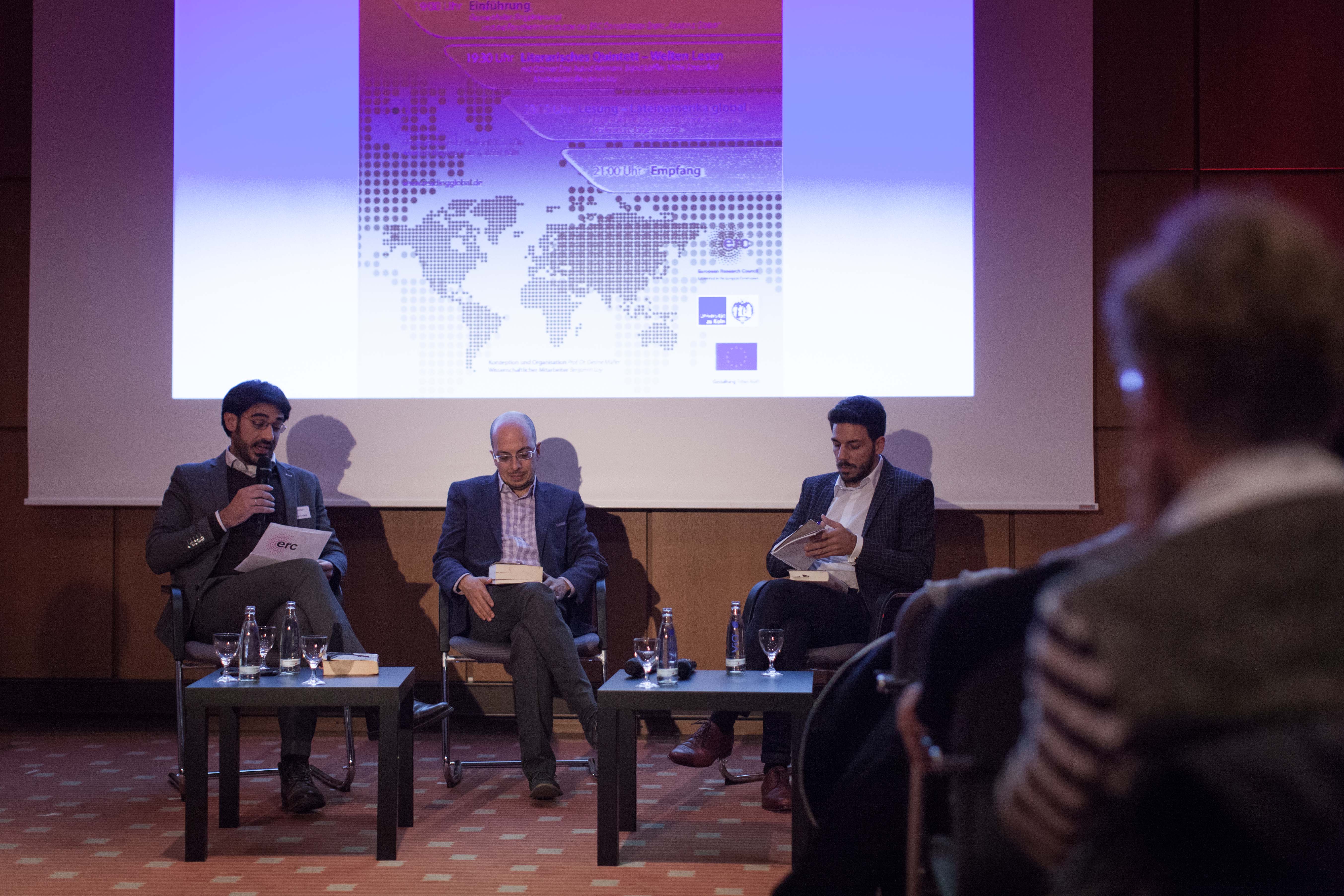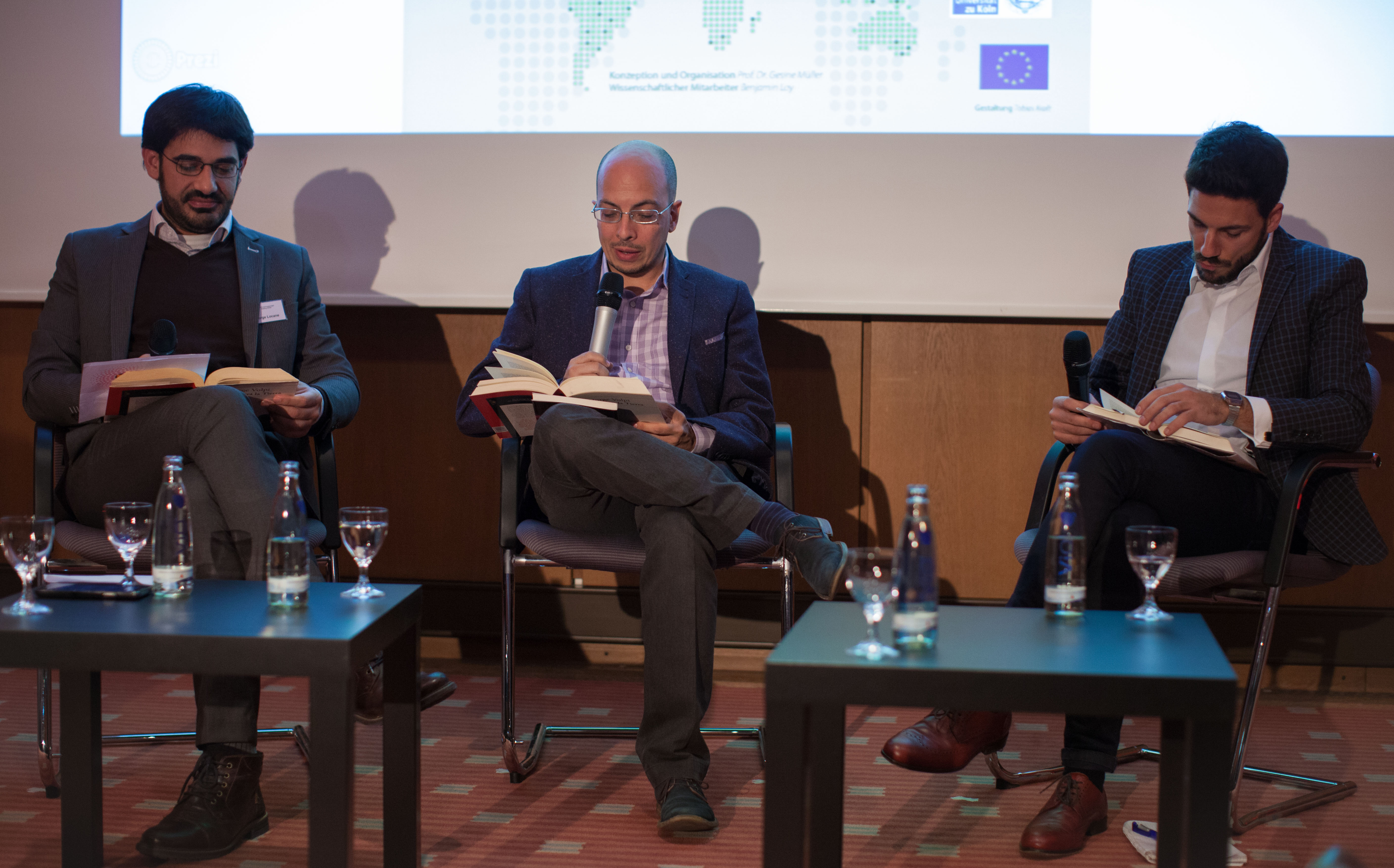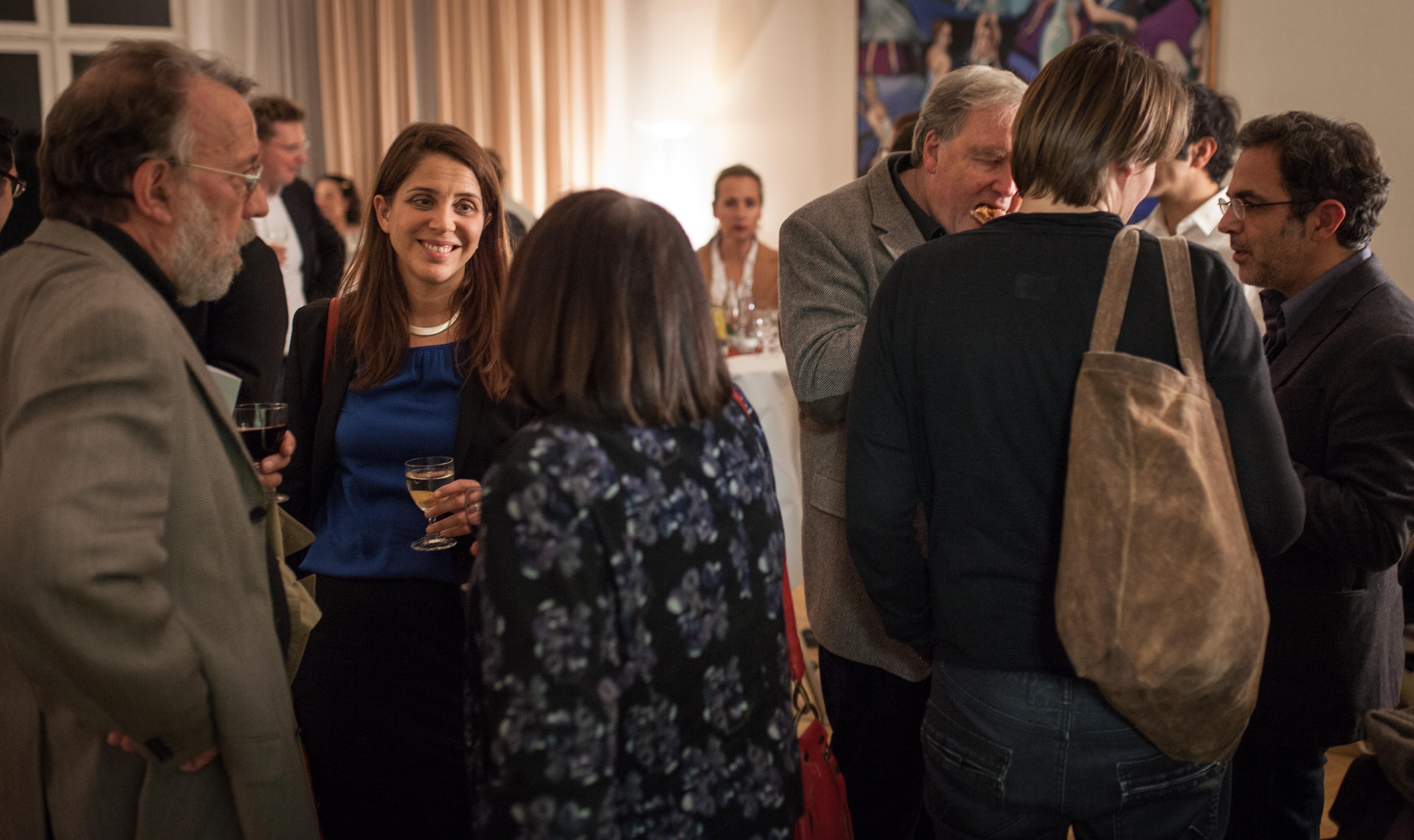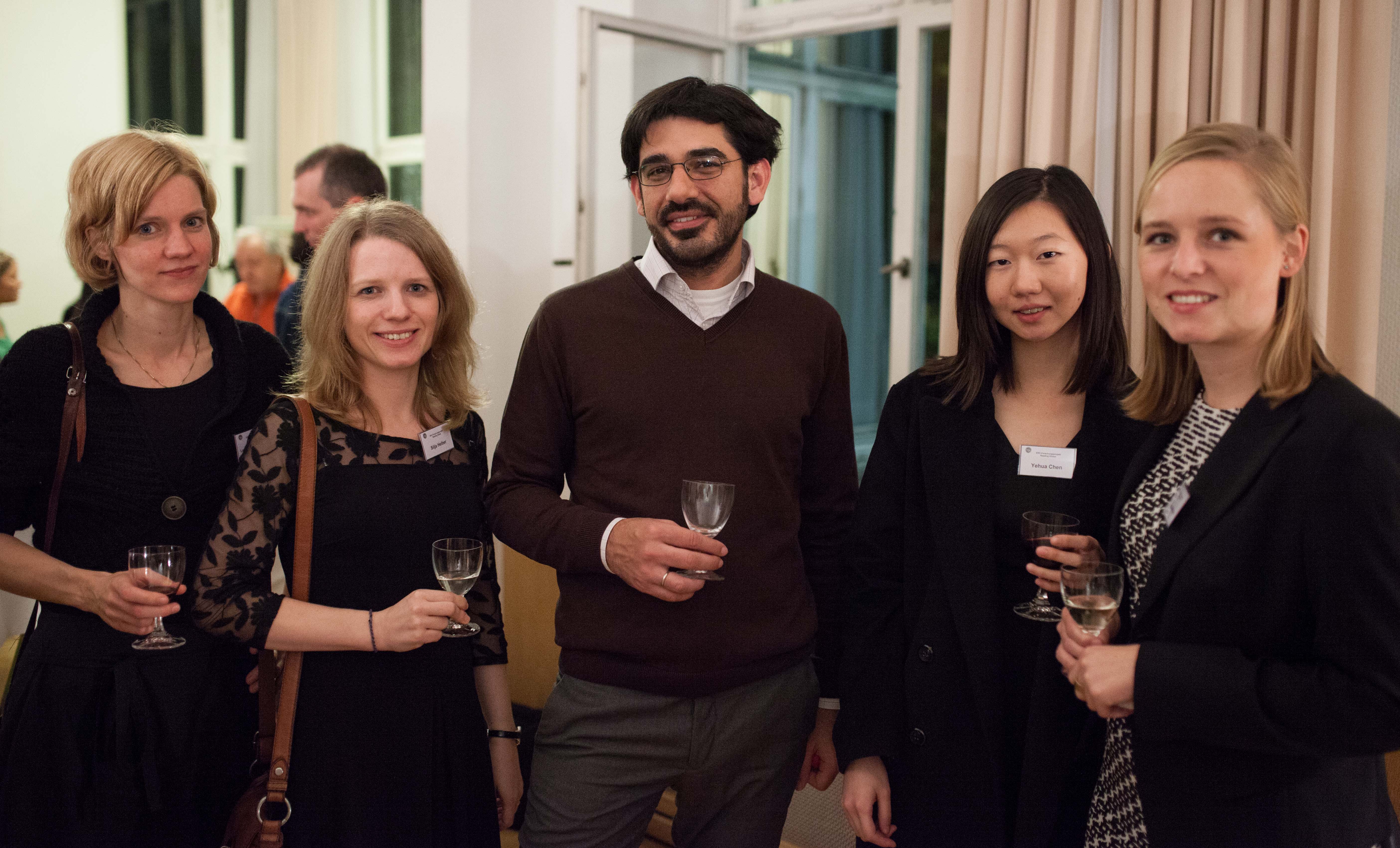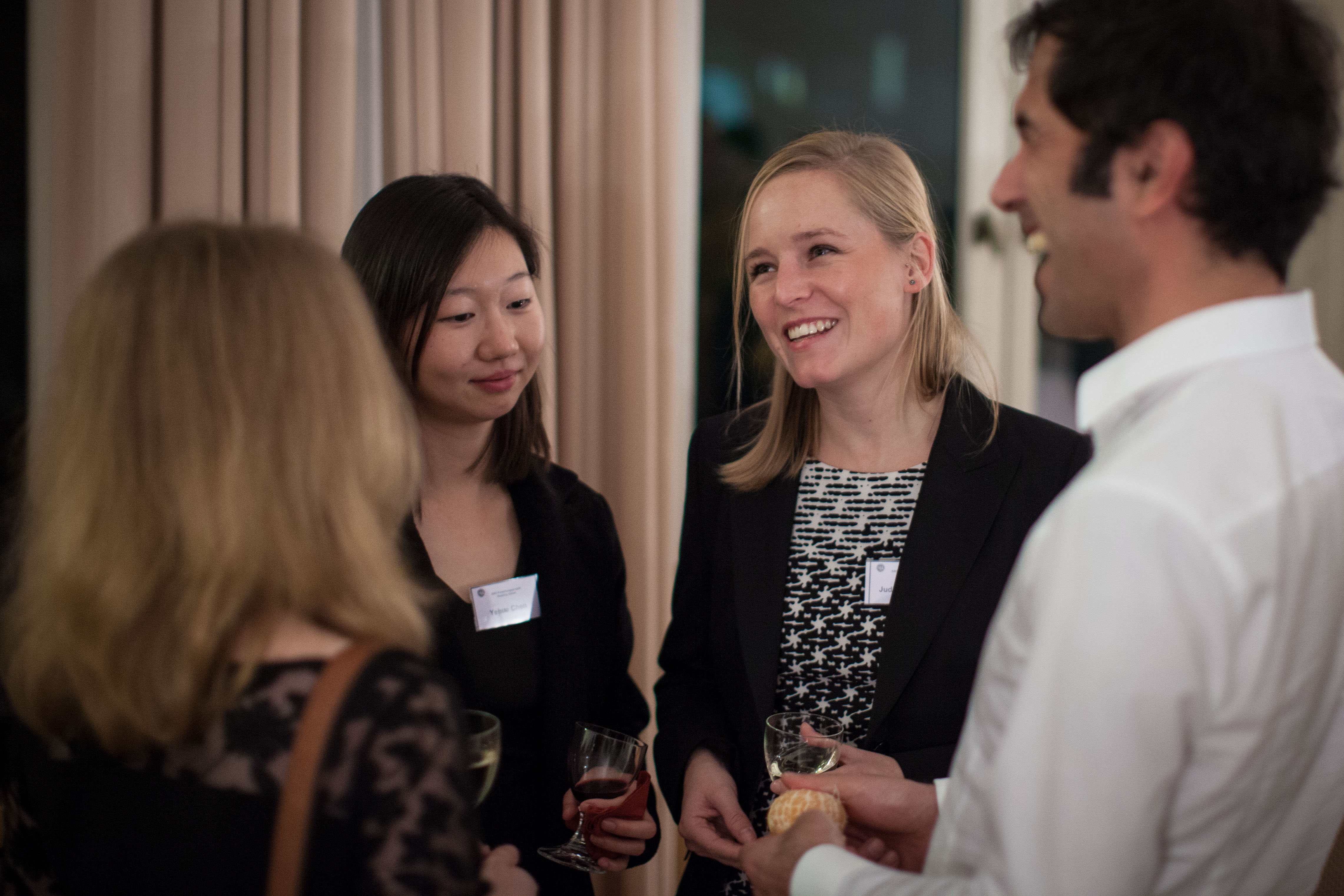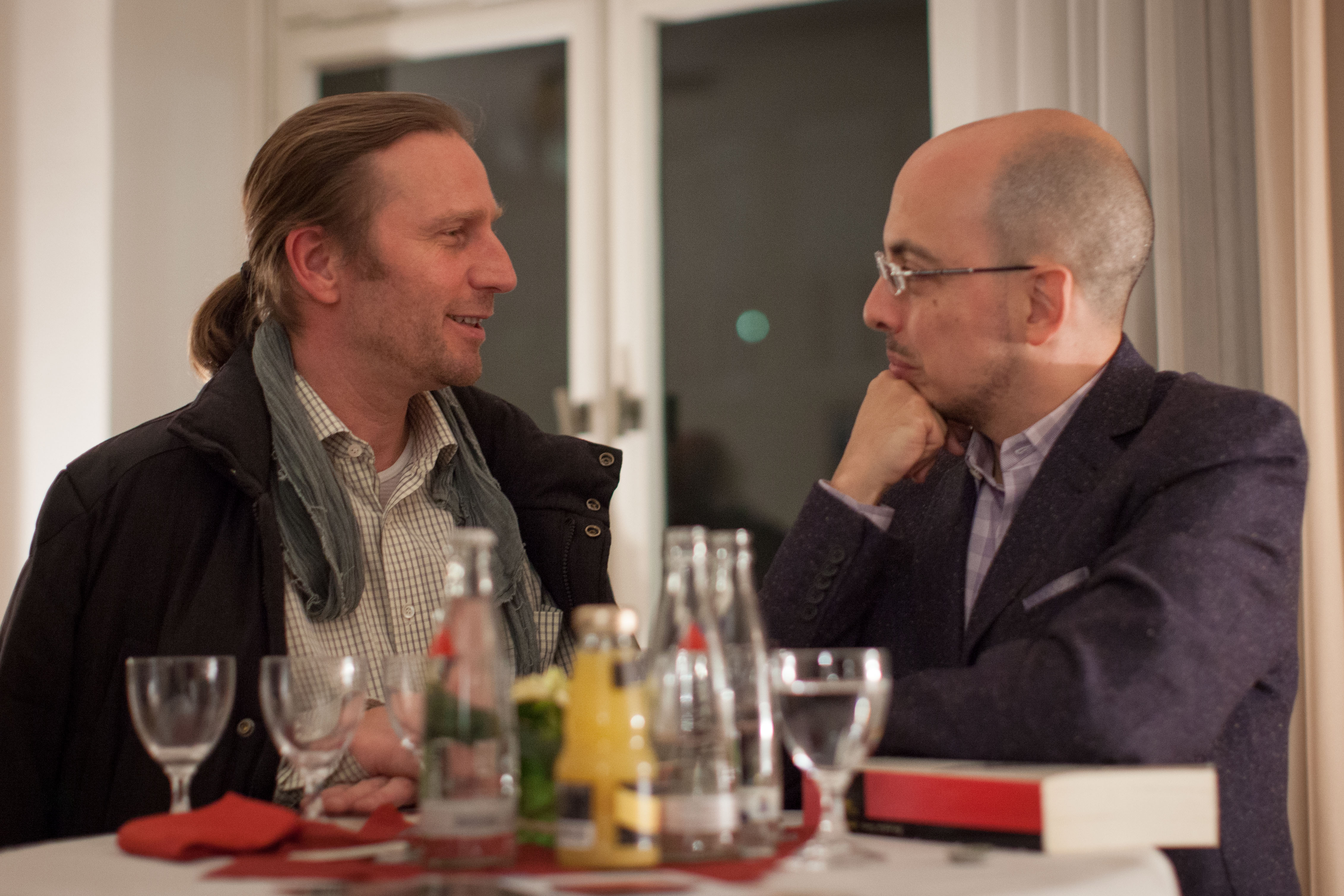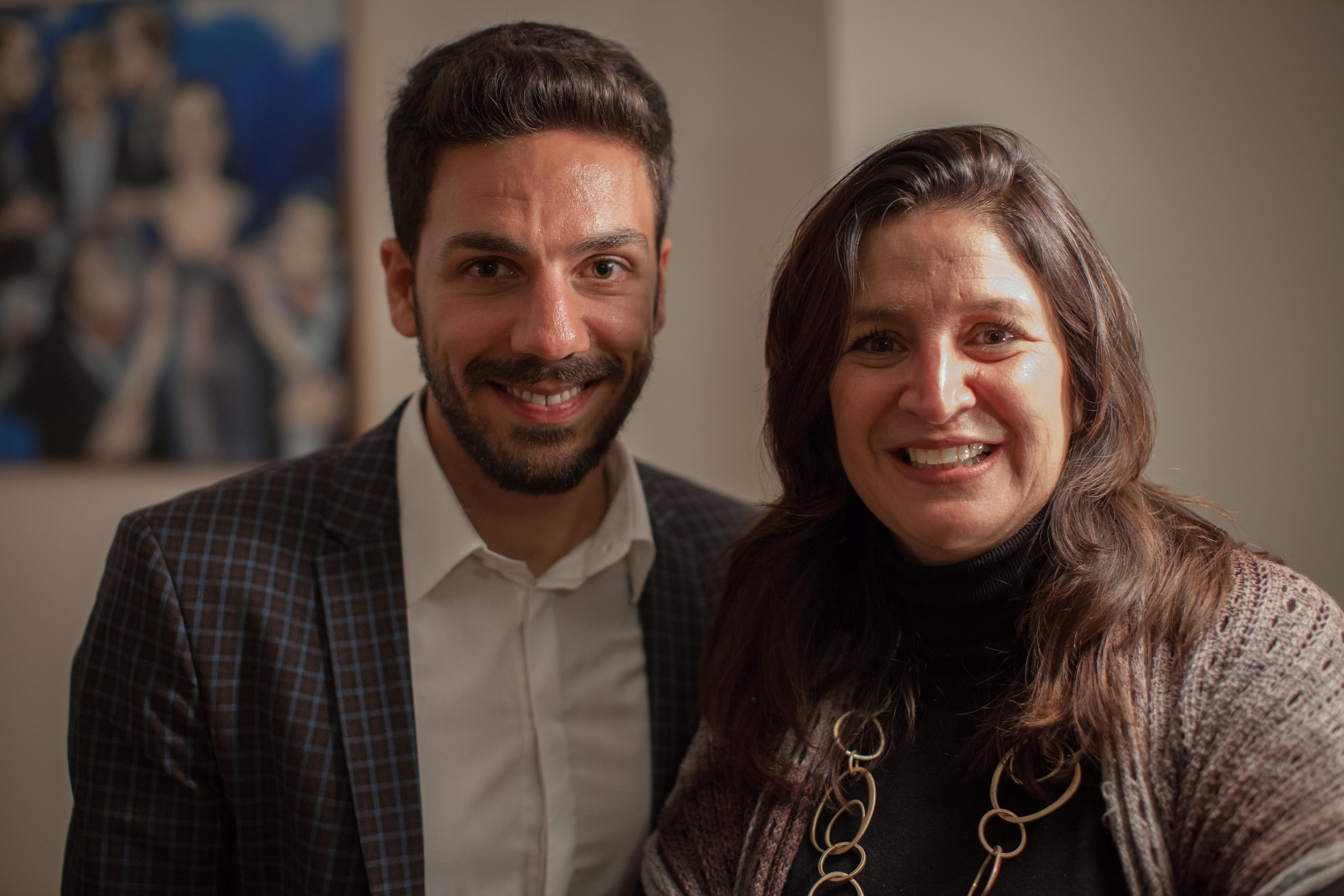Events/Eventos/Veranstaltungen
June 29 & 30, 2021
Post-Global Aesthetics:
21st Century Latin American Literatures and Cultures
Download Poster & Program
Phenomena such as the Covid-19 pandemic, climate change, and the global surge of political populism have demonstrated that, after thirty years of shaping the world, the current phase of accelerated globalization is over. New categories and concepts are needed in order to respond to this exhaustion of the global project while devising alternative models and ideas of globality. The conference aims to scrutinize these responses in the aesthetic realm and under a «post-global» banner. «Post-globality» denotes a critical response framework that helps us understand the problematic economic, ecological, social, and technological dimensions of this current phase of globalization while seeking out new forms of world creation in twenty-first century literature.
In this process, it is deeply important to incorporate alternative, non-Western epistemologies and literatures of the post-colonial Global South. The example of Latin America serves as an observational microcosm of the ambivalences posed by the globalized experience of the world over the past decade.
ORGANIZATION AND CONCEPT
Gesine Müller (Cologne)
Benjamin Loy (Vienna)
Conference program
The conference will be held as a virtual conference on Zoom
All times are UTC+1-times
Tuesday, June 29
15.00 – 15.15 Uhr Introduction (Gesine Müller & Benjamin Loy)
Post-Global Trends (and Latin American Perspectives)
15.15 – 15.35 Mariano Siskind (Harvard University): “Inhospitalidad: crisis y dislocaciones de eso que ya no es mundo”
15.35 – 15.55 Luis Prádanos-Garcia (Miami University): “Retos estéticos del postdesarrollo”
15.55 – 16.15 Gesine Müller (University of Cologne): “El desafío post-global en el debate sobre la literatura mundial: perspectivas latinoamericanas”
16.15 – 16.45 Discussion
16.45 – 17.00 Break
Between Alienation and New Communities: Digitally Created and Exhausted Worlds
17.00 – 17.20 Carolina Gainza (Universidad Diego Portales/Santiago de Chile): “Pensar la condición digital desde la literatura digital latinoamericana. Apropiaciones, decolonización y cosmotécnicas”
17.20 – 17.40 Carolina Ferrer (Université du Québec à Montréal): “Convergencias y divergencias de la globalización y las humanidades digitales: constitución, circulación y desaparición de tendencias conceptuales”
17.40 – 18.00 Benjamin Loy (University of Vienna): “La conectividad total(itaria): tecnología, comunicación y arte digitales en Kentukis de Samanta Schweblin”
18.00 – 18.30 Discussion
18.30 – 19.15 Break
Exhausted Resources: Anthropocene Narratives and Geo-Poetics I
19.15 – 19.35 Alexis Radisoglou (Durham University): “Postglobality and/as Ethnoplanetarity: On a Contemporary Cultural Constellation”
19.35 – 19.55 Samir Sellami (Hamburg Institute for Social Research): “The Poetics of Respiration”
19.55 – 20.15 Discussion
20.15 – 20.30 Break
20.30 – 20.50 Liliana Gomez (University of Zurich): “Leakages, Exhaustions, Extractivisms: Liquid Ecologies as Alternate Aesthetic Responses from the Global South”
20.50 – 21.10 Héctor Hoyos (Stanford University): “Reading García Márquez Against Globalism”
21.10 – 21.30 Discussion
21.30 – 21.45 Break
21.45 – 22.45 Keynote: Ursula K. Heise (University of California, Los Angeles): “Environmental Justice and Urban Narrative in Latin America”
Wednesday, June 30
Exhausted Resources: Anthropocene Narratives and Geo-Poetics II
15.00 – 15.20 Jobst Welge (University of Leipzig): “Post-Natural Histories and Created Worlds in Pola Oloixarac's Las Constelaciones Oscuras and Carlos Fonseca's Museo Animal”
15.20 – 15.40 Jenny Haase (University of Halle-Wittenberg): “‘Mi voz contra la tierra ahogada.’ Entrelazamientos corporales, ecológicos y económicos en la poesía de Rosabetty Muñoz”
15.40 – 16.00 Nicolás Campisi (Brown University): “Documentary Mines: Archives of Ecohorror in the Anthropocene”
16.00 – 16.30 Discussion
16.30 – 16.45 Break
Contaminated Worlds: Epidemic and Dystopic Fictions.
16.45 – 17.05 Lina Meruane (New York University): “La vivibilidad pandémica: el aislamiento como modelo comunitario actual”
17.05 – 17.25 Romina Wainberg (Stanford University): "Writing about Writing Amidst the End of Worlds: An Invitation"
17.25 – 17.45 Jan Knobloch (University of Cologne): “Globalization reversed: Pedro Mairal’s El año del desierto”
17.45 – 18.15 Discussion
18.15 – 19.00 Break
Creating and Exhausting Home: New Narratives of Migration and Displacement
19.00 – 19.20 Ignacio Sánchez Prado (Washington University, St. Louis): “La condición binacional en la era post-global. Kinopolíticas en el eje México-Estados Unidos”
19.20 – 19.40 Ignacio Azcueta (Harvard University): “Cartografías nostálgicas. Espacio y afecto en Formas de volver a casa (2011) y Poeta Chileno (2020) de Alejandro Zambra”
19.40 – 20.00 Gustavo Guerrero (Université Paris-Seine): "Perder el mundo: la poesia venezolana ante la experiencia de la migracion"
20.00 – 20.30 Discussion
20.30 – 21.00 Break
21.00 – 21.20 Alexander Beecroft (University of South Carolina): “The Global Novel in Post-Global Times”
21.20 – 22.00 Discussion
Kölner Gespräche zur Weltliteratur 2019
Kölner Gespräche zur Weltliteratur 2019
13. November 2019
Ort: Neuer Senatssaal der Universität zu Köln (Hauptgebäude, Albertus-Magnus-Platz)
Plakat und Programm zum Download
19:00 Uhr - Einführung
Einführung durch Prof. Dr. Gesine Müller (Projektleitung)
19:15 Uhr Literarisches Sextett– (Welt-)Literatur heute
mit Silvia Fehrmann (DAAD-Künstlerprogramm), Ursula März (DIE ZEIT), Markus Messling (Universität des Saarlandes), Sasha Marianna Salzmann (Autorin) und Denis Scheck (Druckfrisch), Moderation: Benjamin Loy
20:15 Uhr Lesung– Lateinamerika global
mit Alan Pauls (Buenos Aires); Moderation und deutsche Übersetzung: Friederike von Criegern
21:15 Uhr Empfang
Impressionen
World Editors
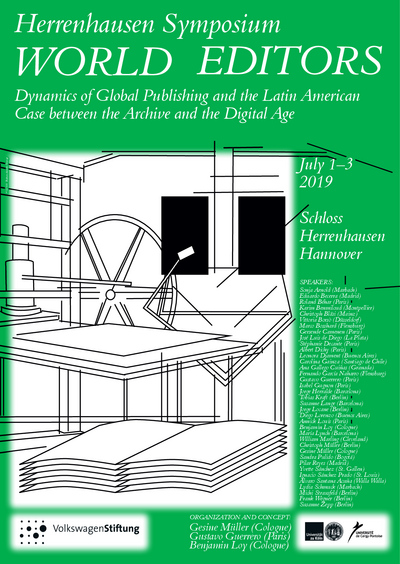
Herrenhausen Symposium
World Editors. Dynamics of Global Publishing and the Latin American Case between the Archive and the Digital Age
July 1-3, 2019 - Schloss Herrenhausen, Hannover
funded by VolkswagenStiftung
Organization and Concept:
Gesine Müller (Cologne)
Gustavo Guerrero (Paris)
Benjamin Loy (Cologne)
The debate around the concept of World Literature has reemerged in tandem with a period of globalization that began in the 1980s, and for the past two decades it has been in a highly charged, critical, and intense phase which has not yet come to an end. However, a significant part of scholarship in the field has lacked to attend the question of how World Literature actually is “made”, i.e. to analyze the complex interaction of the multiple material, economic, and literary factors at stake in global processes of circulation of books.
From a perspective informed by materialism, sociology and historiography the conference considers literature or, to be more precise, books as products that have to undergo a series of processes enabling a text to cross borders (or not) and to be transformed into globally circulating commodities, combining the complex operations of selection and the aggregation of different kinds of value.
To overcome the widespread disciplinary and methodological narrowness of World Literature studies, the conference will gather around 40 scholars from different disciplines ranging from Literary Studies to Book History and Digital Humanities to analyze the complex networks and actors that influence in processes of global circulation of literature: gatekeepers as publishers, literary agents, book fairs, festivals and prices, but also politics of translation and the role of literary and editorial archives and new media and digitalization will be attended with regard to Latin America as a case study and in dialogue with several representatives of the global book market.
Program
Monday, July 1
13:30 Welcome and Introduction (Gesine Müller, Gustavo Guerrero, Benjamin Loy)
World Editors and Latin America
14:00 – 14:45 Opening Speech by Jorge Herralde (Editorial Anagrama, Barcelona): "La edición literaria: una
internacional de colegas cómplices"
14:45 – 15:15 Gustavo Guerrero (Paris): “El lugar de la literatura latinoamericana en los primeros mapas del siglo XXI”
15:15 – 15:45 José Luis de Diego (La Plata): “Americanismo y latinoamericanismo: dos momentos en la constitución de un espacio editorial para nuestro continente”
15:45 – 16:15 Break
16:15 – 16:45 Gesine Müller (Cologne):
“Dynamics of Global Publishing: Caribbean Literatures”
16:45 – 17:15 Eduardo Becerra (Madrid):
“La nueva edición independiente en América Latina y la resistencia de los marcos nacionales”
17:15 – 17:45 Alvaro Santana-Acuña (Walla Walla):
“Literatura latinoamericana: Historical Semantics of an Aesthetic Label”
18:00 Dinner
20:00 – 21:30 Roundtable World Editors:
Leonora Djament (Eterna Cadencia/Buenos Aires)
Isabelle Gugnon (Translator/Paris)
Pilar Reyes (Alfaguara/Madrid)
Frank Wegner (Suhrkamp/Berlin)
Michi Strausfeld (S. Fischer/Frankfurt)
Moderator: Gustavo Guerrero
Tuesday, July 2
Gatekeepers
09:30 – 10:00 William Marling (Cleveland): “Gabriel García Márquez and Carmen Balcells”
10:00 – 10:30 Lydia Schmuck (Marbach): “La Croix du sud y el programa Lateinamerika: Reconstrucción de las redes editoriales entre Gallimard y Suhrkamp”
10:30 – 11:00 Break
11:00 – 11:30 Ana Gallego Cuiñas (Granada): “Los talleres literarios o la profesionalización de la escritura en el siglo XXI: el caso argentino”
11:30 – 12:00 Marco Bosshard (Flensburg):
"Las ferias del libro de Frankfurt y Guadalajara y la promoción de las literaturas extranjeras: una mirada general
con algunas observaciones con respecto a las literaturas latinoamericanas"
12:00 – 12:30 Fernando García Naharro (Flensburg):
“Agentes, el triunfo del intermediario: agentes literarios de España en la Feria del Libro de Frankfurt”
12:30 – 14:30 Lunch
Literature in the Digital Age
14:30 – 15:00 Vittoria Borsò (Düsseldorf): “Challenging Word Literature: how Social Media transform the material space of books”
15:00 – 15:30 Yvette Sánchez (St. Gallen):
“Boom (¿o burbuja?) de los microformatos literarios digitalizados”
15:30 – 16:00 Carolina Gainza (Santiago de Chile):
“Cartografía de la literatura digital Latinoamericana: nuevos escenarios para la literatura en la era digital”
16:00 – 16:30 Break
16:30 – 17:00 Christoph Bläsi (Mainz): “Automation approaches to licensing as a reason to talk about strategic management and artificial intelligence in the book industry”
17:00 – 17:30 Christoph Müller (Berlin):
“Between digital transformation in libraries and digital humanities: new perspectives of librarianship”
17:30 – 18:00 Tobias Kraft (Berlin):
“Reading in the Digital Age. A contribution from the field of (hybrid) scholarly editing”
18:00 Dinner
20:00 – 21:30 Roundtable Bookmarket:
Susanne Lange (Translator, Barcelona/Munich)
Diego Lorenzo (Programa SUR, Buenos Aires)
María Lynch (Casanovas & Lynch Agency, Barcelona)
Sandra Pulido (Head of Bogotá Book Fair, Bogotá)
Moderator: Benjamin Loy
Wednesday, July 3
Politics of Translation and Literary Archives
09:00 – 09:30 Albert Dichy (Paris): "The IMEC and the archives of French publishers"
09:30 – 10:00 Sonja Arnold (Marbach): “Translation, Exile and World Literature: The ‘Livraria do Globo’ in Brazil”
10:00 – 10:30 Jorge Locane (Berlin):
“Literatura comunista mundial. Jorge Amado en China y la RDA”
10:30 – 11:00 Annick Louis (Paris):
“La construcción de un gatekeeper: el caso de Roger Caillois (1940-1951)”
11:00 – 11:30 Break
11:30 – 12:00 Roland Béhar (Paris): “¿‘Gongoresk’? Borges, su primera recepción alemana y la tentación de una lectura barroca”
12:00 – 12:30 Karim Benmiloud (Montpellier):
“El arriero en Paris: ediciones y traducciones de Juan Rulfo en Francia”
12:30 – 13:00 Gersende Camenen (Paris):
“¿Pop, vanguardistas, globales ? Las novelas de Manuel Puig en Seuil (1969-2012)”
13:00 – 14:30 Lunch
14:30 – 15:00 Stéphanie Decante (Paris): “Concentración y diversificación editorial: efectos locales e internacionales. El caso chileno (1988-2018)”
15:00 – 15:30 Benjamin Loy (Cologne):
“‘Dear huevón’: (de)construcciones de autoría en los epistolarios y archivos de Roberto Bolaño”
15:30 – 16:00 Susanne Zepp (Berlin):
“Hebrew Literatures in Spanish and Portuguese: Transformations and Transferences”
16:00 – 16:30 Break
16:30 – 17:00 Ignacio Sánchez Prado (St. Louis): “El efecto Luiselli: política y manufactura de la nueva literatura mexicana en inglés”
17:00 – 18:00 Final discussion
19:00 Conference Dinner
Impressions
Kölner Gespräche zur Weltliteratur 2018
14. November 2018
Ort: Neuer Senatssaal der Universität zu Köln (Hauptgebäude, Albertus-Magnus-Platz)
Plakat und Programm zum Download
19:00 Uhr - Einführung
Einführung durch Prof. Dr. Gesine Müller (Projektleitung)
19:15 Uhr Literarisches Sextett– (Welt-)Literatur heute
mit Florian Borchmeyer (Schaubühne Berlin), Andreas Breitenstein (Neue Zürcher Zeitung), Jo Lendle (Hanser Verlag), Sandra Richter (Deutsches Literaturarchiv Marbach), Andreas Rötzer (Matthes & Seitz) und Uljana Wolf (Autorin); Moderation: Benjamin Loy
20:15 Uhr Lesung– Lateinamerika global
mit Antonio Ortuño (Guadalajara); Moderation und deutsche Übersetzung: Friederike von Criegern
21:15 Uhr Empfang
Kölner Gespräche zur Weltliteratur 2018
Kölner Gespräche zur Weltliteratur 2018
Exploratory Seminar - January 24/25 2018
World Literature, Cosmopolitanism, Globality: Beyond, Against, Post, Otherwise
Organization and Concept:
Gesine Müller (Universität zu Köln)
Mariano Siskind (Harvard University)
A cooperation of:
- “Reading Global. Constructions of World Literature and Latin America” (Consolidator Grant of the European Research Council (ERC))
- Department of Romance Languages and Literatures, Harvard University
Since the 1990s, the concept of World Literature has been transformed by the emergence of discourses on cultural and economic globalization, and has come to occupy a central place in literary criticism. Just as Goethe wrote at the beginning of the 19th century, "national literature is now a rather unmeaning term,” in the 90s the usual frameworks—whether national or continental in nature—were dislocated, opening a path for the euphoric affirmation of the universalism of literature and the relevancy of focusing on all textual and written phenomena that are etched within processes of global circulation. These phenomena are marked by the production of transnational identities, linguistic intersections, and other cosmopolitan cultural configurations. World Literature coincided perfectly with a discourse and set of practices which were in operation at both political and economic levels. They favored all kinds of flows and mobilizations, and seemingly tended to reduce the importance of categories related to fixedness, limits, and non-cosmopolitan identities.
Nevertheless, from today’s vantage point it can be said that this confidence in the abilities of globalism and mobility to illuminate cultural signification processes within, without, and inside of the interstices of the nation had a blind spot for phenomena that in one way or another went beyond the discourses, aesthetics, and political positions of liberal cosmopolitanism and neoliberal globalization. In the face of these processes, it becomes necessary to interrogate once again the concept of World Literature in order to assess it and rework it, re-theorize it and adjust it in order to open it up to the tragic present state of the world. The objective of our coming together is precisely to explore possible adjustments, critiques, reconceptualizations, or refutations of World Literature—above, beyond, underneath, in opposition to, or after globalization.
Wednesday, 24 January
Place: University of Cologne, Hauptgebäude, Neuer Senatssaal
09:30 – 09:45 Welcome: Professor Monika Schausten (Dean of the Faculty of Arts and Humanities)
09:45 – 10:00 Gesine Müller, Mariano Siskind: Introduction
Materialist worlds
10:00 – 10:30 Gesine Müller (Cologne): “Literatura mundial sin mundo? Propuestas para una perspectiva materialista”
10:30 – 11:00 Ignacio Sánchez Prado (St. Louis): “La ‘literatura mundial’ como campo y materialidad. Una polémica contra la dialéctica centro-periferia”
11:00 – 11:30 Coffee break
11:30 – 12:00 Jorge Locane (Cologne): “Literatura mundial/globalización liberal. Apuntes para una metacrítica materialista de los estudios Weltliterarios”
Broken down, dislocated, precarious worlds
12:00 – 12:30 Guillermina de Ferrari (University of Wisconsin-Madison): “The Distribution of Vulnerability”
12:30 – 14:30: Lunch break
14:30 – 15:00 Alexandra Ortiz Wallner (Berlin): “Ante los expulsados de la globalización: usos de la discontinuidad y la perspectiva para leer la literatura mundial”
15:00 – 15:30 Mariano Siskind (Harvard): “About the end of the world: mourning and nothing more“
15:30 – 16:00 Coffee break
Contesting world literary mediations: spatiality, temporality, relationality
16:00 – 16: 30 Benjamin Loy (Cologne): “The Global Alt-Write: exploraciones de la literatura mundial reaccionaria”
16:30 – 17:00 Héctor Hoyos (Stanford): “Is World Literature Always-Already Transcultural?”
17:00 – 17:30 Alejandra Laera (Buenos Aires): “Los tiempos después del tiempo: discontinuidad, superposición y mezcla para un cierto modo de habitar”
17:30 – 18:30 Roundtable/Closing discussion
19:30 – Conference dinner
Thursday, January 25
Place: University of Cologne, Hauptgebäude, Neuer Senatssaal
Reconfiguring Latin Americanist/Hispanist Worlds
09:30 – 10:00 Alejandra Uslenghi (Northwestern): “World Image: doing and undoing global visual imaginaries in Latin America”
10:00 – 10:30 Michelle Clayton (Brown): “Circuitos del latinoamericanismo”
10:30 – 11:00 Nora Catelli (Barcelona): “Imaginarios en la circulación de la teoría”
11:00 – 11:30 Coffee break
Nations in Crisis, Challenging the global
11:30 – 12:00 Gustavo Guerrero (Paris): “Más allá de la nación, más acá de la globalización: los estudios literarios buscando un lugar en el nuevo siglo”
12:00 – 12:30 Marta Puxan Oliva (Barcelona) “The Challenges of Global Environments to World Literary Cosmopolitanism”
12:30 – 13:00 César Domínguez (Santiago de Compostela): “Los mundos subalternos de la literatura mundial”
13:00 – 15:00 Lunch break
15:00 – 17:00 Roundtable/Closing discussion
19:00 Dinner
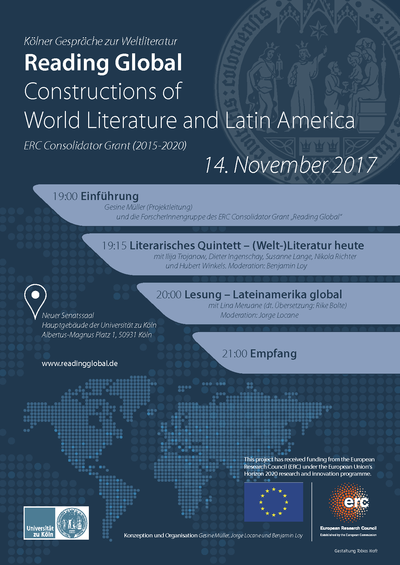
Kölner Gespräche zur Weltliteratur
14. November 2017
Ort: Neuer Senatssaal der Universität zu Köln (Hauptgebäude, Albertus-Magnus-Platz)
Plakat und Programm zum Download
19:00 Uhr - Einführung
Einführung durch Prof. Dr. Gesine Müller (Projektleitung) und die ForscherInnengruppe des ERC Consolidator Grants „Reading Global“
19:15 Uhr Literarisches Quintett – Literaturbetrieb global
mit Ilija Trojanow (Autor), Dieter Ingenschay (Humboldt-Universität zu Berlin), Susanne Lange (Übersetzerin), Nikola Richter (mikrotext) und Hubert Winkels (Deutschlandradio); Moderation: Benjamin Loy
20:00 Uhr Lesung– Lateinamerika in der Welt
mit Lina Meruane (Santiago de Chile/New York); Moderation: Jorge J. Locane,
deutsche Übersetzung: Rike Bolte
21:00 Uhr: Empfang
KGZW 2017
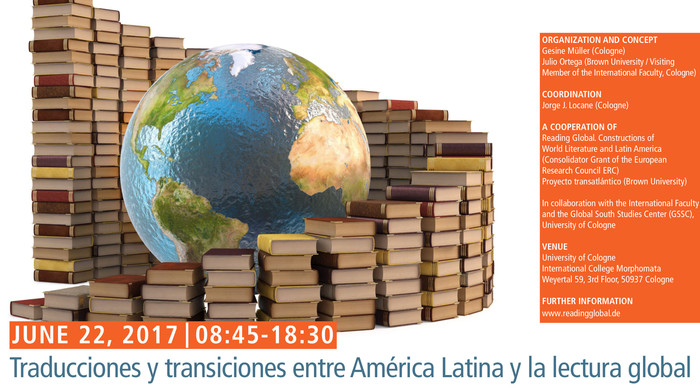
Traducciones y transiciones entre América Latina y la lectura global
22th of June, 2017
Venue: University of Cologne, International College Morphomata: Weyertal 59, 3rd Floor, 50937 Cologne
Organization:
Gesine Müller (Cologne)
Julio Ortega (Brown University / Member of the International Faculty, Cologne)
Coordination:
Jorge J. Locane (Cologne)
Program
8:45 Opening: Gesine Müller (Cologne) and Julio Ortega (Brown / Member of the International Faculty, Cologne)
I. Literaturas latinoamericanas en traducción: construcciones globales entre mercado y cultura
9:00-9:30 Daniel Nemvara (Olomouc): En busca de la voz checa para una delirante experiencia chilena: apuntes sobre el diálogo transatlántico en el proceso de la traducción de Nocturno de Chile de Roberto Bolaño
9:30-10:00 Benjamin Loy (Cologne): La parte de los críticos: el caso Bolaño como paradigma de la recepción global de la literatura latinoamericana
10:00-10:30 Yehua Chen (Cologne): La memoria traducida y la traducción de memoria: Amuleto, Formas de volver a casa y sus traducciones chinas
Coffee Break
11:00-11:30 Gersende Camenen (Tours): De pampas y zonas. Lecturas del espacio “nacional” en las traducciones francesas de algunas novelas argentinas
11:30-12:00 Silja Helber (Cologne): “Matate, traductor” – Por una escritura salvaje, no domesticable
12:00-12:30 Jorge J. Locane (Cologne): Transluciferaciones. Esbozo de una genealogía para una literatura mundial irreverente
12:30-13:00 Gesine Müller (Cologne): La literatura mundial y el desafío de la traducción cultural: el ejemplo de las literaturas caribeñas
Lunch Break
II. Transiciones transatlánticas hacia el siglo XXI
14:30-15:00 Heike Scharm (Tampa, South Florida): El regreso a la tierra: ecocrítica y atlantismo
15:00-15:30 Miguel Rosas (Brown): Mariano de Rivero y la huella de Humboldt
15:30-16:00 Sara Castelar Lorca (Karim Ediciones, Granada): Tribu Trilce: Vallejo en la nueva poesía española
Coffee Break
16:30-17:00 Ethel Barja (Brown): Constelación Berlín: tránsitos geográficos y culturales en algunos autores hispanoamericanos
17:00-17:30 Nicolás Campisi (Brown): The Dislocation of Cosmopolitan Identities in Eduardo Halfon’s Monasterio
17:30-18:30 Keynote Julio Ortega (Brown): Hacia la historia cultural atlántica de la traducción
A Cooperation of:
- ERC Consolidator Grant-Project: Reading Global. Constructions of World Literature and Latin America (Cologne)
- Proyecto transatlántico (Brown University)
In collaboration with the International Faculty and the Global South Studies Center (GSSC), University of Cologne
Julio Ortega Lectures Series
Date:
Thursday, June 8, 2017 to Thursday, June 22, 2017
Lecture Series with International Faculty 2016/2017 Julio Ortega Brown University (Rhode Island, USA)
Wednesday, 8 June, 14-16.00
Masterclass:
„Literaturas latinoamericas hoy“ (in Spanish)
Venue: Seminarraum 1.307, Philosophikum
Registration for masterclass: b.loy@uni-koeln.de
Friday, 9 June, 09-10.00
Keynote:
„The Wall: A Constructivist Repositioning from the South (Vallejo, Torres García, J.M. Arguedas)“
(in English, Keynote is part of the GSSC-Conference The Global South on the Move, 7-9 June)
Venue: Tagungsraum, Seminargebäude, Universitätsstr. 37
Thursday, 22 June, 17.30-18.30
Keynote:
„Hacia la historia cultural atlántica de la traducción”
(in Spanish)
Venue: International College Morphomata, Weyertal 59
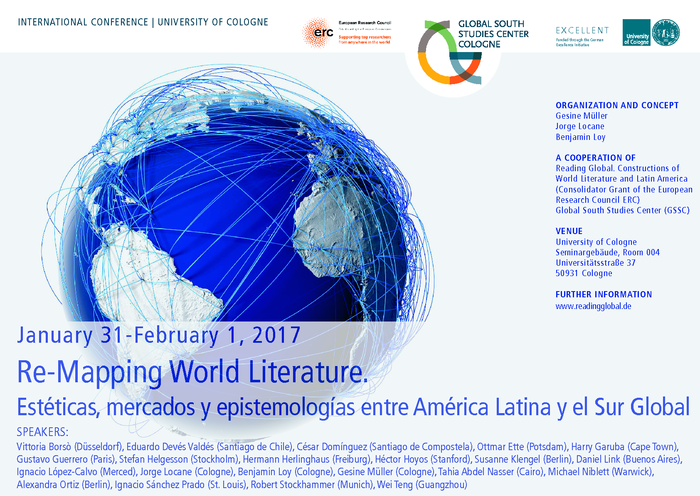
International Conference: "Re-mapping World Literature. Estéticas, mercados y epistemologías entre América Latina y el Sur Global" - Universität zu Köln, January 31 and February 1, 2017
The dynamics of a (western) center and a (southern) periphery play a decisive role in the current debate on the origin processes of World Literature: On the one hand, such dynamics – which have evolved throughout history and are orientated towards the power centers of the publishing industry – still have a lasting effect on the research; on the other hand, demands for a change in perspective are becoming increasingly stronger. For world literature from Latin America this has the following consequence: It is not only the traditional research of Latin American literatures with regard to its transatlantic relations to Europe and the relationships within America to its northern neighbors that belongs on the center stage. Further illumination is necessary on literary relationships beyond established lines of thinking and perspectives which established themselves outside of the traditional coordinates in the past and/or are still expanding at present: What is it that connects Latin American literatures with other literatures of the Global South? How can a new compass for world literary navigation be found which is not primarily orientated by/ the known poles and meridians?
Tuesday, 31 January
Place: University of Cologne, Seminargebäude, Room 004
09:00 – 09:30 Welcome and Introduction:
Professor Stefan Grohé (Dean of the Faculty of Arts and Humanities)
Professor Michael Bollig (Global South Studies Center Cologne)
Gesine Müller, Jorge J. Locane and Benjamin Loy
World Literature and the Global South: Epistemologies
09:30 – 10:00 Vittoria Borsò (Düsseldorf): “Orientalismo y realismo mágico al revés. Juan Rulfo y Salman Rushdie o los desafíos del Sur global para la literatura mundial”
10:00 – 10:30 Eduardo Devés Valdés (Santiago de Chile): “Hacia una teoría de la circulación, con énfasis en la circulación de las ideas”
10:30 – 11:00 Robert Stockhammer (Munich): “‘World’, ‘Earth’, or ‘Globe’, from an African point of view”
11:00 – 11:30 Coffee break
11:30 – 12:00 Ignacio Sánchez Prado (St. Louis): “África en la imaginación literaria mexicana: exotismo, desconexión y los límites materiales de la ‘Epistemología del sur’”
12:00 – 12:30 Hermann Herlinghaus (Freiburg): "Sobre lo utópico, lo fantástico y lo ecológico. Posicionamientos literarios y existenciales”
12:30 – 14:30 Lunch break
Processes of circulation in the Global South: Book markets
14:30 – 15:00 Gesine Müller (Cologne): “Re-mapping World Literature desde Macondo”
15:00 – 15:30 Ignacio López-Calvo (Merced): “Post-World War II, Lusophone, Nikkei Discourse and Cultural Production in Brazil and Japan”
15:30 – 16:00 Harry Garuba (Cape Town): “Travelling into the World: African Literature and Modes of Entry into World Literature”
16:00 – 16:30 Coffee break
16:30 – 17:00 Jorge J. Locane (Cologne): “Por una sociología de las ausencias en la literatura mundial”
17:00 – 17:30 Gustavo Guerrero (Paris): "El sur de Caillois y el sur de Sarduy : reflexiones sobre dos colecciones latinoamericanas de Gallimard : La Croix du Sud y La Nouvelle Croix du Sud"
18:00 – 19:00 Reception
Evening Lecture:
19:00 – 19:30 Keynote Ottmar Ette (Potsdam): “TransArea Tanger: The City and the Literatures of the World"
19:45 “Tradición y traducción”: Lecture and debate with Rodrigo Blanco Calderón (Paris/Caracas) and Gustavo Guerrero (Éditions Gallimard); Presentation: Benjamin Loy
Wednesday, February 1
Place: University of Cologne, Seminargebäude, Room 004
Processes of circulation in the Global South: Institutions and translation politics
09:30 – 10:00 Alexandra Ortiz Wallner (Berlin): “Cosmopolitanismos/Orientalismos: configuraciones tempranas del Sur global desde América Latina”
10:00 – 10:30 Wei Teng (Guangzhou): “Pablo Neruda in China: translation between National and International Politics”
10:30 – 11:00 Coffee break
11:00 – 11:30 Susanne Klengel (Berlin): “El Derecho a la Literatura (mundial y traducida). Sobre el sueño translatológico de la UNESCO”
11:30 – 12:00 César Domínguez (Santiago de Compostela): “Literatura mundial en biblioburro. Traducción en Aracataca global”
12:00 – 12:30 Stefan Helgesson (Stockholm): “The world-literary formation of Antonio Candido”
12:30 – 14:30 Lunch break
Writing the South: Literary Aesthetics between Latin America and the Global South
14:30 – 15:00 Daniel Link (Buenos Aires) “Rubén Darío: la sutura de los mundos”
15:00 – 15:30 Michael Niblett (Warwick): “The Long 1970s: Neoliberalism, Narrative Form, and Slum Ecology in the work of Marlon James and Paulo Lins”
15:30 – 16:00 Tahia Abdel Nasser (Cairo): “Between Latin America and the Arab World: Héctor Abad Faciolince and Rodrigo Rey Rosa in Egypt and Morocco”
16:00 – 16:30 Coffee break
16:30 – 17:00 Benjamin Loy (Cologne): “(I can’t get no) Satisfiction – cansancio filológico y crisis afectivas en la obra de J.M. Coetzee y Roberto Bolaño”
17:00 – 17:30 Héctor Hoyos (Stanford): “Global Supply Chain Literature vs. Extractivism”
18:00 Book presentation: Ottmar Ette, Gesine Müller (Ed.): “New Orleans and the Global South. Caribbean, Creolization, Carnival.“ (Hildesheim: Olms 2017)
Organization and Concept:
Gesine Müller
Jorge Locane
Benjamin Loy
A cooperation of “Reading Global. Constructions of World Literature and Latin America” (Consolidator Grant of the European Research Council) and Global South Studies Center (GSSC)
Venue:
University of Cologne
Seminargebäude
Universitätsstraße 37
50931 Cologne
Further Information: www.readingglobal.de
Kölner Gespräche zur Weltliteratur
7. November 2016
Ort: Neuer Senatssaal der Universität zu Köln (Hauptgebäude, Albertus-Magnus-Platz)
Plakat und Programm zum Download
19:00 Uhr - Einführung
Einführung durch Prof. Dr. Gesine Müller (Projektleitung) und die ForscherInnengruppe des ERC Consolidator Grants „Reading Global“
19:30 Uhr Literarisches Quintett – Literaturbetrieb global
mit Heinrich von Berenberg (Berenberg Verlag), Anita Djafari (LitProm), Ijoma Mangold (DIE ZEIT), Thomas Sparr (Suhrkamp Verlag) und Nicole Witt (Literarische Agentur Mertin); Moderation: Benjamin Loy
20:15 Uhr Lesung– Lateinamerika in der Welt
mit Eduardo Halfon (Autor, Guatemala); Moderation: Jorge J. Locane,
deutsche Übersetzung: Timo Berger
21:00 Uhr: Empfang
ERROR: Content Element with uid "131488" and type "media" has no rendering definition!
17 de junio 2016, 19:30 horas
Entre China y América Latina: historias del Sur Global
Charla y lectura con el escritor mexicano Julián Herbert
Lugar: Seminargebäude, Sala S 16
Moderación: Jorge Locane
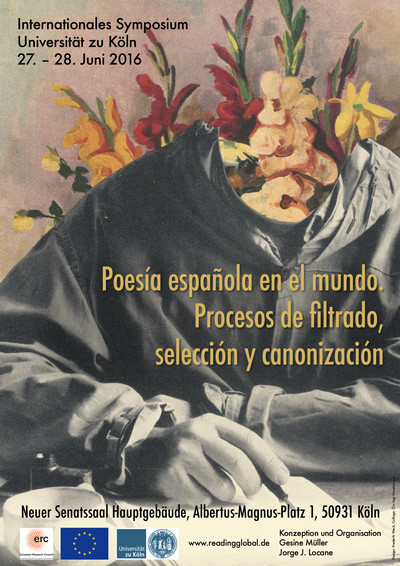
Poesía española en el mundo. Procesos de filtrado, selección y canonización
Internationales Symposium
Universität zu Köln, 27. – 28. Juni 2016
International Faculty 2016/2017 – Prof. Julio Ortega (Brown University)
Thursday, 16 June
12.00 – 13.30
Masterclass I with Julio Ortega: ”Julio Cortázar: La composición de Rayuela” (in Spanish)
(Venue: Seminargebäude, Room S16)
Thursday, 30 June
12.00 – 13.30
Masterclass II with Julio Ortega: “Parodia, reescritura y apropiaciones de Don Quijote (Borges, García Márquez, Sarduy)” (in Spanish)
(Venue: Seminargebäude, Room S16)
Wednesday, 6 July
17.45 – 19.15
Public Lectures Series of the Global South Studies Center:
Julio Ortega - "The Transatlantic Paradigm: elements of a global cultural history”
(Venue: Hauptgebäude, Neuer Senatssaal)
Zur Person:
Julio Ortega (*1942 in Casma, Peru) zählt zu den renommiertesten lateinamerikanischen Literaturwissenschaftlern und Kritikern des 20. Jahrhunderts überhaupt. Nach Stationen an der University of Texas und Brandeis University ist Ortega seit 1989 Professor an der Brown University am Department of Hispanic Studies. Zahlreiche Gastprofessuren führten ihn sowohl an Universitäten in den USA als auch in Lateinamerika, 1995 war er Simon Bolivar Professor of Latin American Studies an der University of Cambridge.
Aus seinen zahlreichen Veröffentlichungen ragen Werke wie "El discurso de la abundancia" (1992), "Una poética del cambio" (1992), "El sujeto dialógico: negociaciones de una modernidad conflictiva" (2010) oder seine zahlreichen Bände zu transatlantischen Studien sowie den "nuevos hispanismos" heraus. Selbst Zeitgenosse und Wegbegleiter der lateinamerikanischen Boom-Autoren wie García Márquez und Vargas Llosa, hat Ortega zudem eine Reihe vielbeachteter Romane und Erzählbände publiziert und als Herausgeber zahlreicher akademischer Reihen sowie von Werkausgaben von Autoren wie Carlos Fuentes oder Alfonso Reyes fungiert. Zudem schreibt er regelmäßig für internationale Medien wie "El País" in Madrid und ist Träger mehrer Ehrendoktortitel sowie Mitgliedschaften in der Academia de la Lengua in mehreren lateinamerikanischen Ländern.
Kontakt: Julio_OrtegaBrown.edu
Feierliche Projekteröffnung:
Reading Global. Constructions of World Literature and Latin America
18. November 2015
Ort: Neuer Senatssaal der Universität zu Köln (Hauptgebäude, Albertus-Magnus-Platz)
PROGRAMM
19:00 Uhr - Einführung
Grußwort von Prorektorin Prof. Dr. Manuela Günter (Universität zu Köln)
Einführung durch Gesine Müller (Projektleitung) und die ForscherInnengruppe des ERC Consolidator Grants „Reading Global“
19:30 Uhr Literarisches Quintett – Welten Lesen
mit Ottmar Ette (Literaturwissenschaftler), Navid Kermani (Autor), Sigrid Löffler (Literaturkritikerin) und Michi Strausfeld (Verlagslektorin/ Herausgeberin); Moderation: Benjamin Loy
20:15 Uhr Lesung– Lateinamerika global
mit Jorge Volpi (Autor, Mexiko-Stadt); Moderation: Jorge J. Locane,
deutsche Übersetzung: Frank Reza Links
21:00 Uhr: Empfang
